Tom's Hardware Verdict
The MSI MPG A1000G offers high enough performance and has high build quality, along with enough power to support an energy-hungry system.
Pros
- +
+ Delivered full power at 47°C
- +
+ Good soldering and parts quality
- +
+ Fluid dynamic bearing fan
- +
+ Low vampire power consumption
- +
+ High power factor
- +
+ Tight +12V load regulation
- +
+ Good ripple suppression
- +
+ Decent transient response
- +
+ Low inrush current with 115V input
- +
+ Low leakage current
- +
+ ALPM support
- +
+ High number of connectors and cables
- +
+ 150mm distance between the peripheral connectors
- +
+ 10-year warranty
Cons
- -
Not competitive overall performance
- -
Low efficiency under light and super light loads
- -
Efficiency could be higher at 5VSB
- -
Not so quiet operation
- -
Not tight load regulation at 5V and 3.3V
- -
High inrush current with 230V input
- -
Hold-up time needs to be a bit longer
- -
Accurate but lower than 16ms power ok signal
- -
There is room for improvement in transient response at 12V
Why you can trust Tom's Hardware
MSI continues its good path in the PSU market with the MPG A1000G. Still, there is much road to cover until it starts to trouble the intense competition by Corsair and EVGA. The overall performance of the A1000G is high enough, and its build quality is top-notch, something that is shown by its ten-year warranty, too. With a few fixes here and there, it could earn a place in our best PSUs article. Other good alternative options in this category are the Corsair RM1000x (2021) and the EVGA 1000 G6.
MSI enriches its MPG series with a 1000W power supply, with model number A1000G. The flagship of the MPG line uses a different exterior design, which is appealing to our eyes, at least. With the new Intel ATX spec and the PCIe 5.0 standard raising the Wattage bar for upcoming GPUs, all brands have to focus on stronger PSUs that will cope with the increased energy demands.
The MPG A1000G uses Japanese capacitors only, aiming at the higher-end of the Gold efficiency 1kW category. The OEM remains the same as the other MPG members, Channel Well Technology (CWT), one of the best and largest PSU manufacturers, with its headquarters in Taiwan and manufacturing facilities in China and Vietnam.
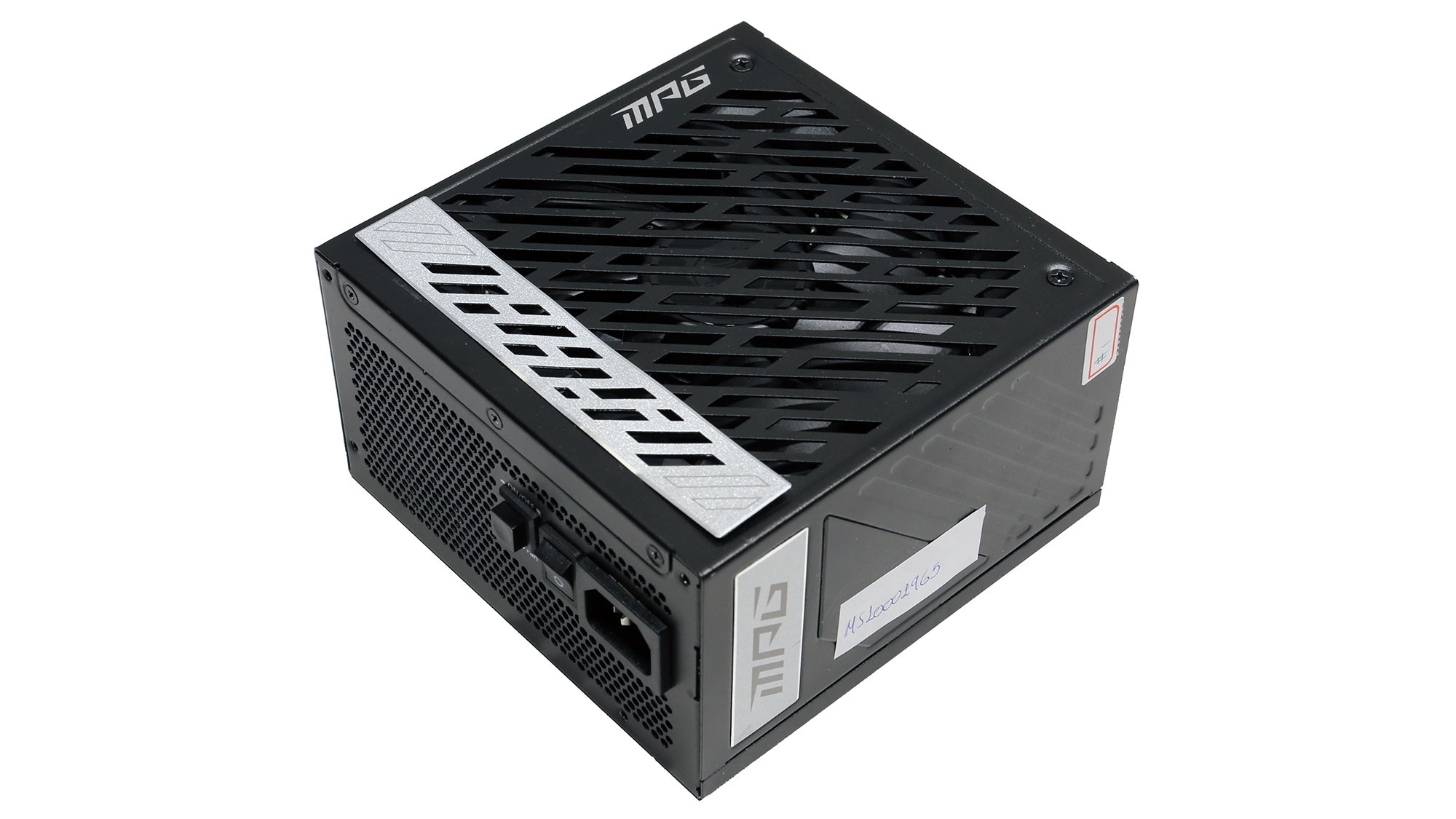
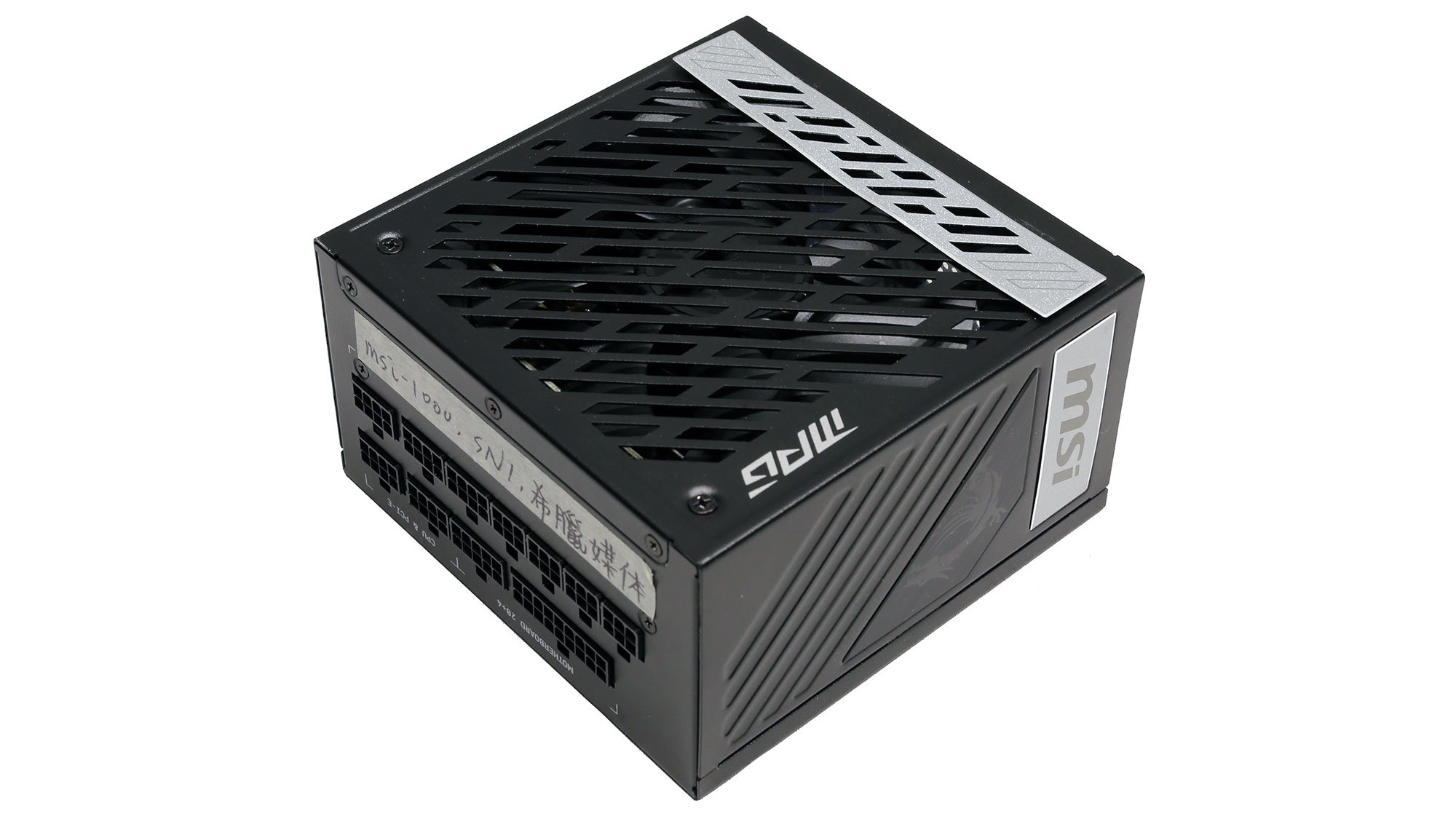
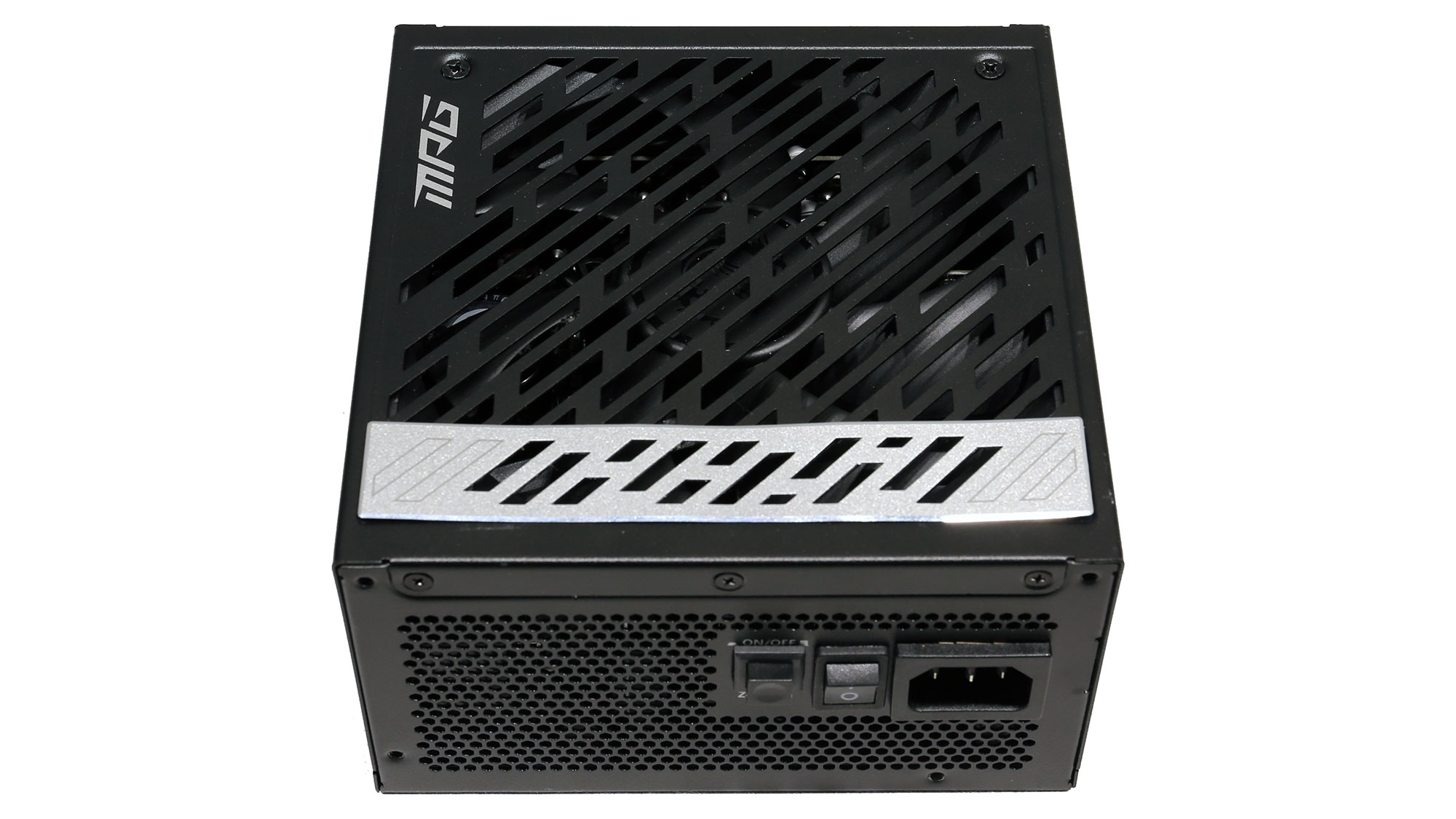
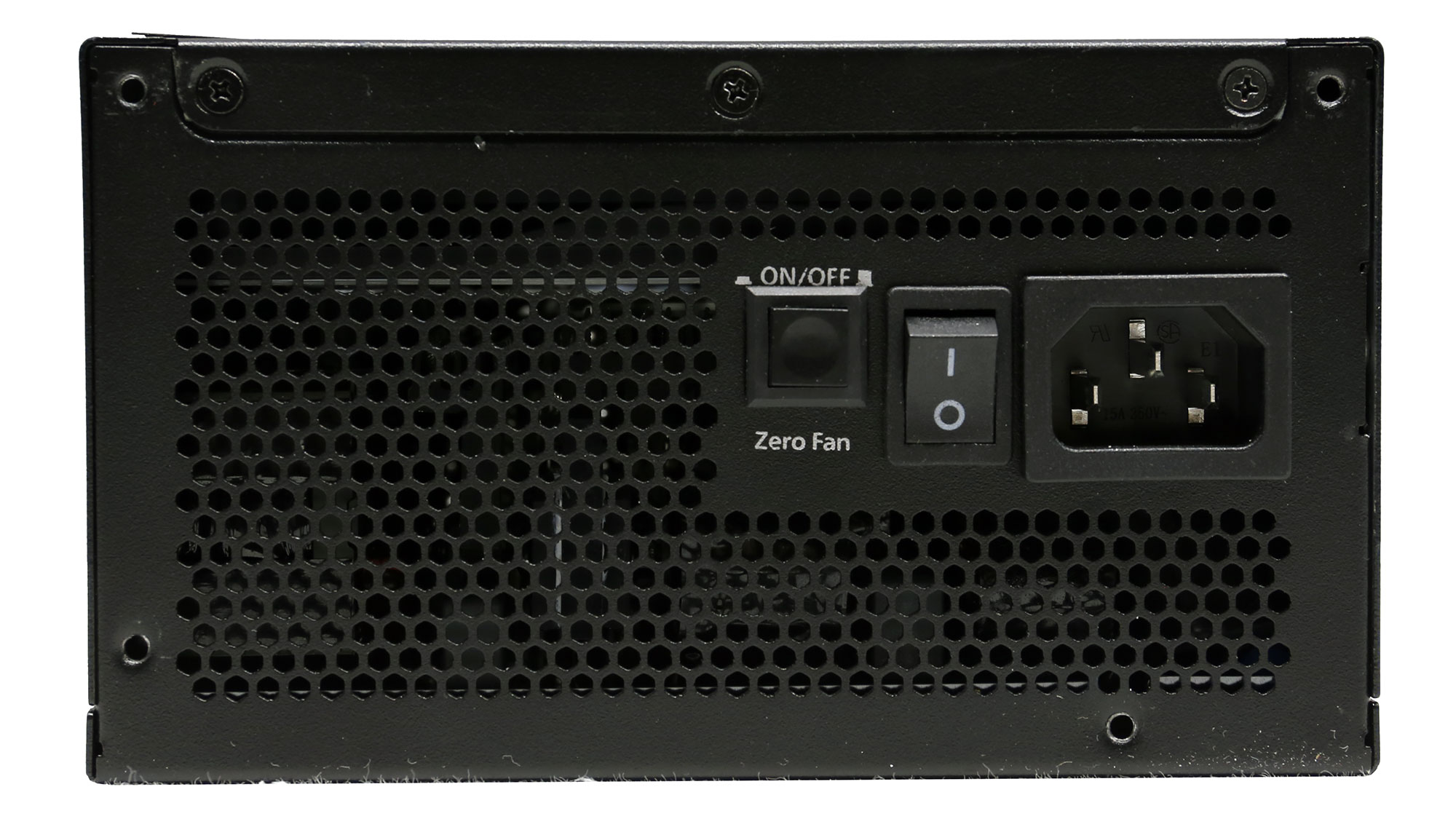
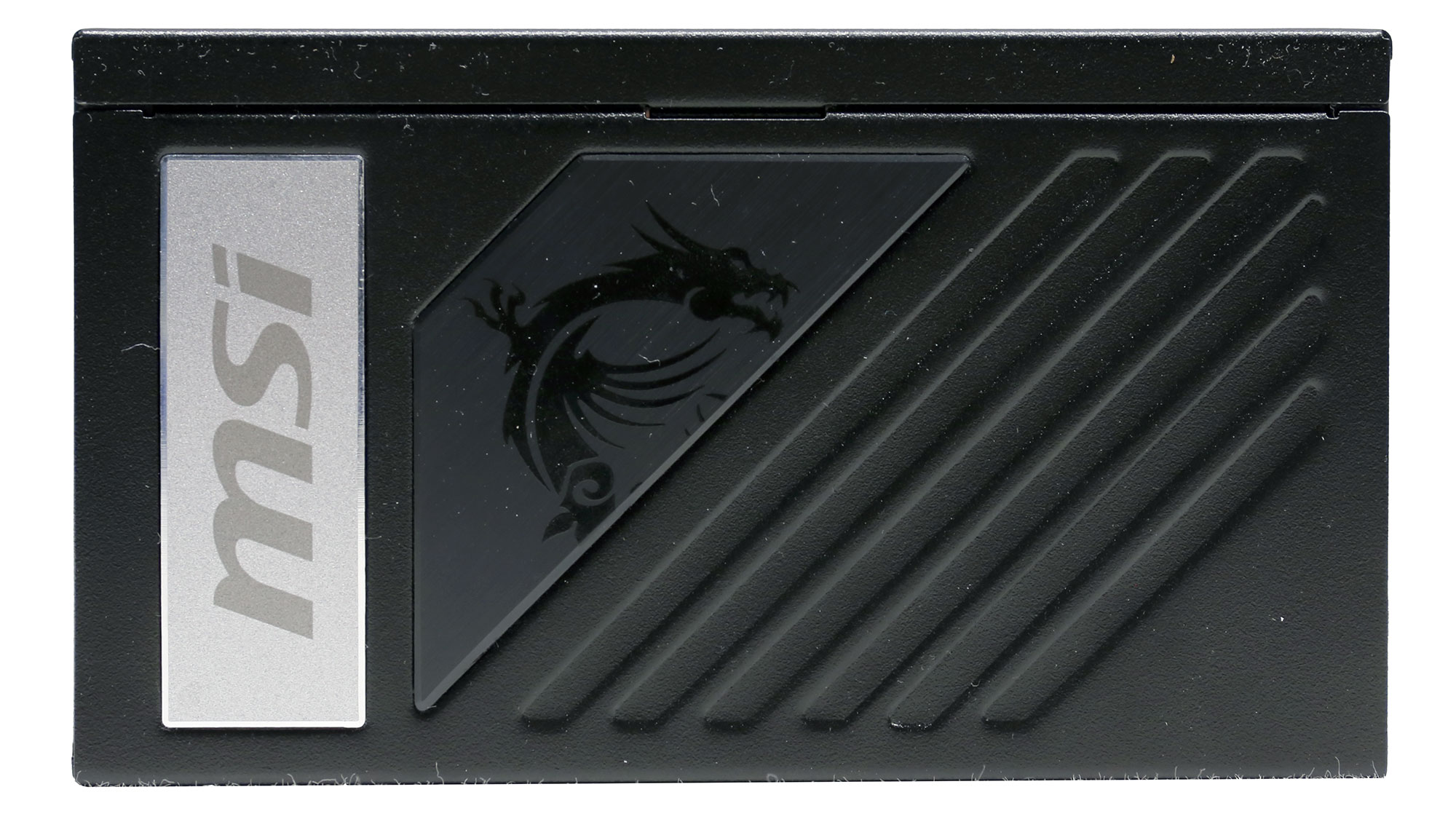
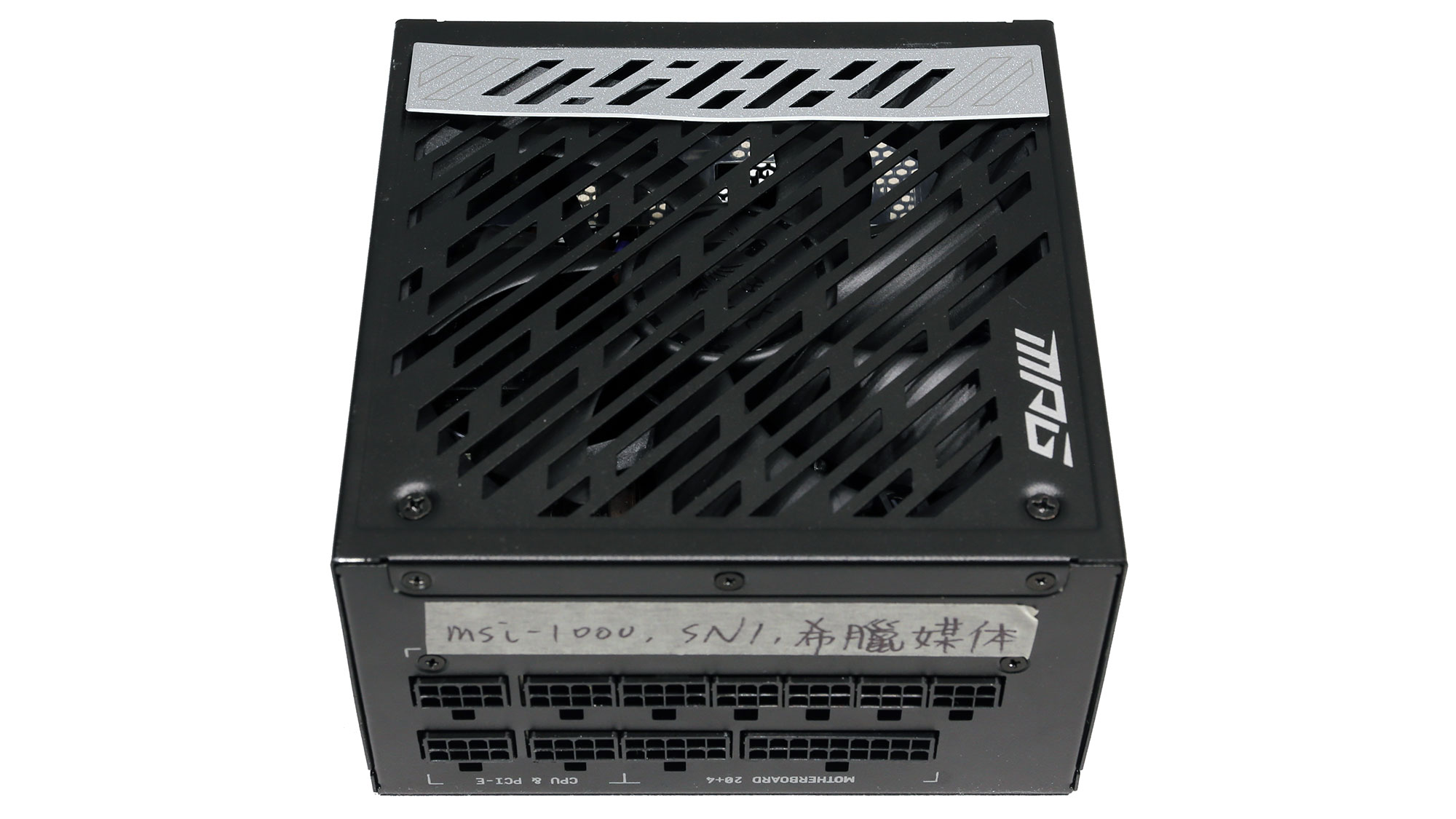
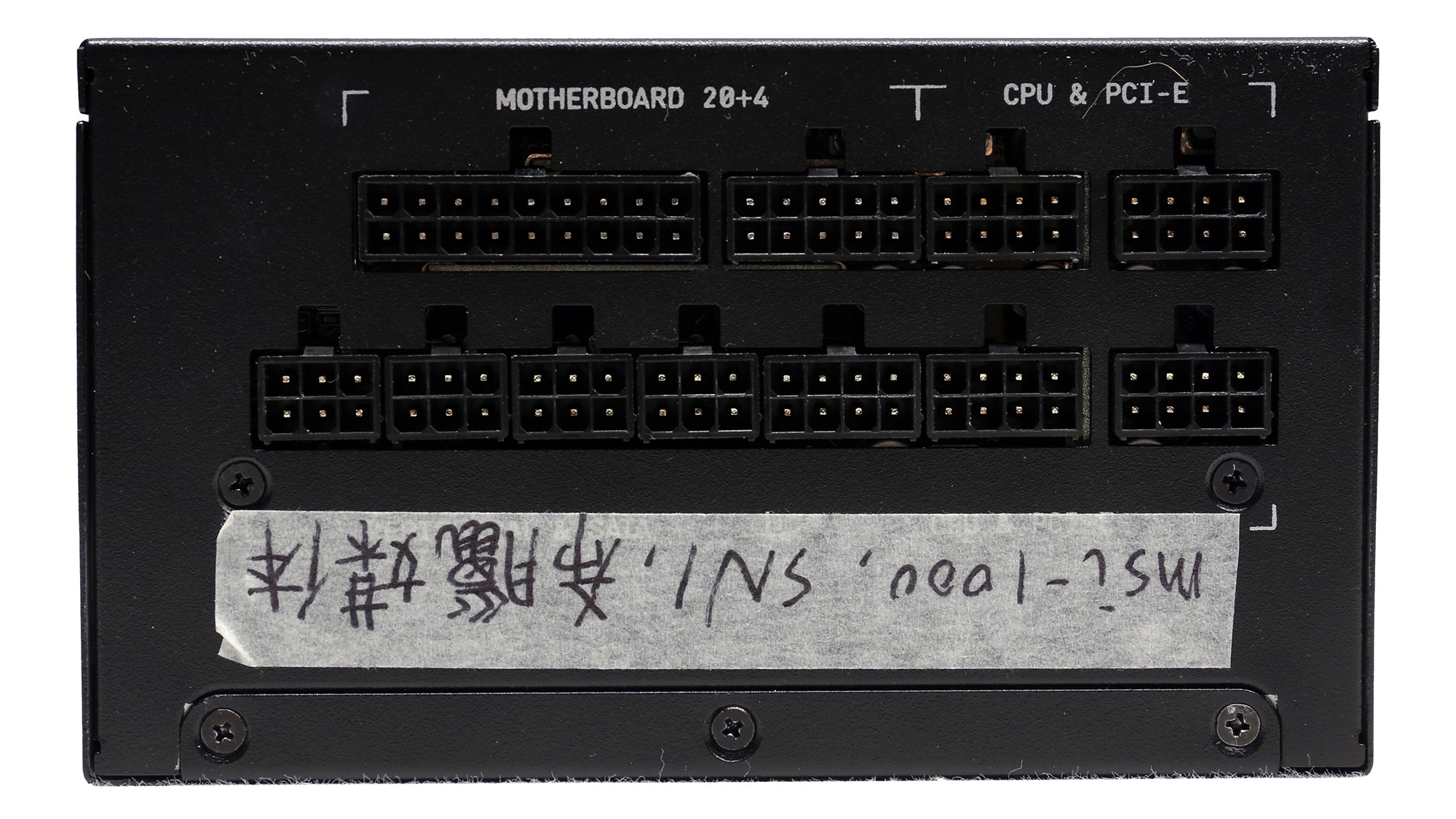
The MPG A1000G is 80 PLUs Gold and Cybenetics Gold certified in efficiency, while in noise, it is Cybenetics Standard++, meaning that its average noise output is within the 30-35 dBA range. It has compact dimensions with 150mm depth, and it is equipped with a 135mm FDB fan, which will last long. There is also a semi-passive operation which can be disabled, thankfully, if you don't want any heat build-up at the PSU's internals.
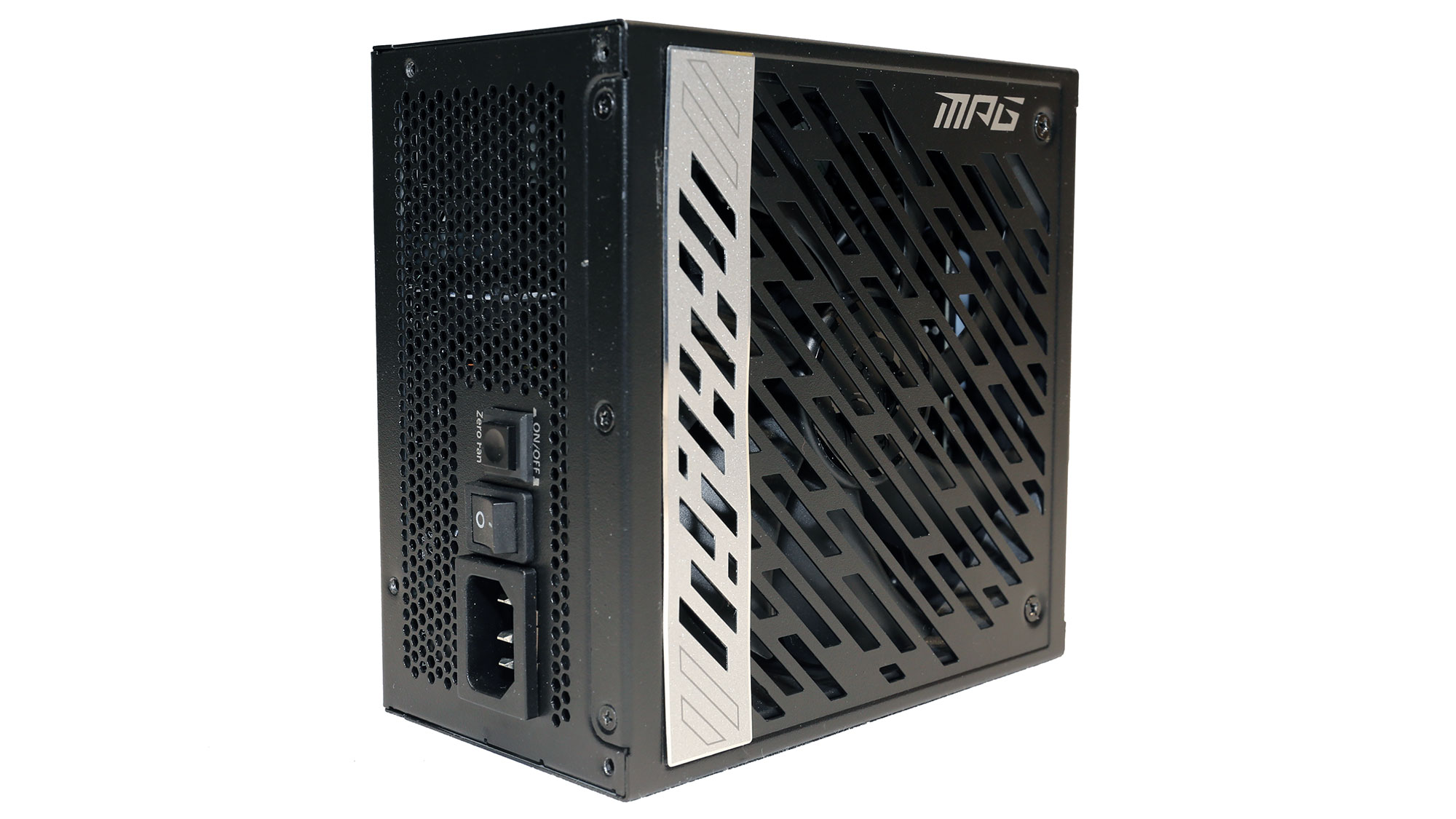
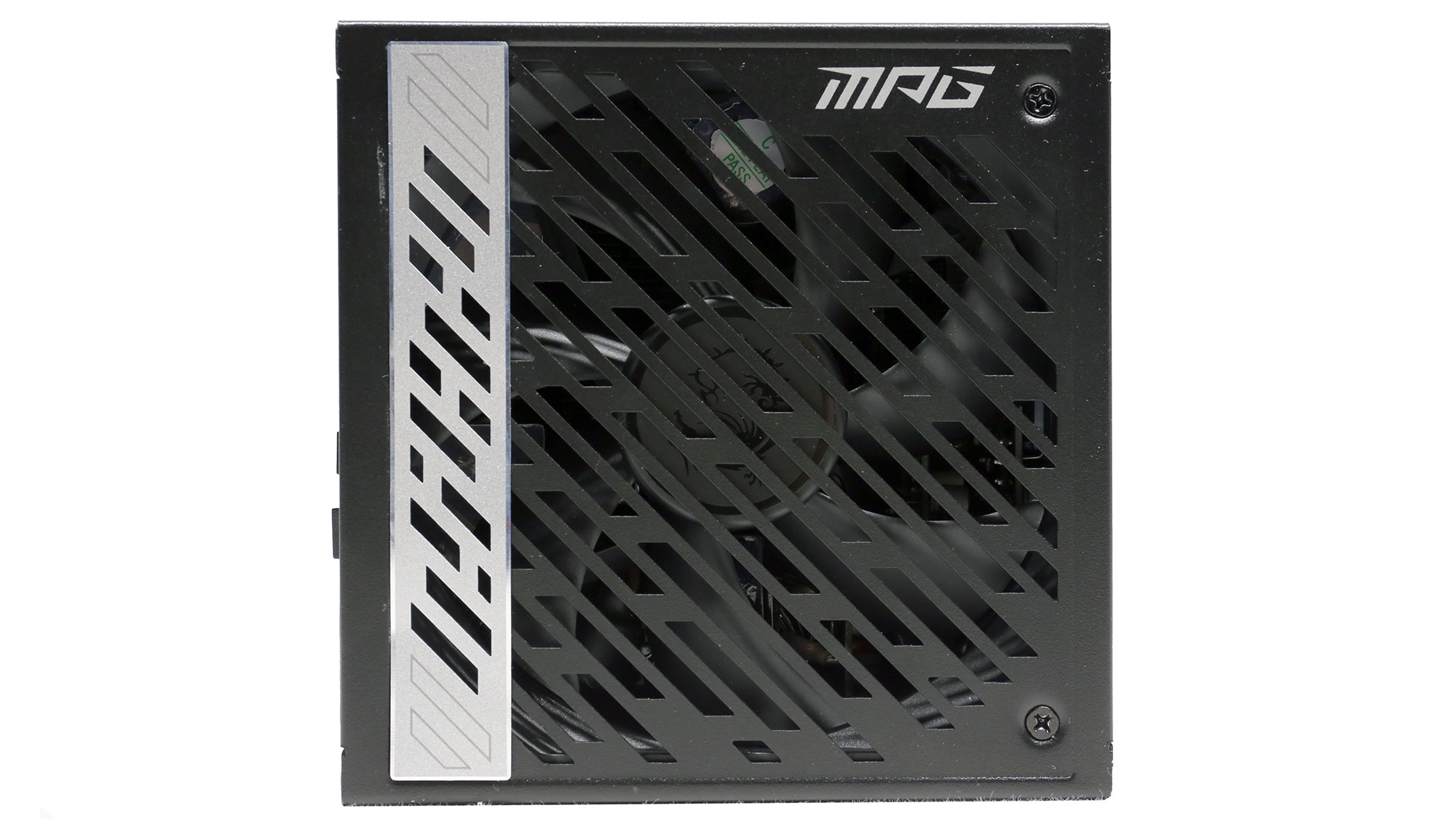
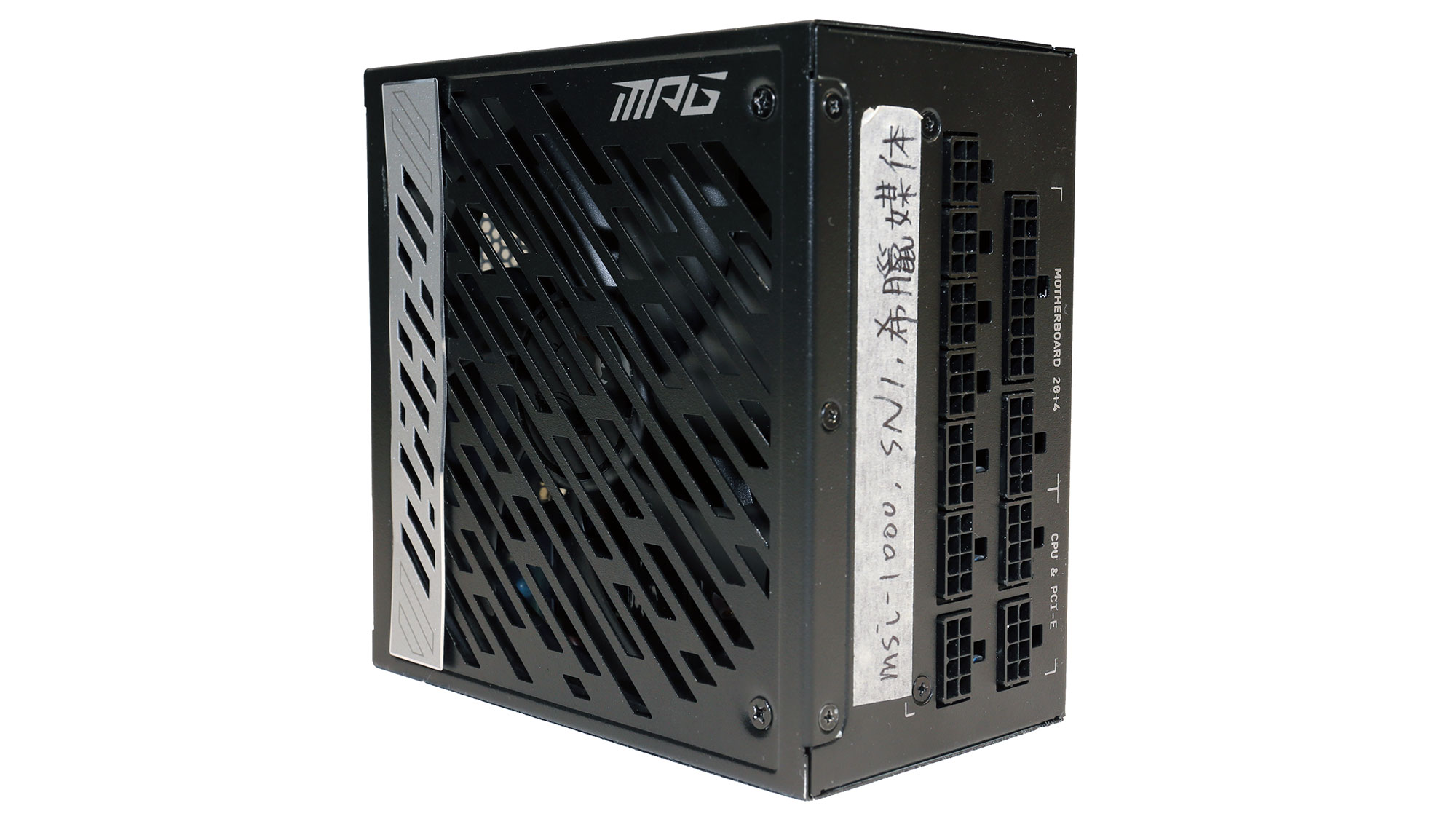
Specifications
|
Manufacturer (OEM) |
CWT |
|
Max. DC Output |
1000W |
|
Efficiency |
80 PLUS Gold, Cybenetics Gold (87-89%) |
|
Noise |
Cybenetics Standard++ (30-35 dB[A]) |
|
Modular |
✓ (Fully) |
|
Intel C6/C7 Power State Support |
✓ |
|
Operating Temperature (Continuous Full Load) |
0 - 50°C |
|
Over Voltage Protection |
✓ |
|
Under Voltage Protection |
✓ |
|
Over Power Protection |
✓ |
|
Over Current (+12V) Protection |
✓ |
|
Over Temperature Protection |
✓ |
|
Short Circuit Protection |
✓ |
|
Surge Protection |
✓ |
|
Inrush Current Protection |
✓ |
|
Fan Failure Protection |
✗ |
|
No Load Operation |
✓ |
|
Cooling |
135mm Fluid Dynamic Bearing Fan (HA13525H12SF-Z) |
|
Semi-Passive Operation |
✓ (selectable) |
|
Dimensions (W x H x D) |
150 x 85 x 150mm |
|
Weight |
1.73 kg (3.81 lb) |
|
Form Factor |
ATX12V v2.52, EPS 2.92 |
|
Warranty |
10 Years |
Power Specifications
| Rail | 3.3V | 5V | 12V | 5VSB | -12V | |
| Max. Power | Amps | 22 | 22 | 83.5 | 3 | 0.3 |
| Watts | 120 | 999.6 | 15 | 3.6 | ||
| Total Max. Power (W) | 1000 | Row 3 - Cell 5 | Row 3 - Cell 6 |
Cables and Connectors
| Description | Cable Count | Connector Count (Total) | Gauge | In Cable Capacitors |
|---|---|---|---|---|
| ATX connector 20+4 pin (600mm) | 1 | 1 | 16AWG | No |
| 4+4 pin EPS12V (700mm) | 2 | 2 | 18AWG | No |
| 6+2 pin PCIe (600mm) | 3 | 3 | 16AWG | No |
| 6+2 pin PCIe (600mm+150mm) | 2 | 4 | 16-18AWG | No |
| SATA (500mm+150mm+150mm+150mm) | 3 | 12 | 18AWG | No |
|
4 pin Molex (500mm+150mm+150mm+150mm) / FDD (+150mm) | 1 | 4 / 1 | 18-20AWG | No |
There are plenty of cables and connectors to allow the PSU to deliver its full power without issues. It is nice to see three dedicated PCIe cables with thicker 16AWG gauges. The 24-pin ATX connector also uses 16AWG wires for lower voltage drops.
There are no in-cable caps, and all cables are long enough not to have any problems in large chassis. Moreover, the distance between the peripheral connectors is ideal at 150mm.
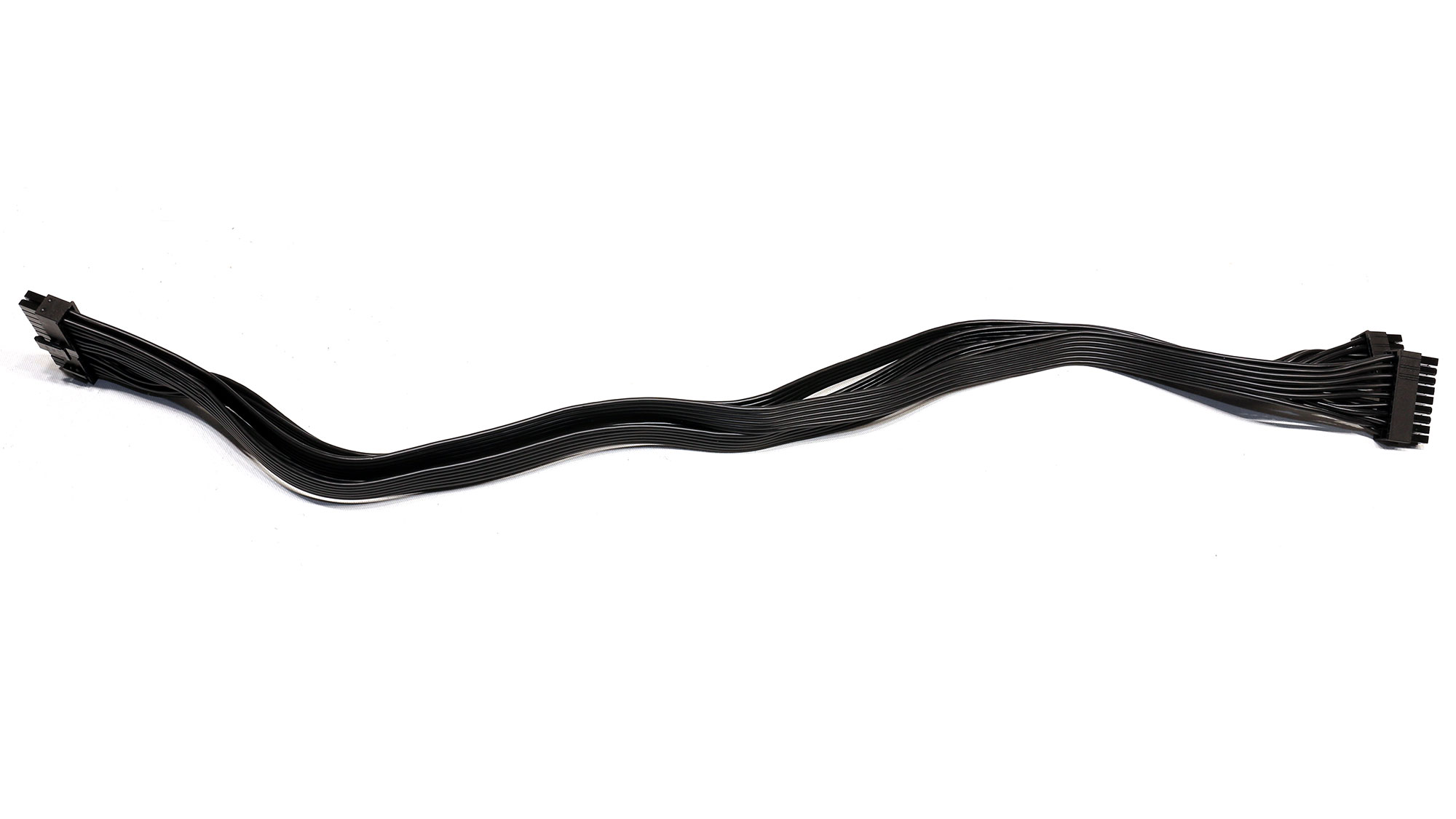
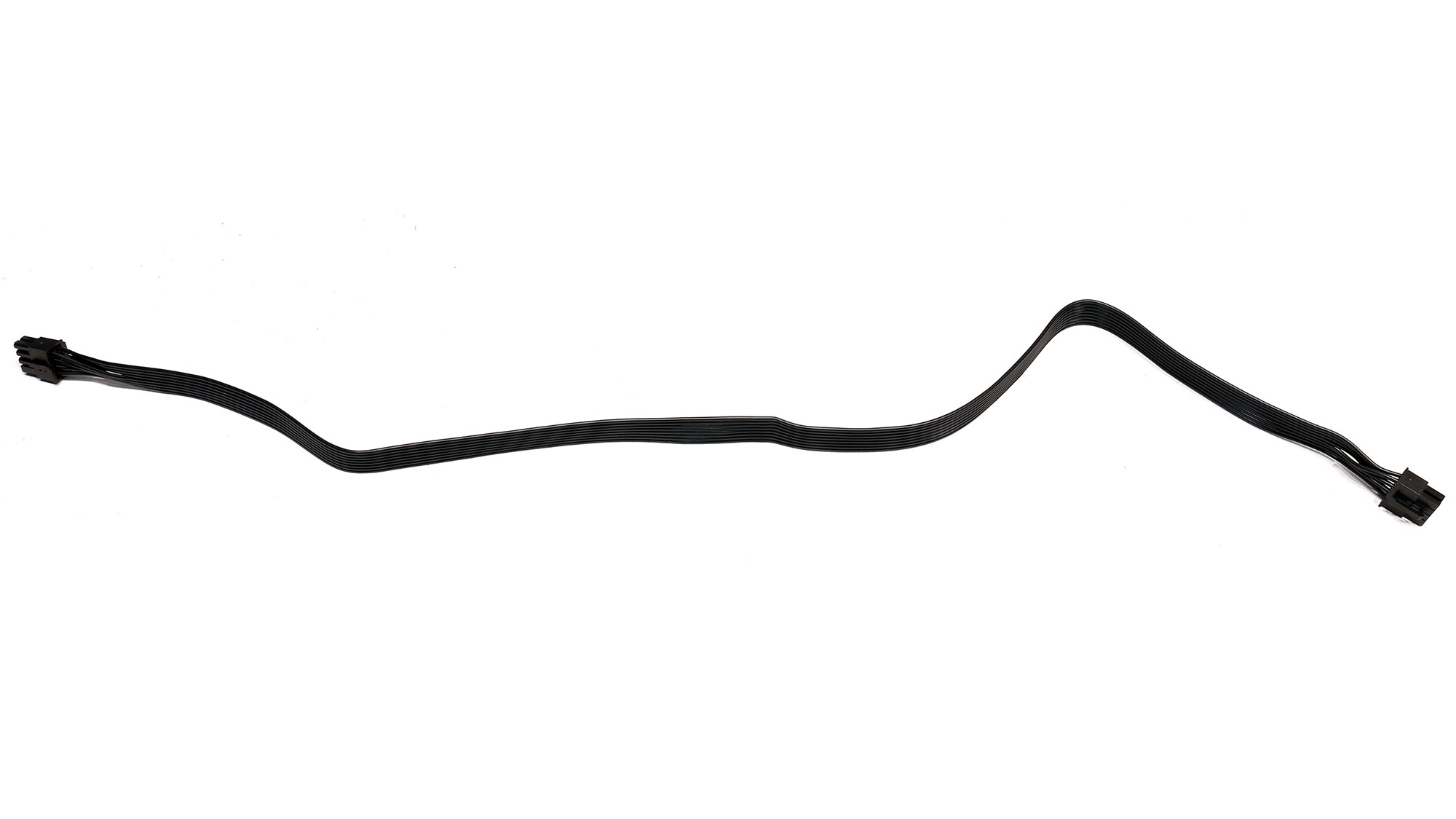
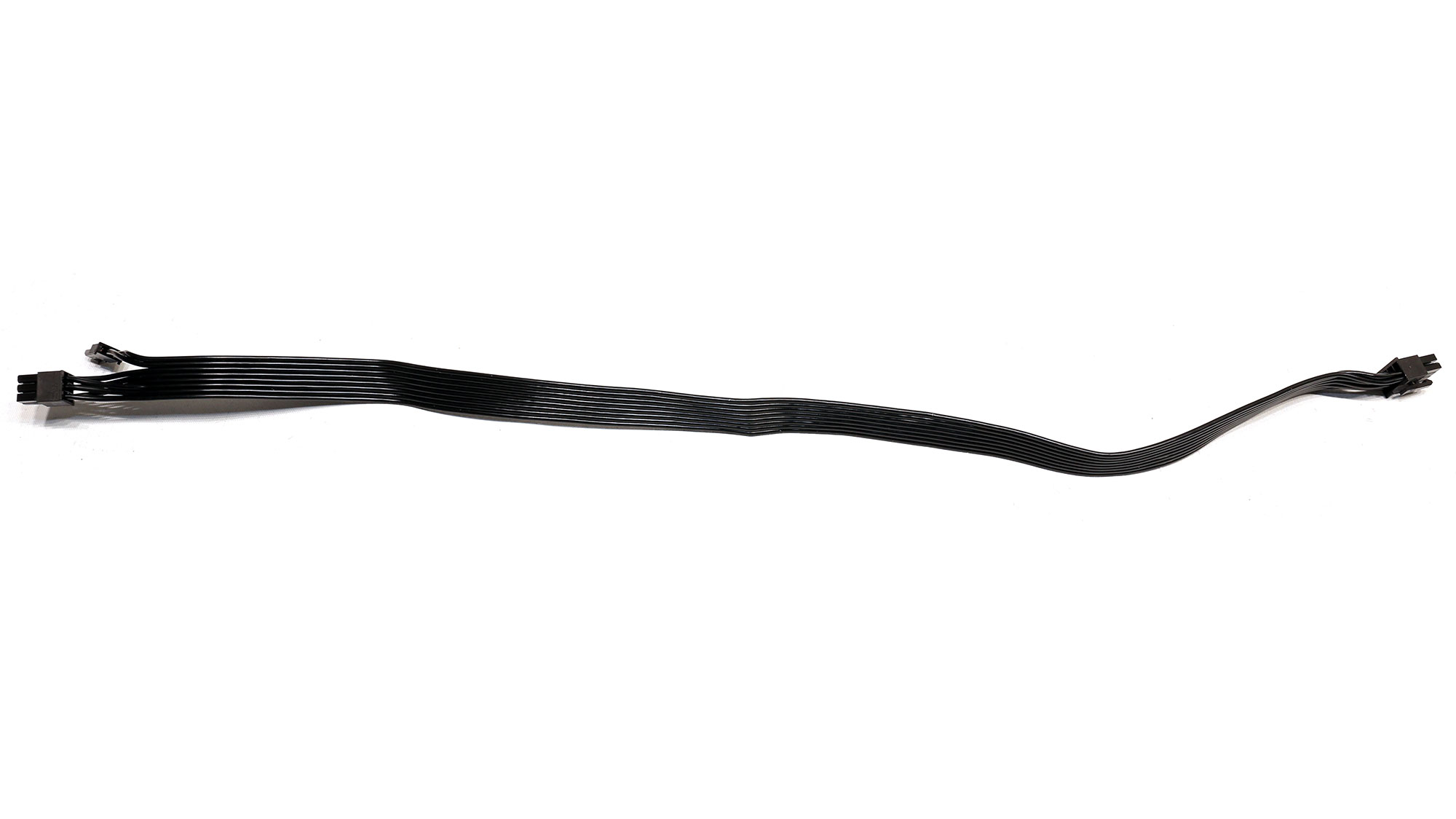
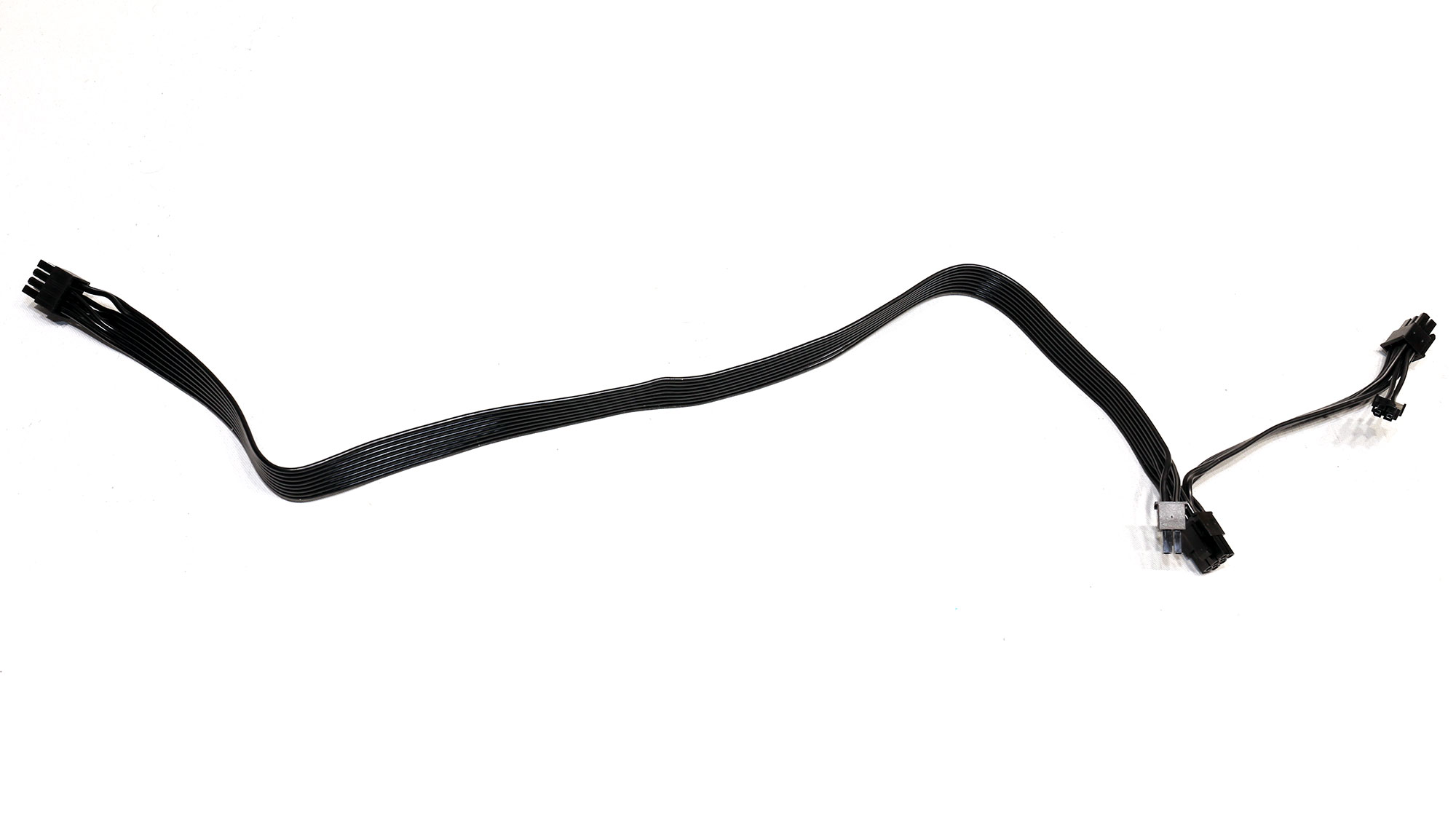
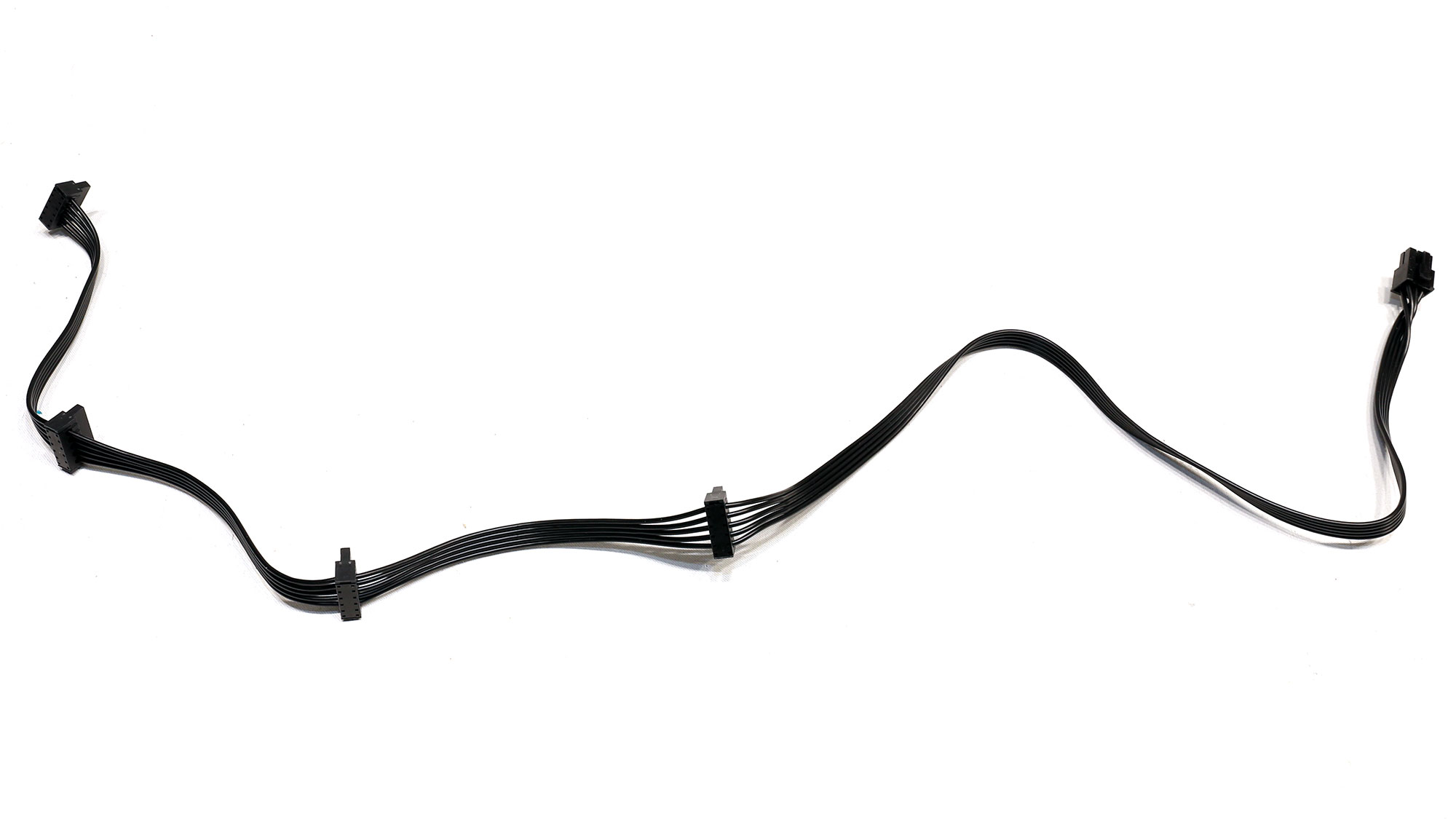
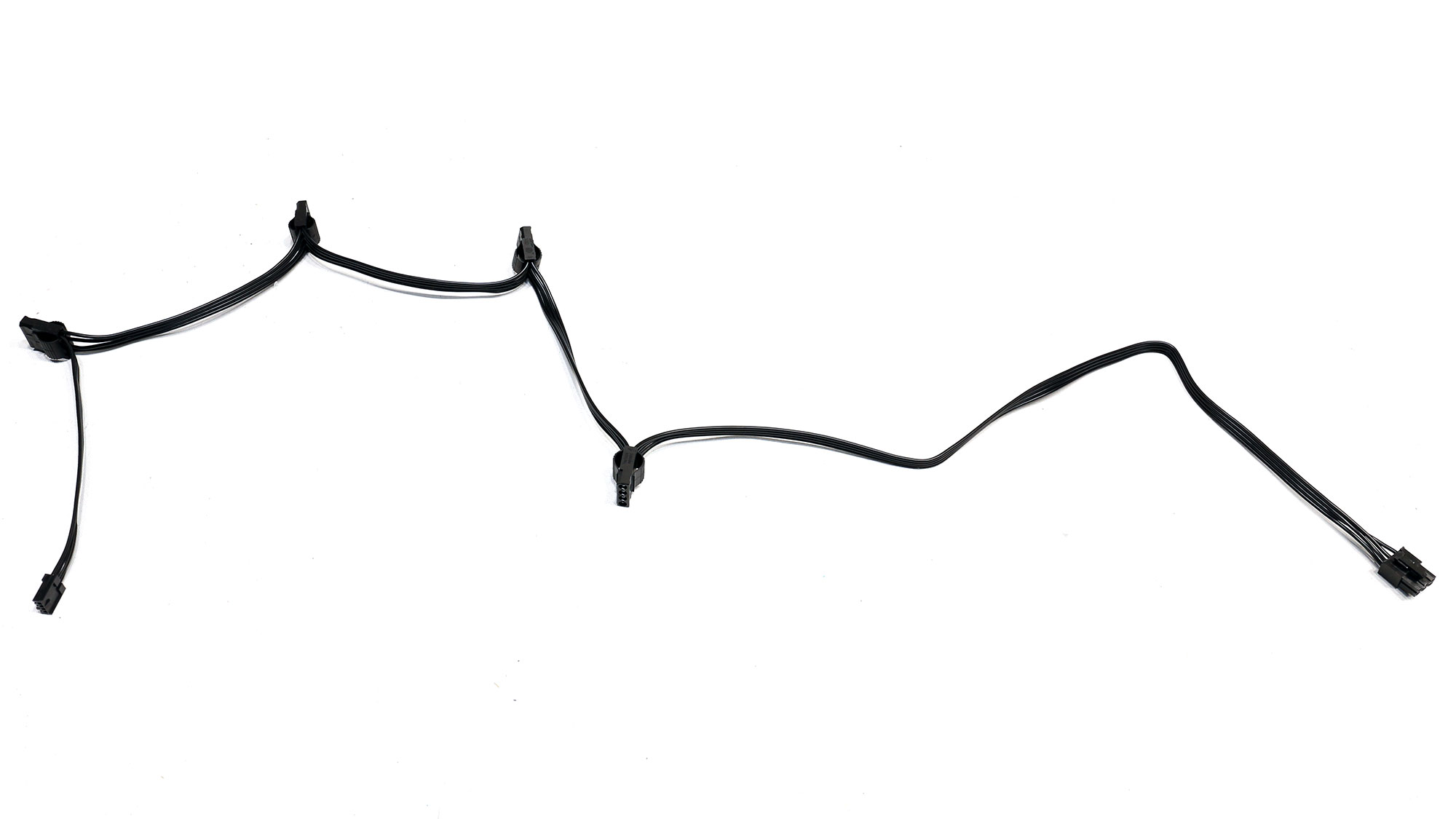
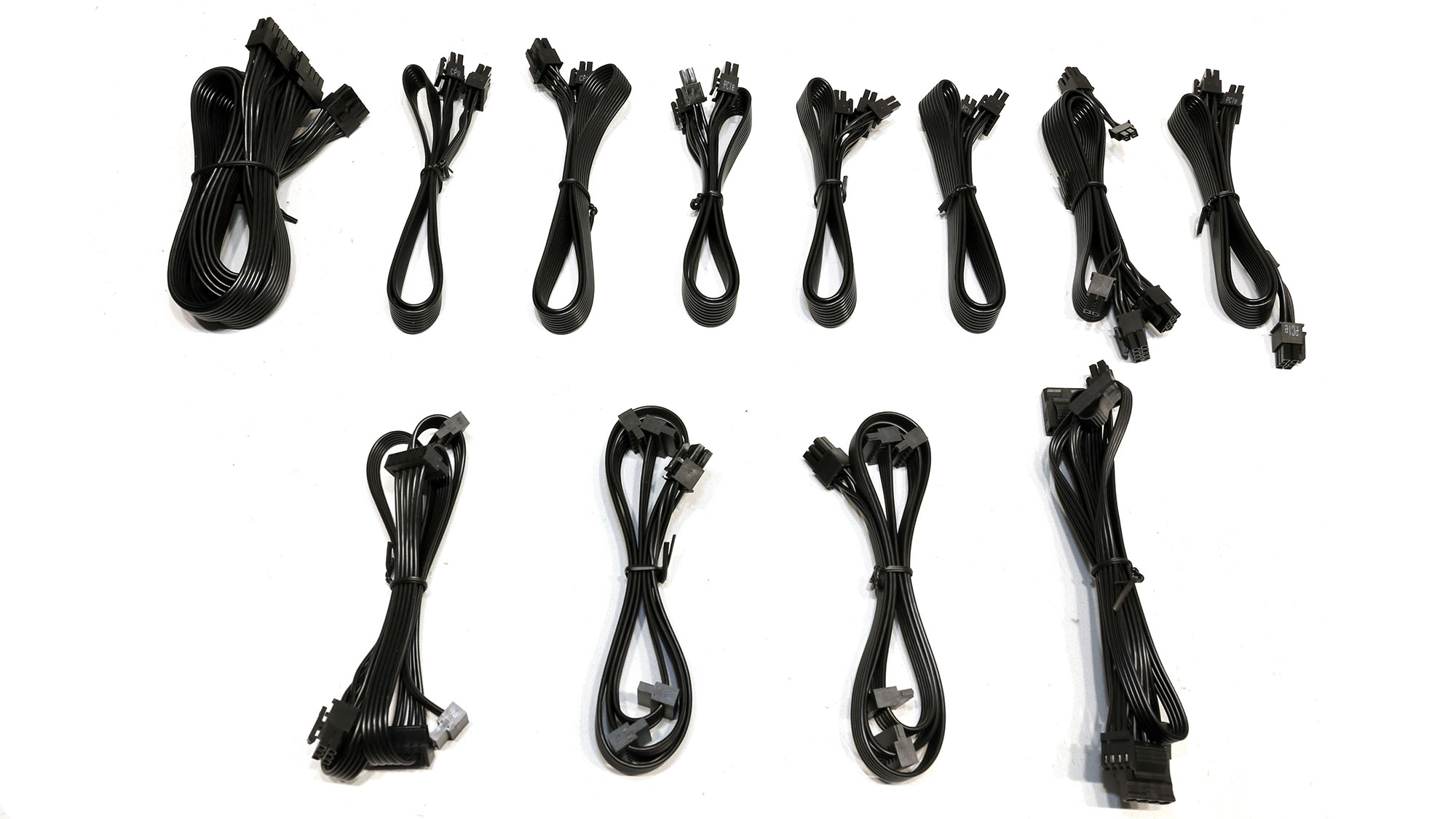
Component Analysis
We strongly encourage you to have a look at our PSUs 101 article, which provides valuable information about PSUs and their operation, allowing you to better understand the components we're about to discuss.
Get Tom's Hardware's best news and in-depth reviews, straight to your inbox.
| General Data | |
| Manufacturer (OEM) | CWT |
| PCB Type | Double Sided |
| Primary Side | Row 3 - Cell 1 |
| Transient Filter | 4x Y caps, 2x X caps, 2x CM chokes, 1x MOV |
| Inrush Protection | 1x NTC Thermistor SCK203R0 (3 Ohm) & Relay |
| Bridge Rectifier(s) | 2x GBU1506 (800V, 15A @ 100°C) |
| APFC MOSFETs | 2x Infineon IPA60R099P6 (600V, 24A @ 100°C, Rds(on): 0.099Ohm) |
| APFC Boost Diode | 1x On Semiconductor FFSP1065B (650V, 10A @ 139°C) |
| Bulk Cap(s) | 1x Nichicon (400V, 820uF, 2,000h @ 105°C, GL) |
| Main Switchers | 2x Infineon IPA60R125P6 (600V, 19A @ 100°C, Rds(on): 0.125Ohm) |
| APFC Controller | Champion CM6500UNX & CM03X |
| Resonant Controller | Champion CU6901VA |
| Topology |
Primary side: APFC, Half-Bridge & LLC converter Secondary side: Synchronous Rectification & DC-DC converters |
| Secondary Side | Row 14 - Cell 1 |
| +12V MOSFETs | 8x International Rectifier IRFH7004PBF (40V, 164A @ 100°C, Rds(on): 1.4mOhm) |
| 5V & 3.3V | DC-DC Converters: 2x UBIQ QM3054M6 (30V, 61A @ 100°C, Rds(on): 4.8mOhm) & 2x UBIQ QN3107M6N (30V, 70A @ 100°C, Rds(on): 2.6mOhm) PWM Controller(s): uPI-Semi uP3861P |
| Filtering Capacitors |
Electrolytic: 2x Nippon Chemi-Con (105°C, W), 1x Nichicon (2-5,000h @ 105°C, HD), 2x Nippon Chemi-Con (1-5,000h @ 105°C, KZE), 2x Nichicon (4-10,000h @ 105°C, HE), 1x Nippon Chemi-Con (4-10,000h @ 105°C, KYA), 1x Rubycon (4-10,000h @ 105°C, YXJ) |
| Supervisor IC | Weltrend WT7502R (OVP, UVP, SCP, PG) |
| Fan Controller | Microchip PIC16F1503 |
| Fan Model | Hong Hua HA13525H12SF-Z (135mm, 12V, 0.5A, Fluid Dynamic Bearing Fan) |
| 5VSB Circuit | Row 21 - Cell 1 |
| Rectifier | 1x D10PS45L SBR (45V, 10A) |
| Standby PWM Controller | On Bright OB2365T |
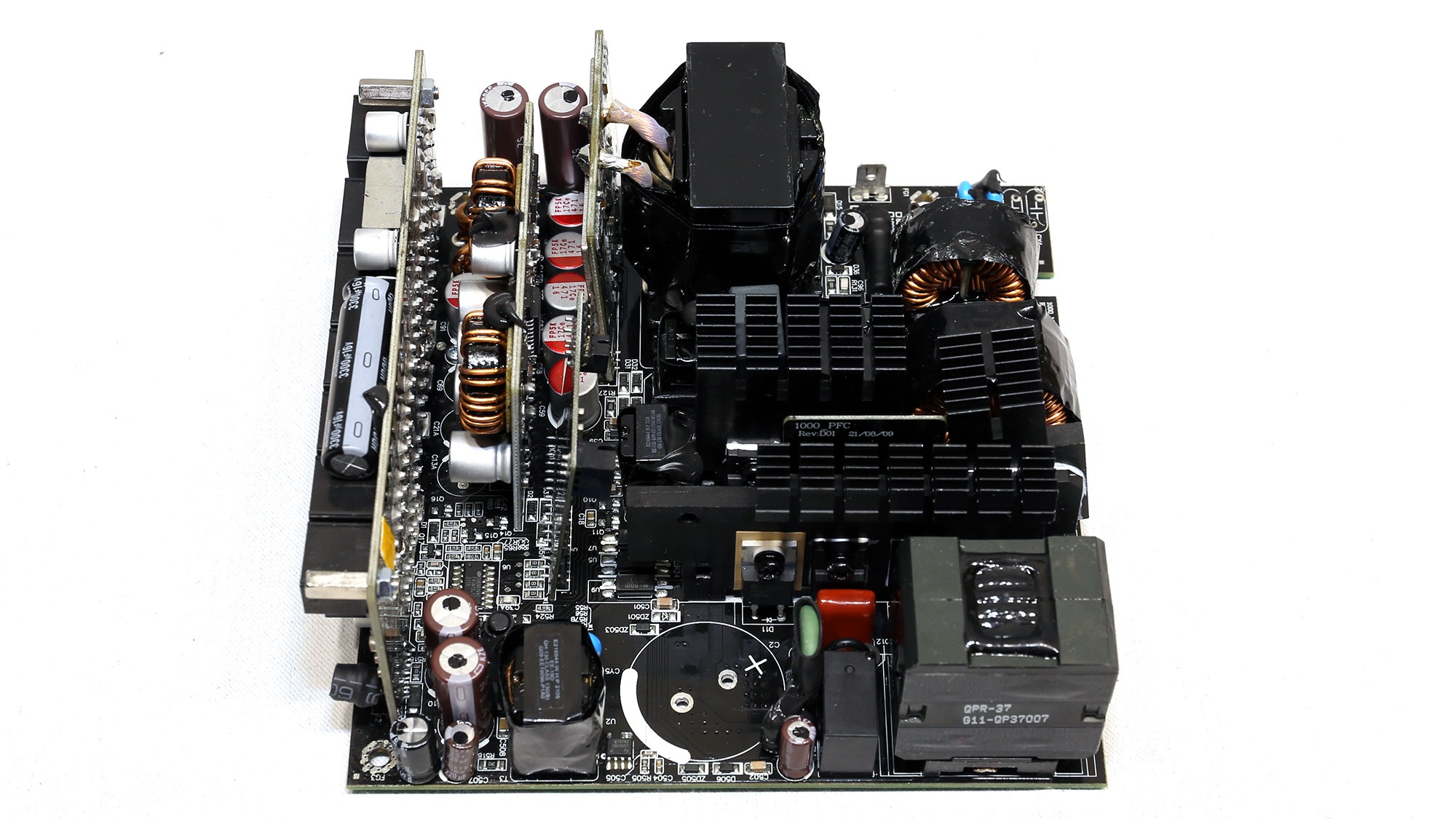
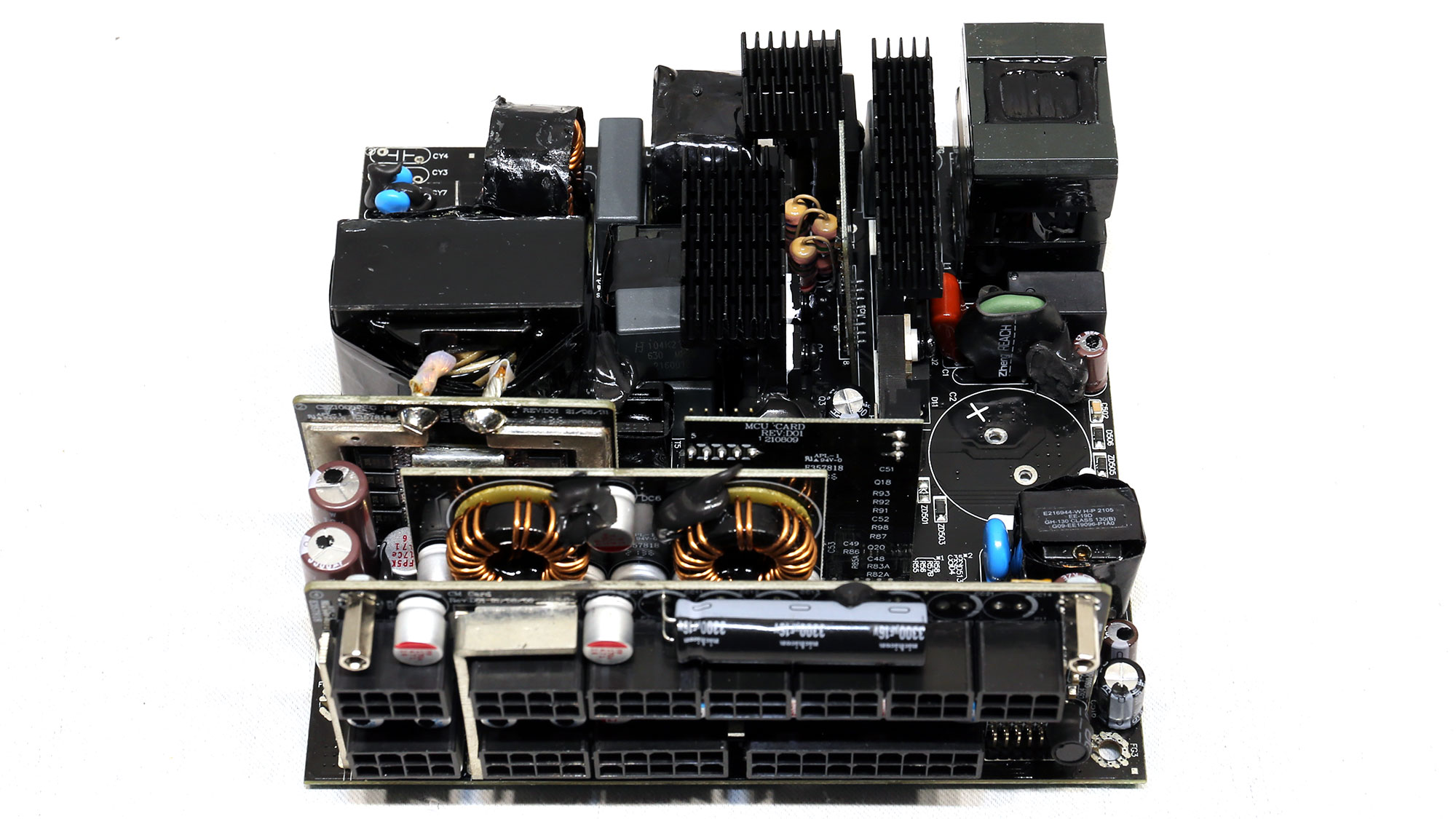
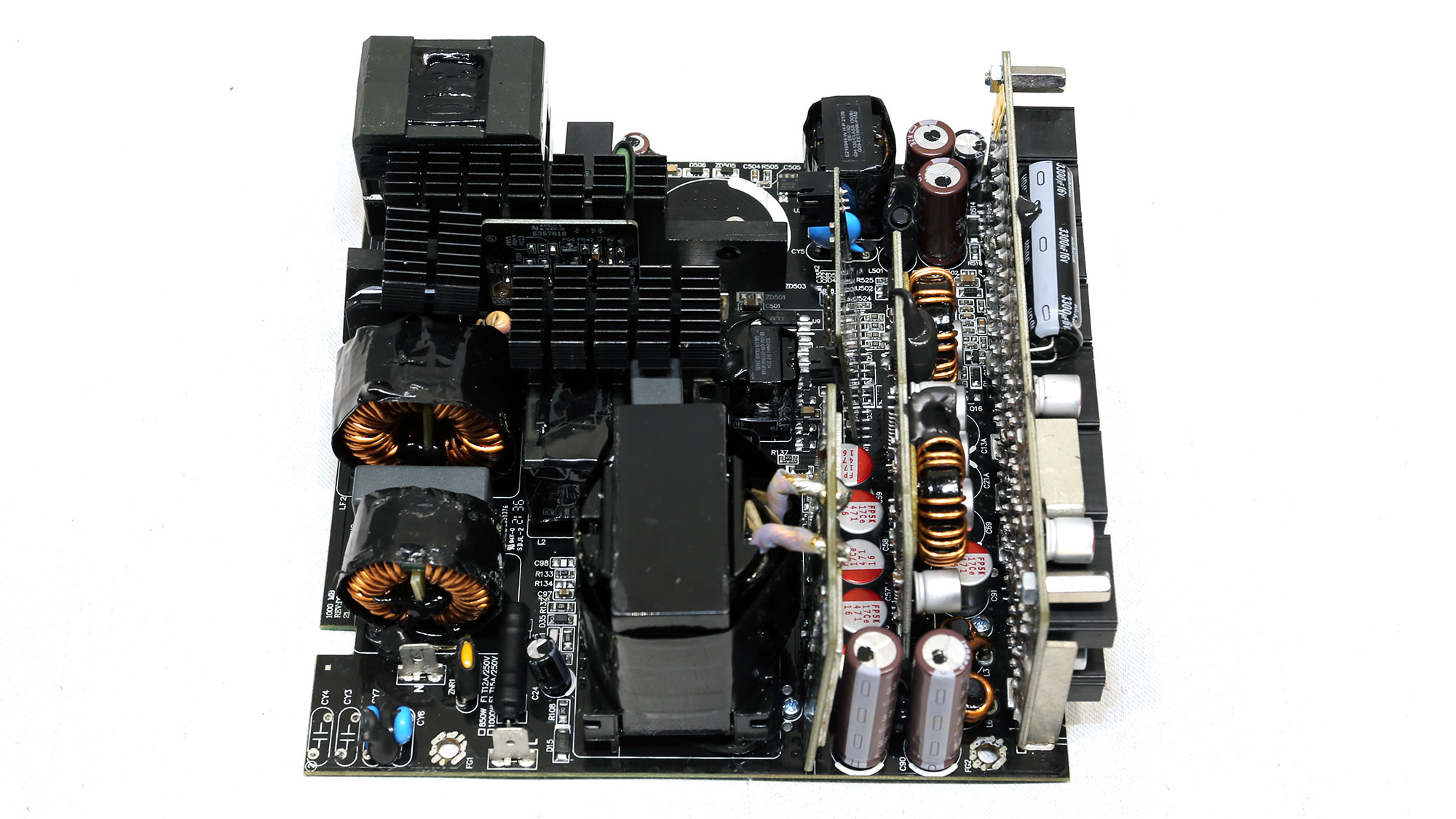
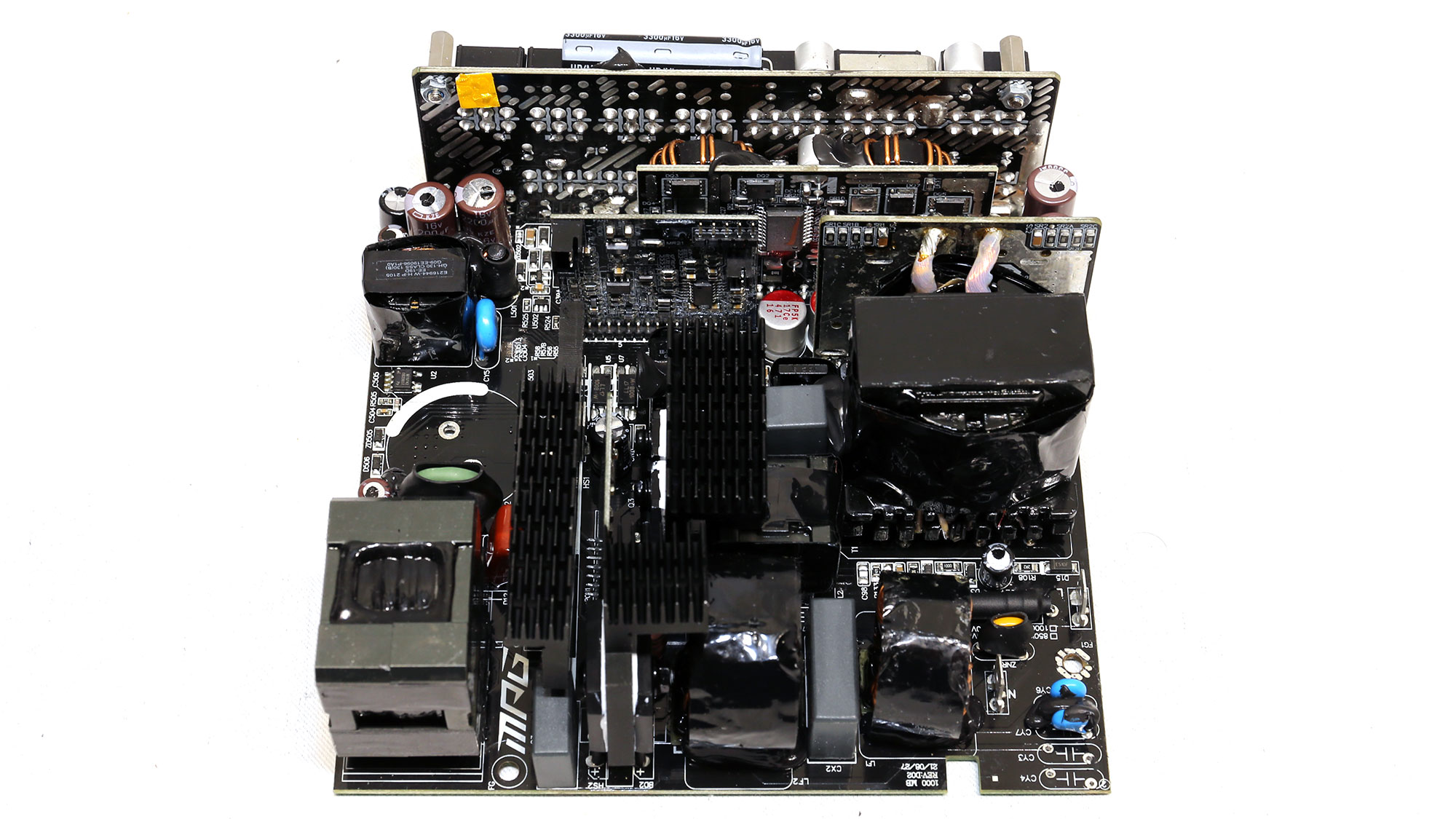
This looks to be CWT's CSZ platform, which goes up to 1200W, offering Gold efficiency in both 80 PLUS and Cybenetics standards. The PCB is small for a 1000W PSU, so it is packed with parts. This will make airflow harder, so the fan will have to work more to cool down the internals. Nonetheless, the high-efficiency levels will help in this. The building quality is high despite the leaning heat sink holding the bridge rectifiers.
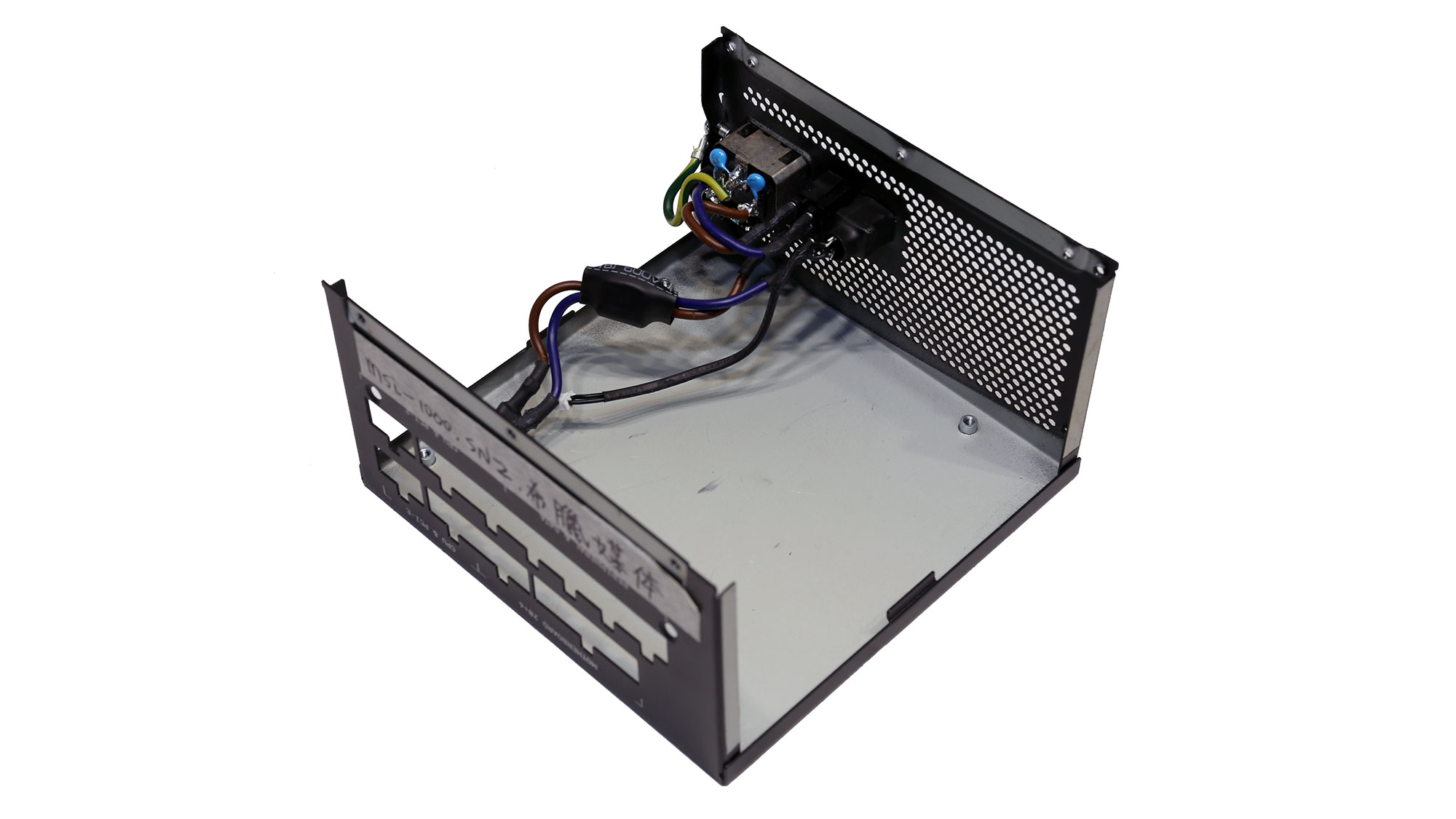
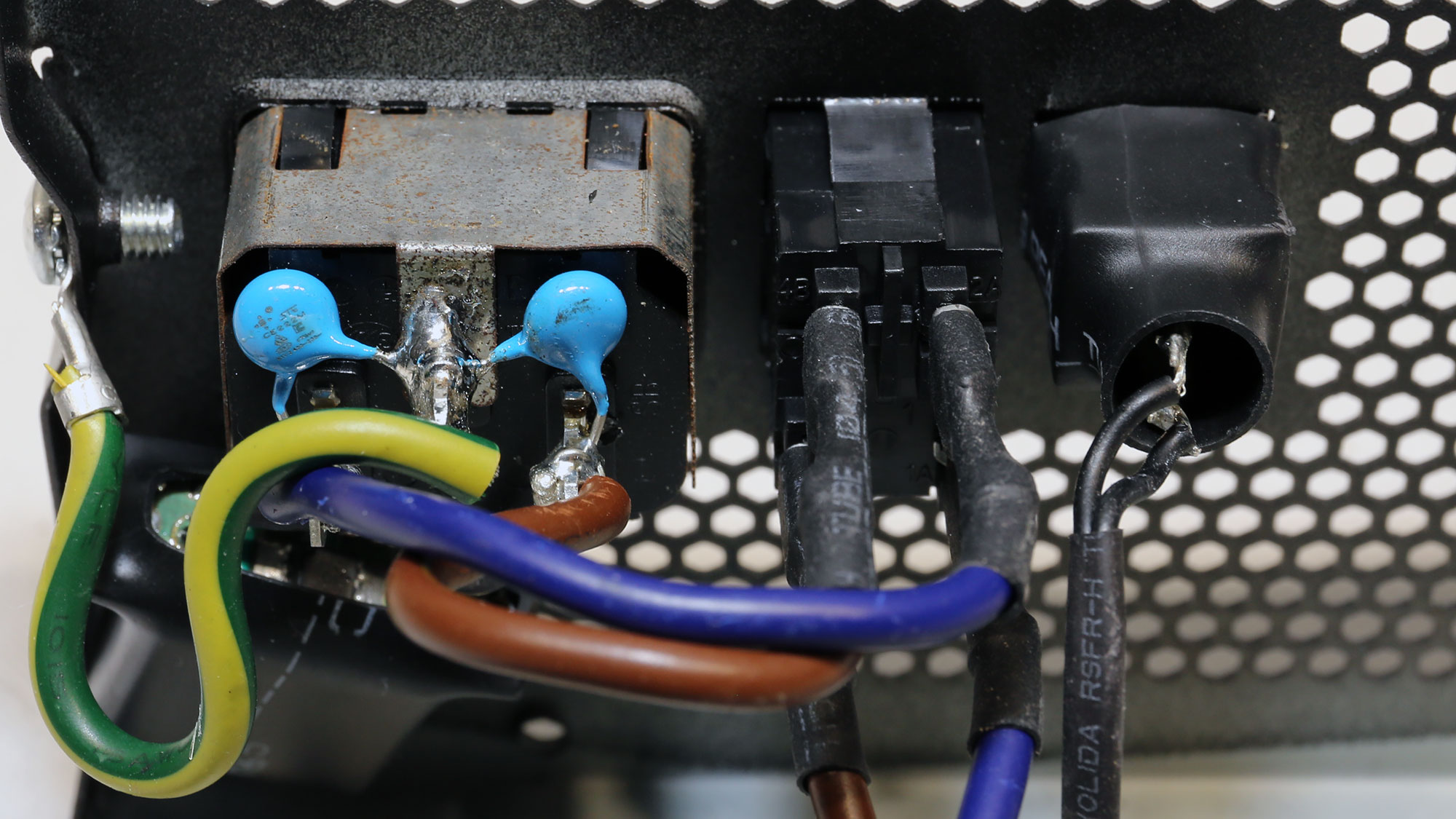
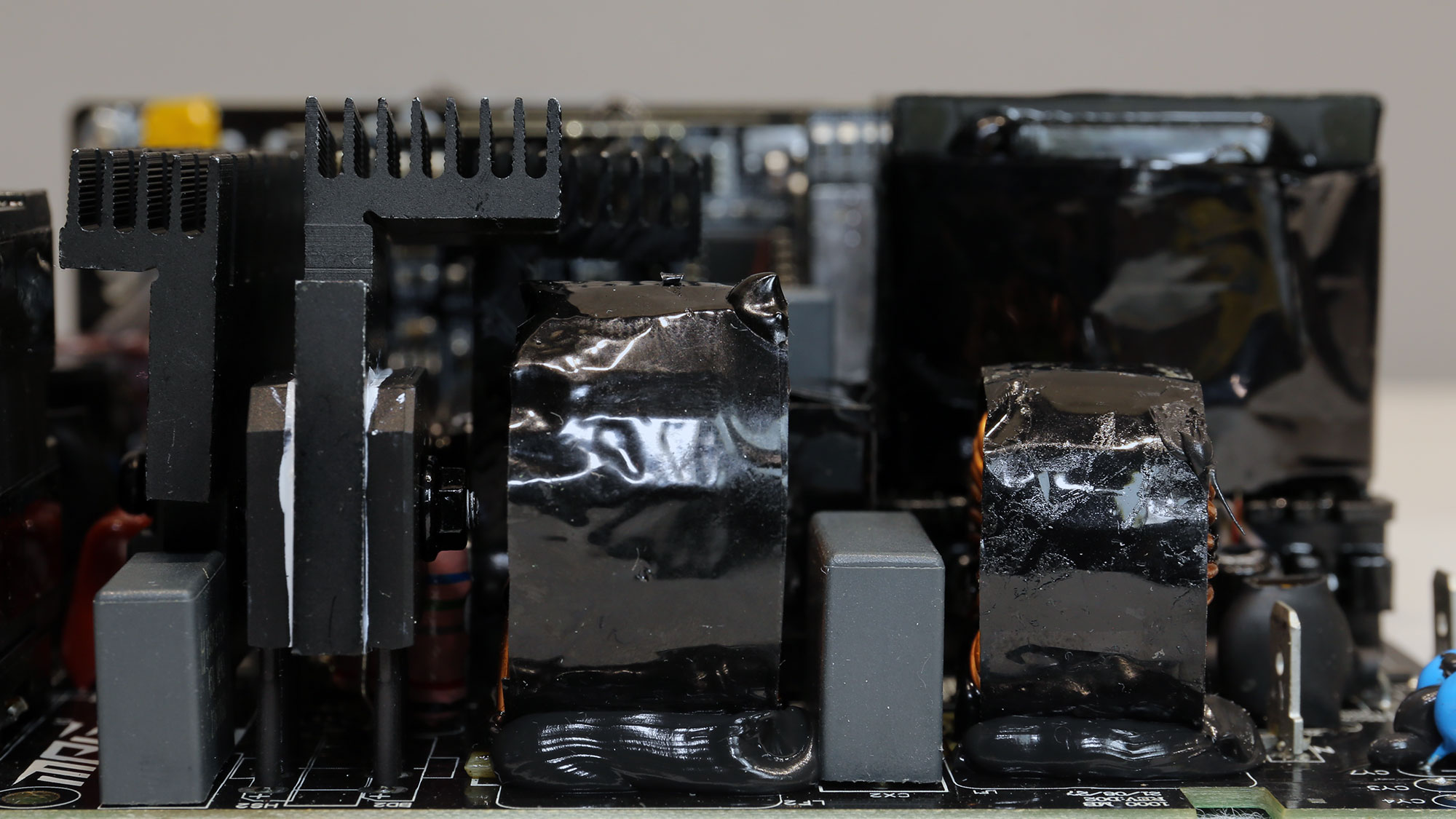
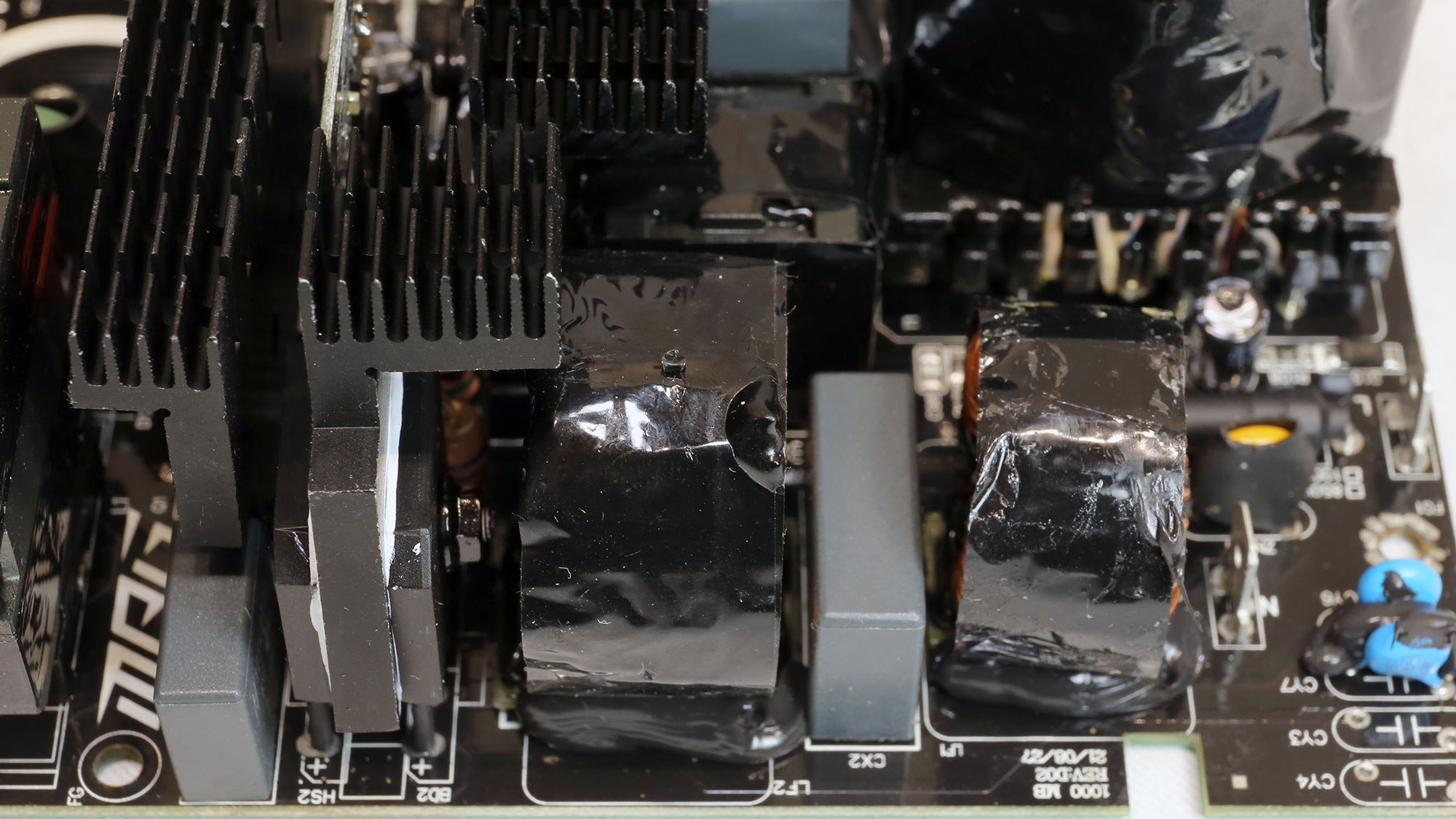
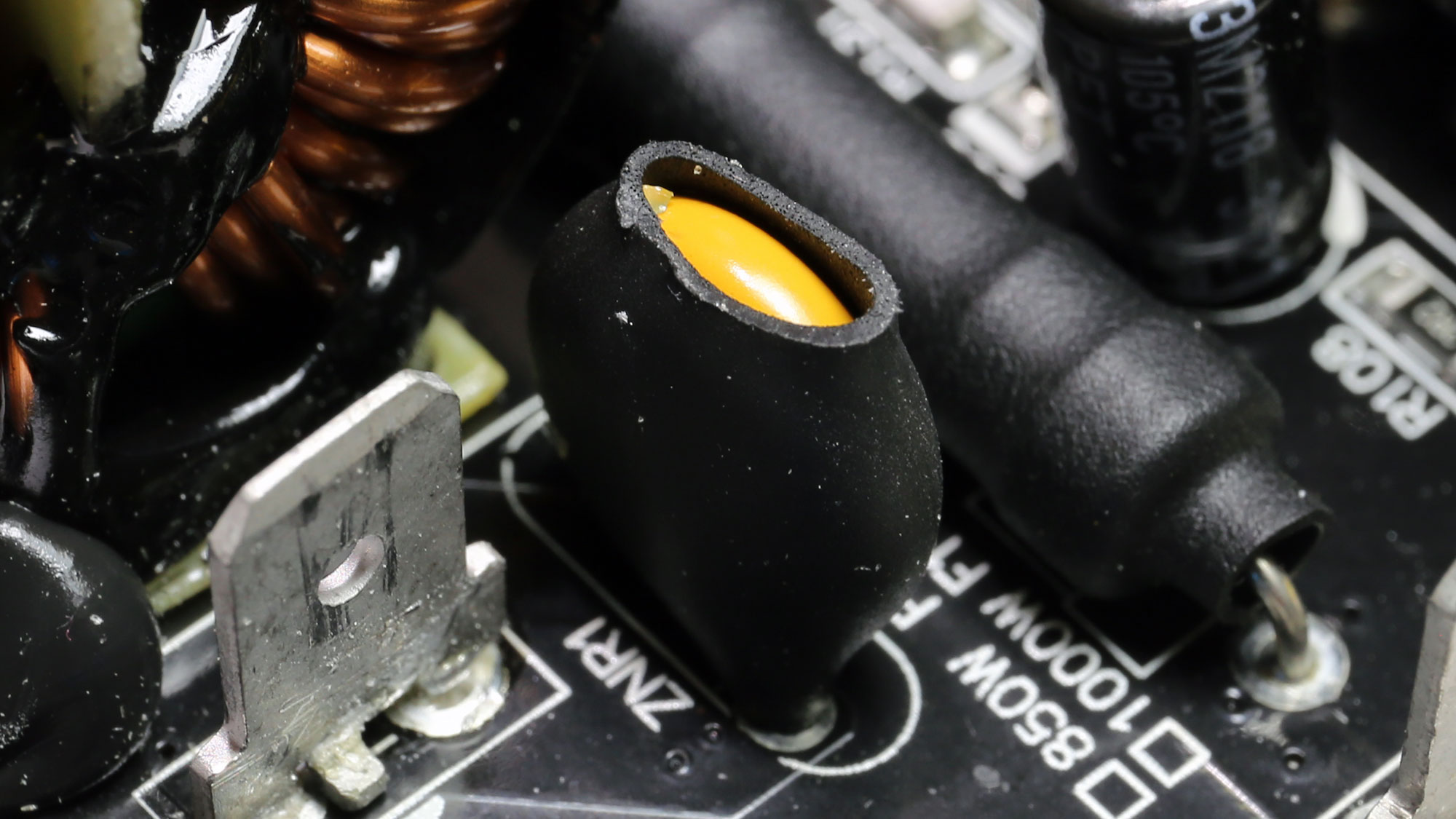
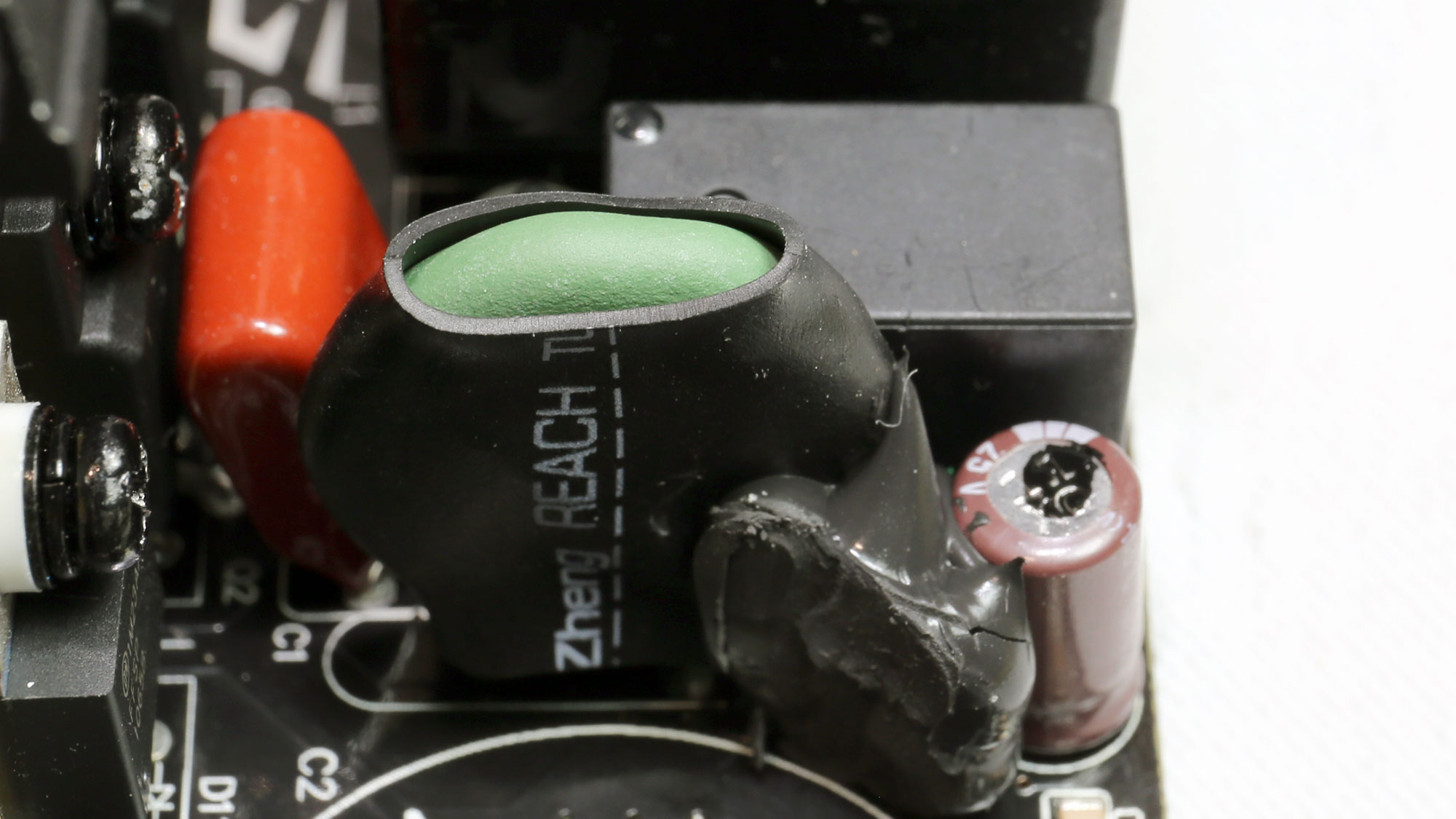
The transient/EMI filter has all necessary parts, including an MOV and an NTC thermistor supported by a bypass relay. However, the thermistor's resistance should be higher to restrict inrush currents with 230V input more effectively.
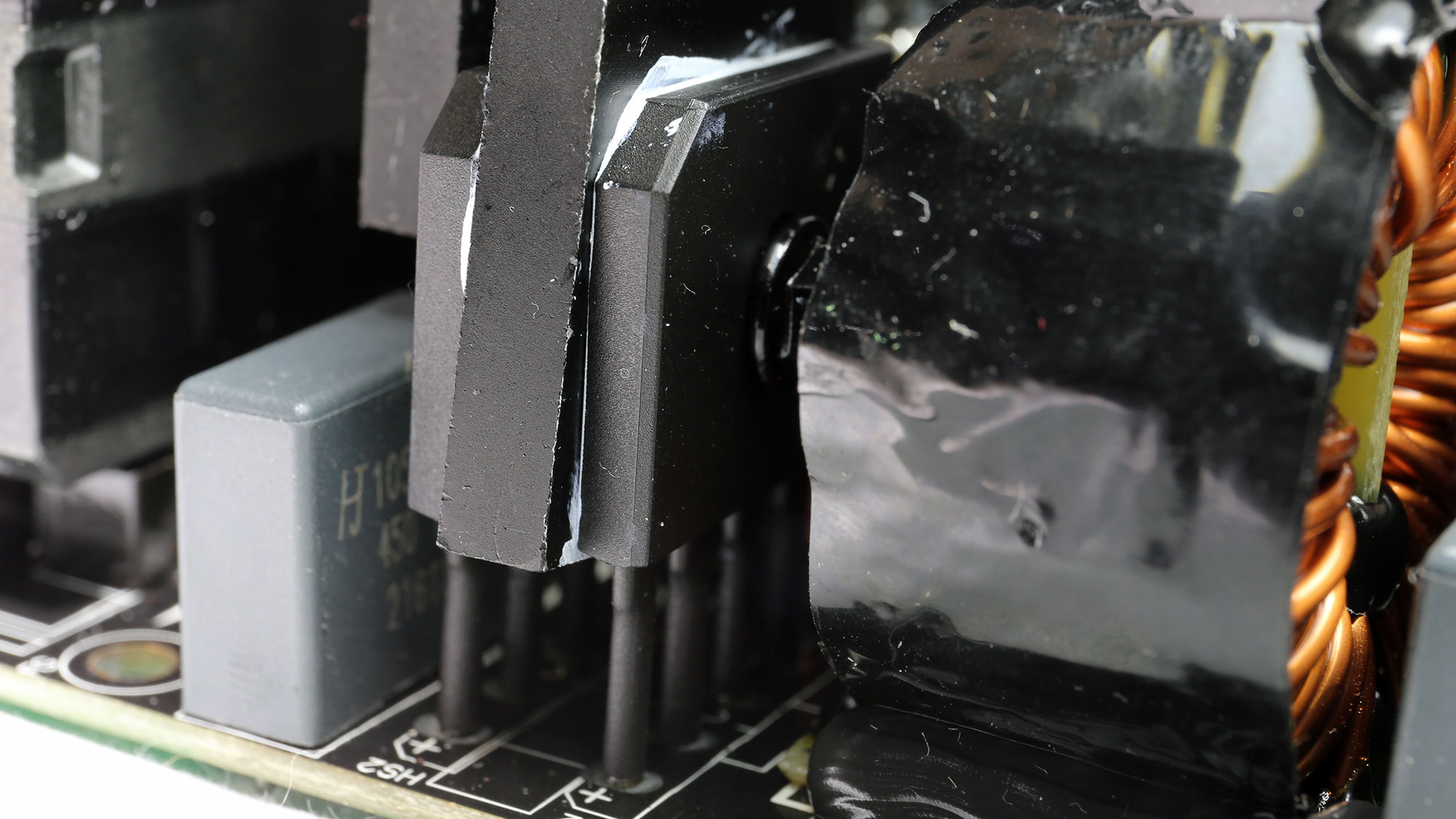
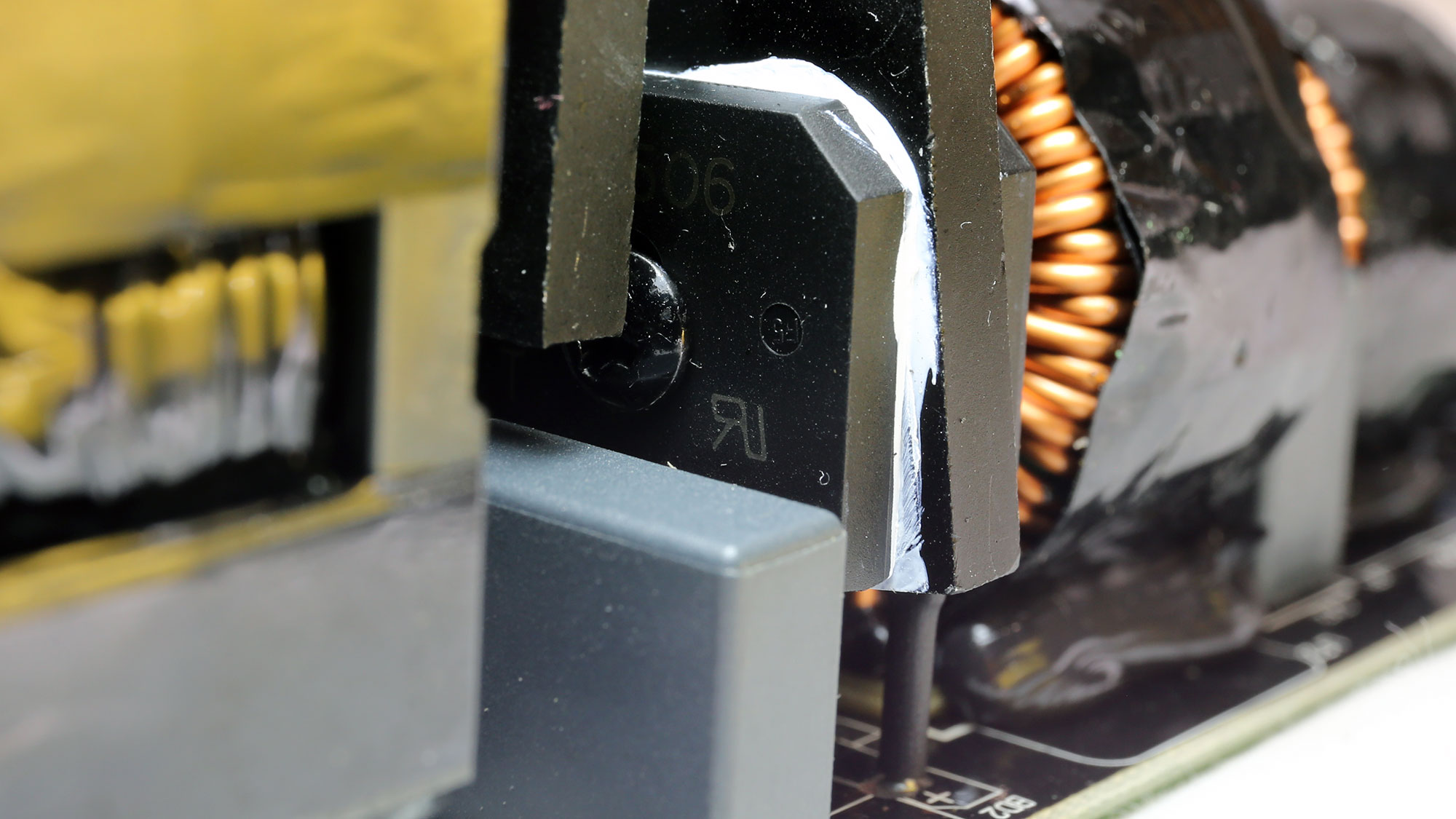
The pair of bridge rectifiers is bolted on a heavily leaning heat sink.
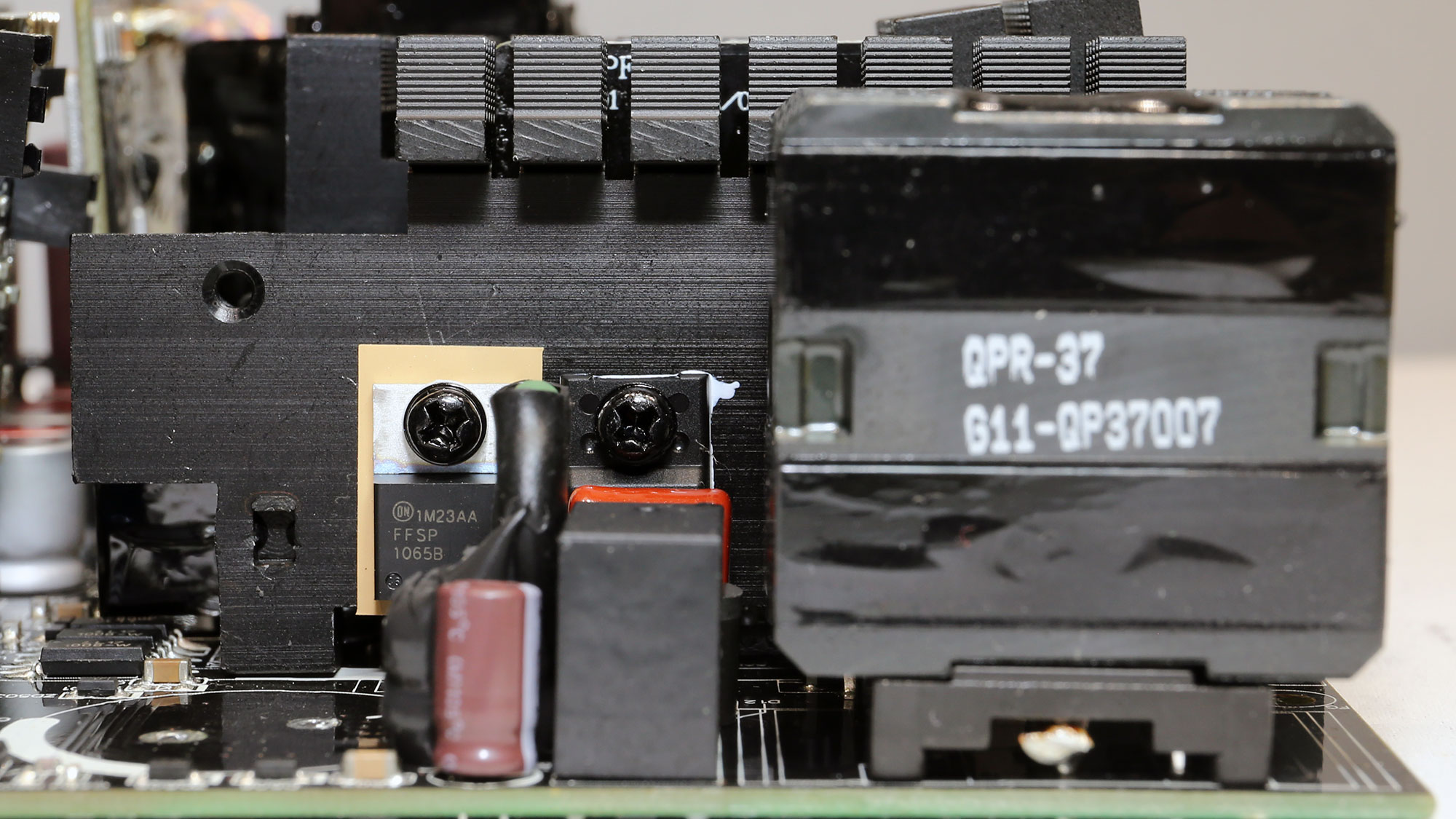
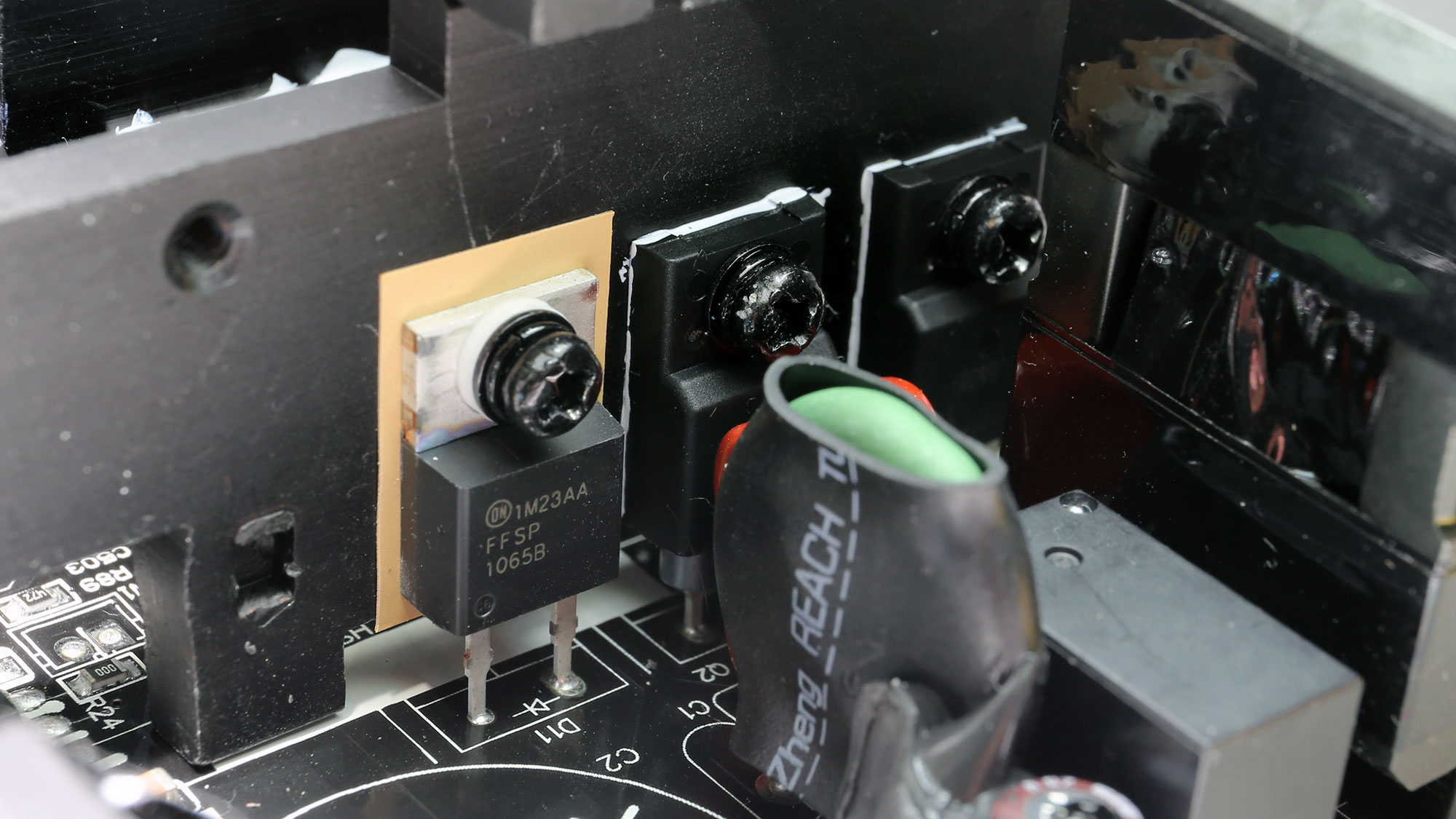
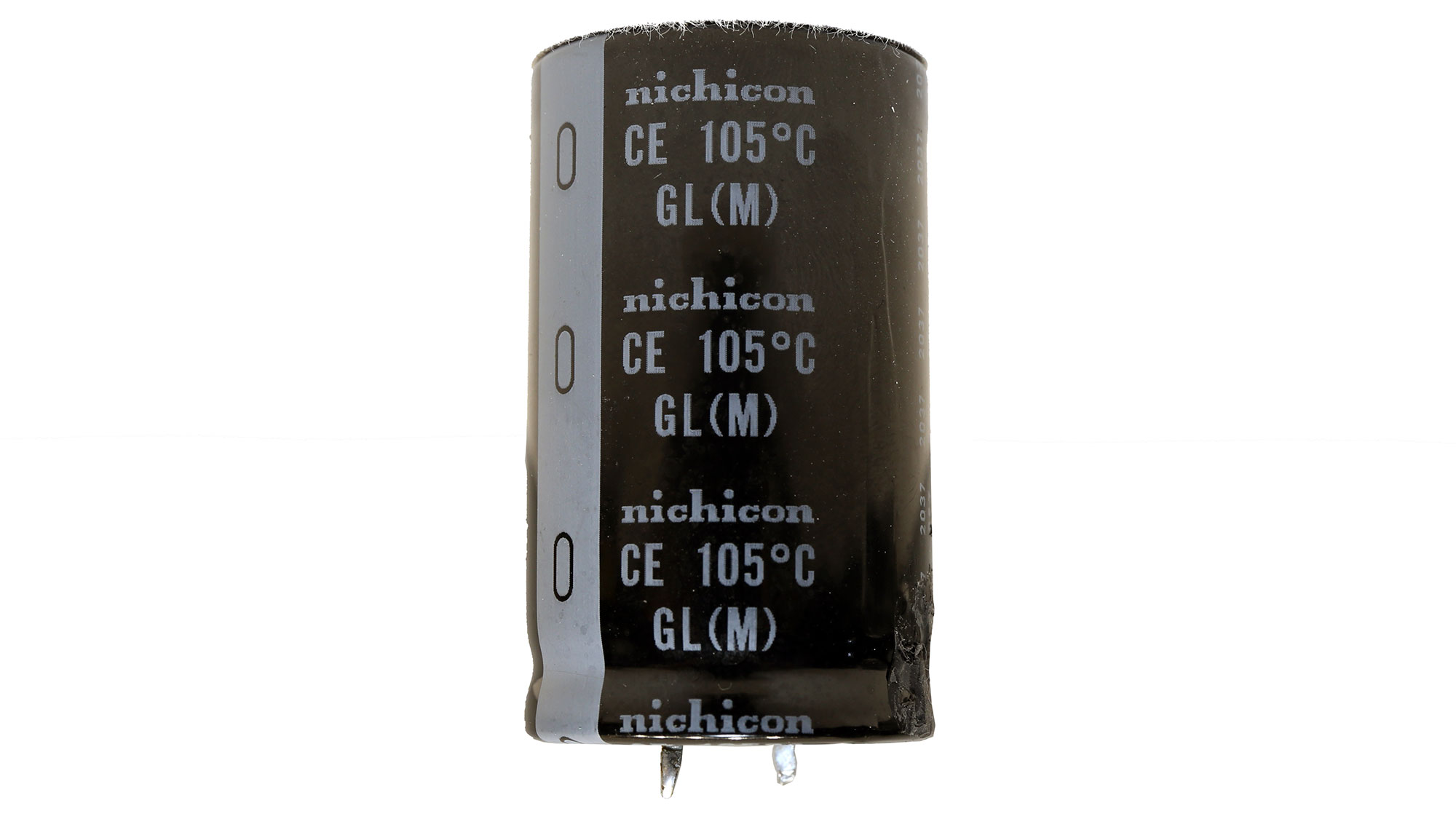
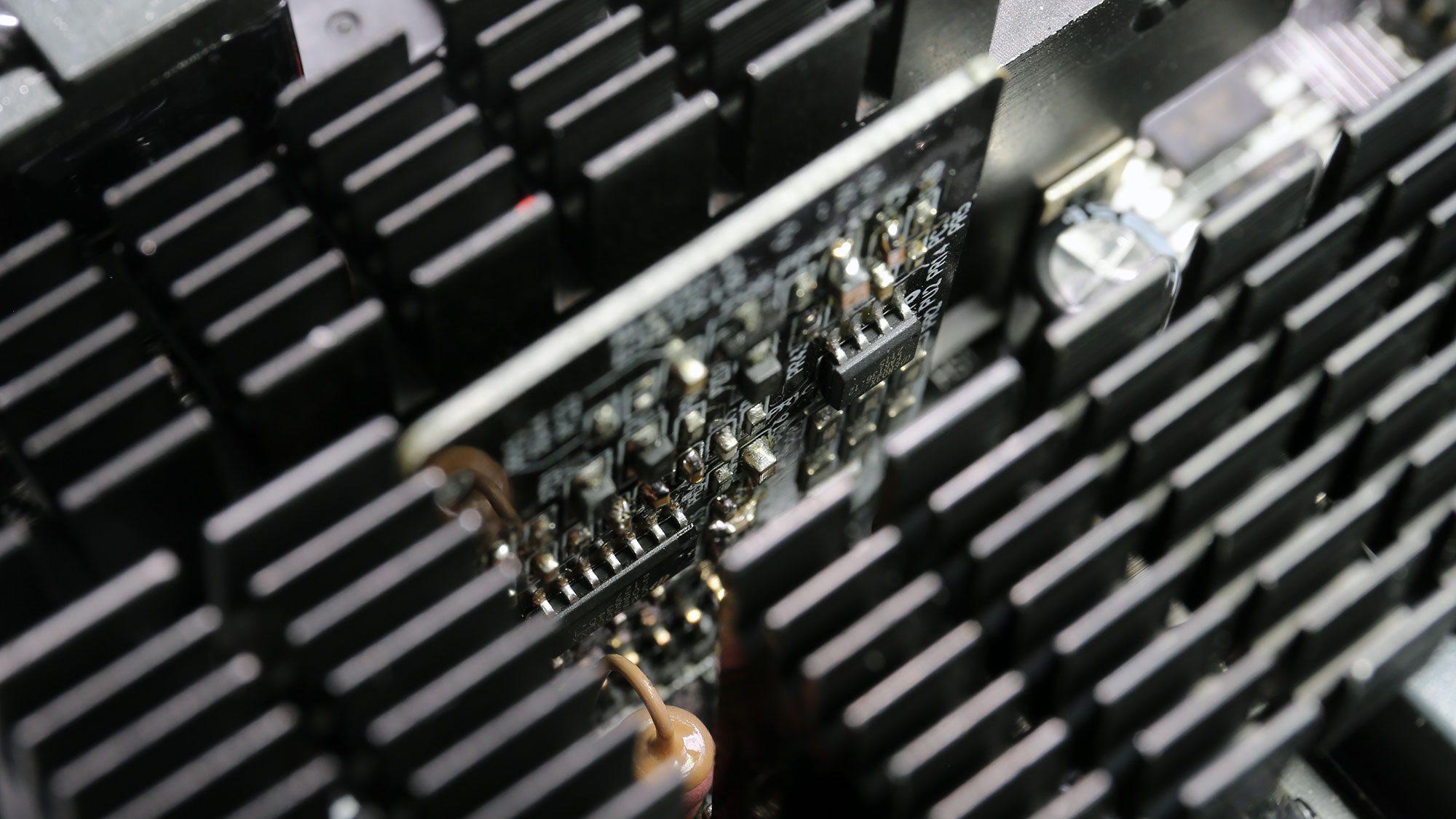
The APFC converter uses two Infineon FETs and a powerful boost diode provided by On Semiconductor. The bulk cap is by Nichicon and has enough capacity to offer more than 17ms hold-up time.
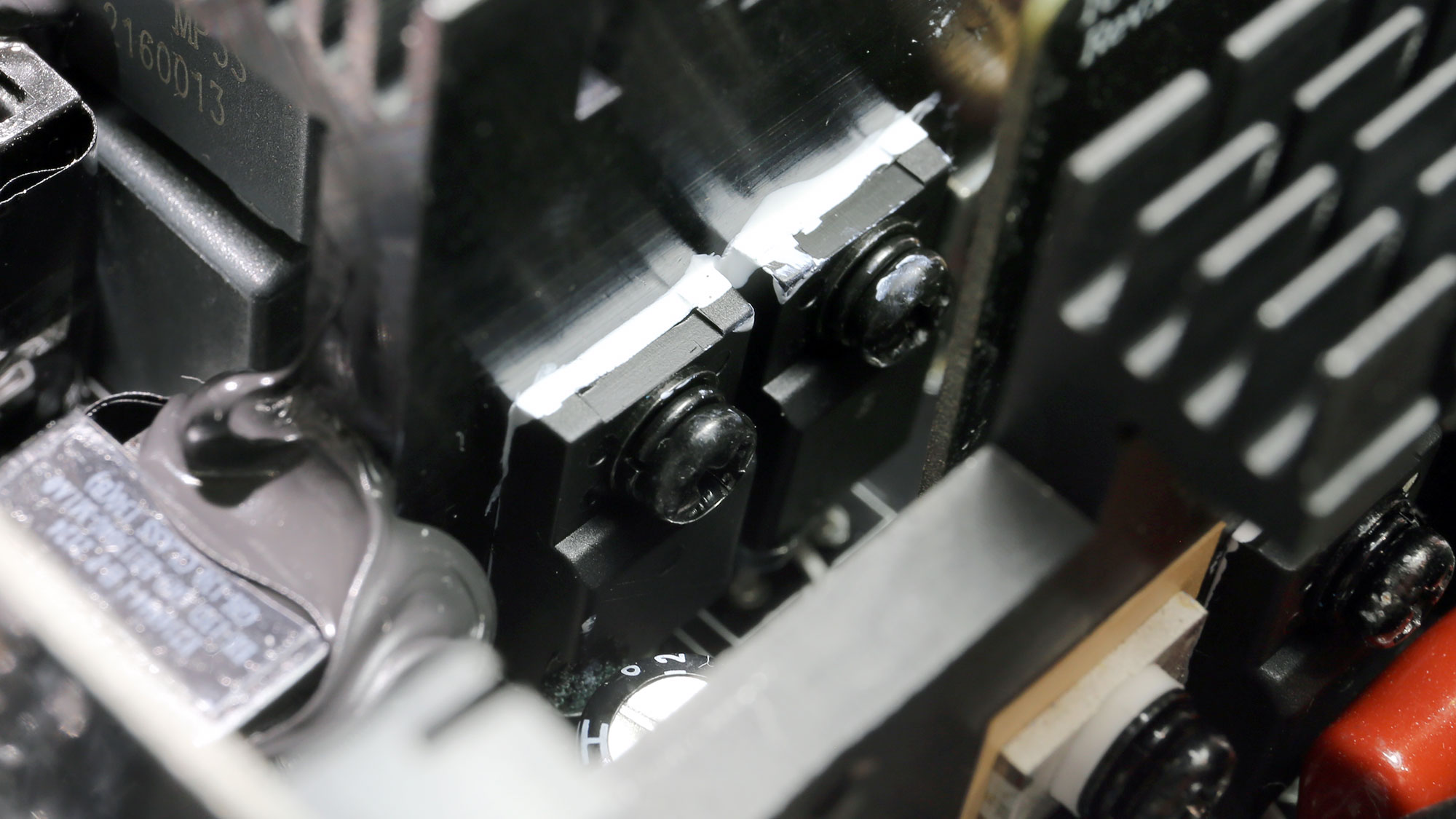
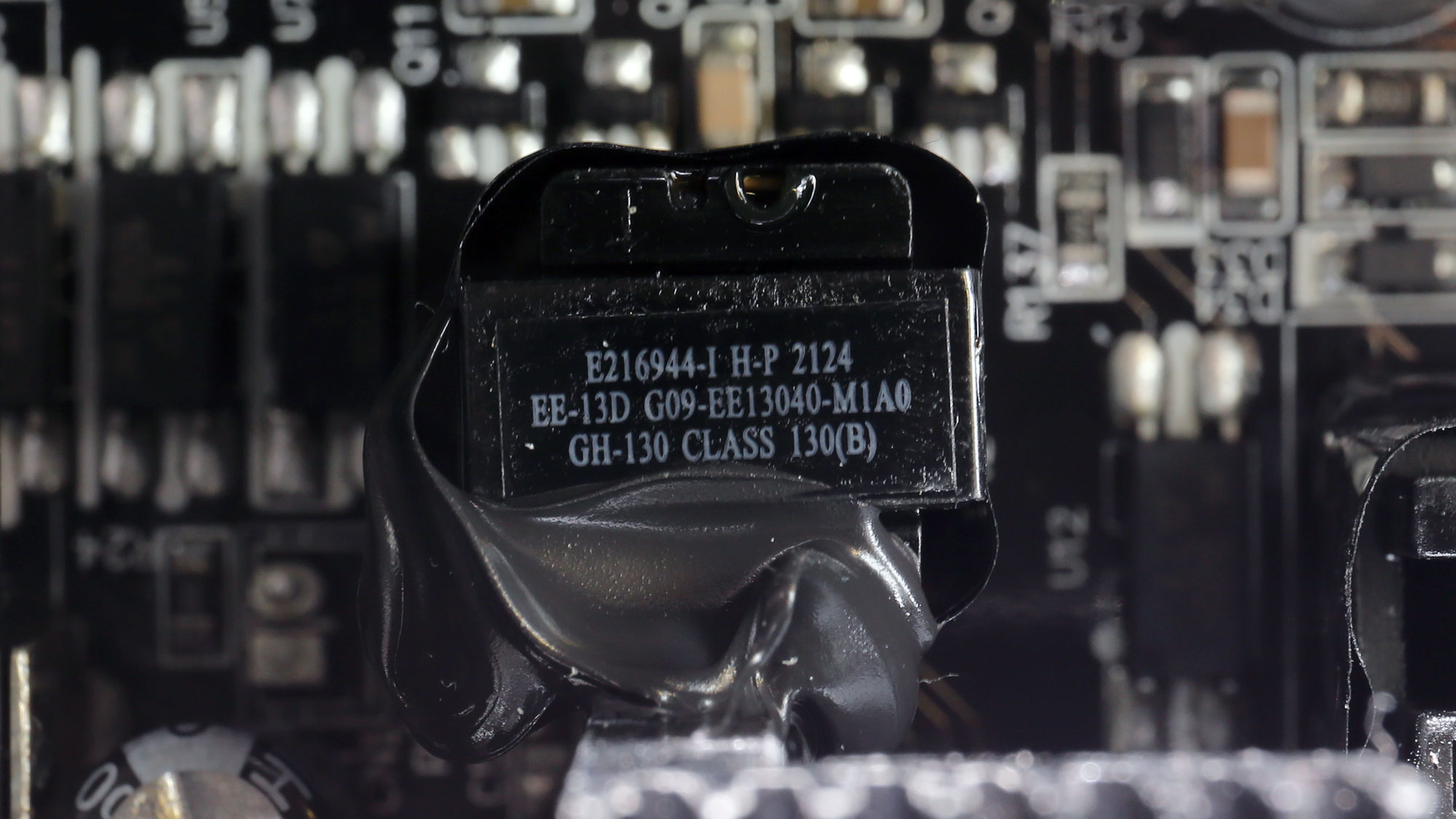
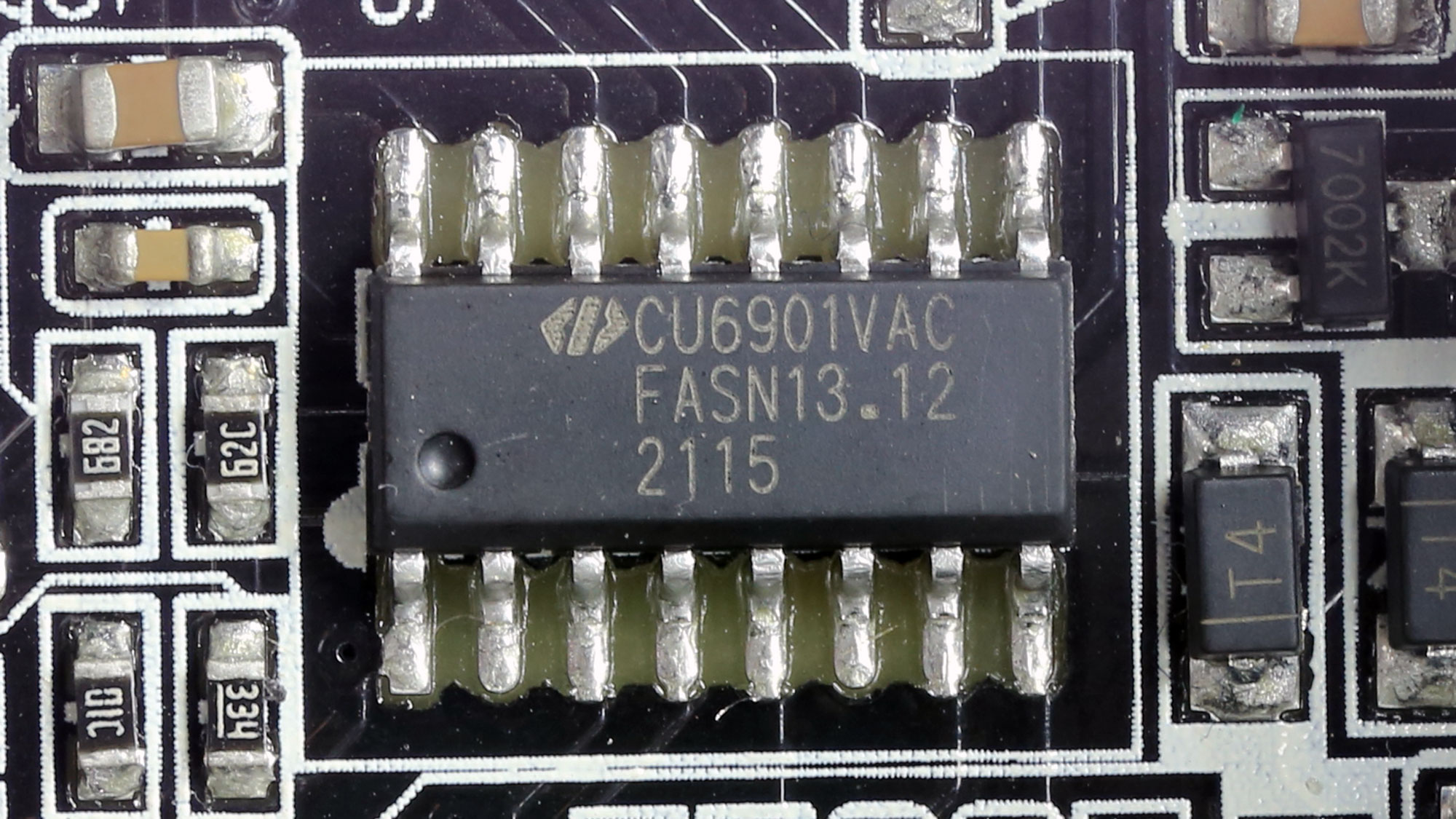
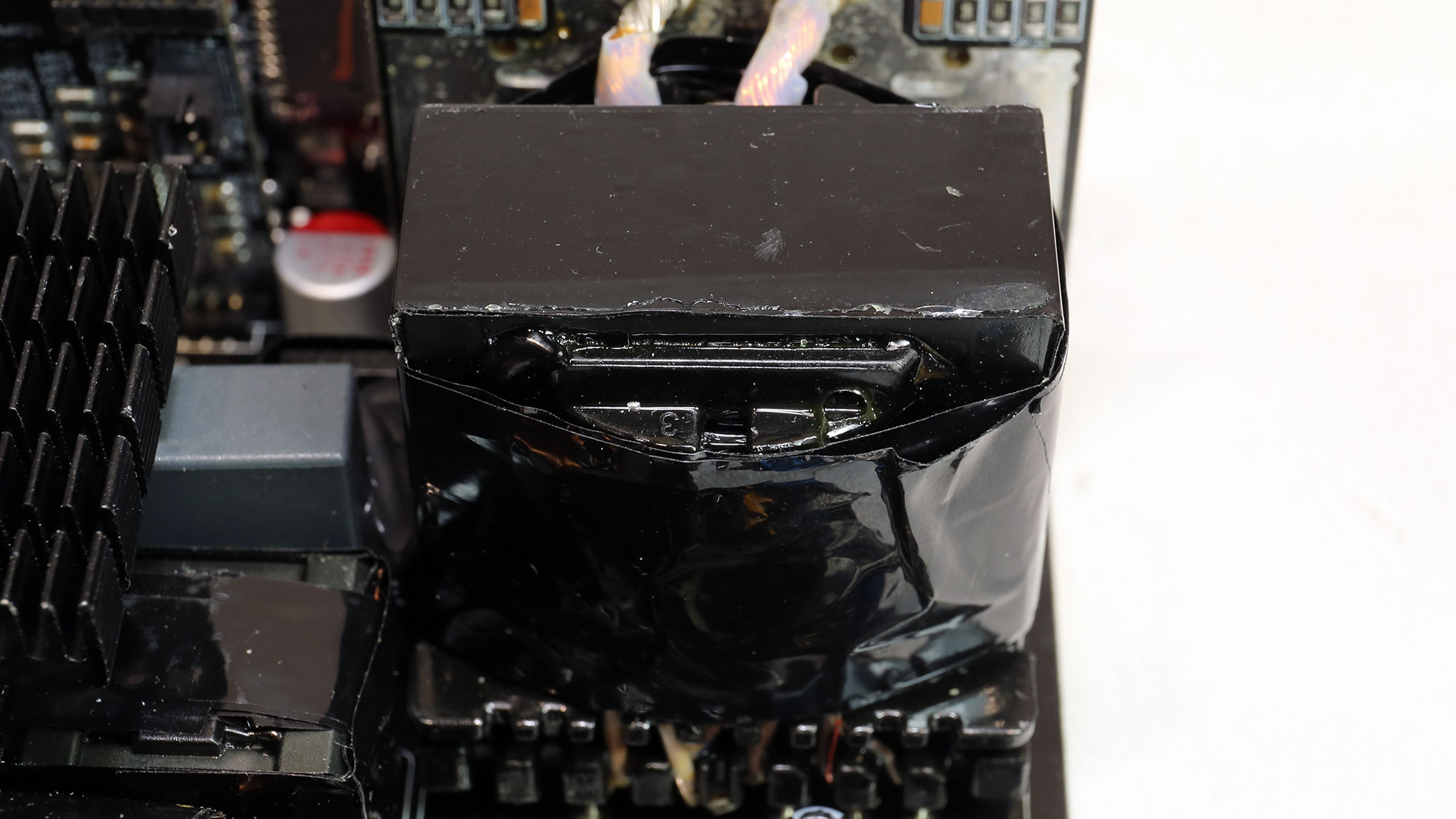
The primary switching Infineon FETs are installed in a half-bridge topology. They are accompanied by an LLC resonant converter for lower power losses on both primary and secondary sides.
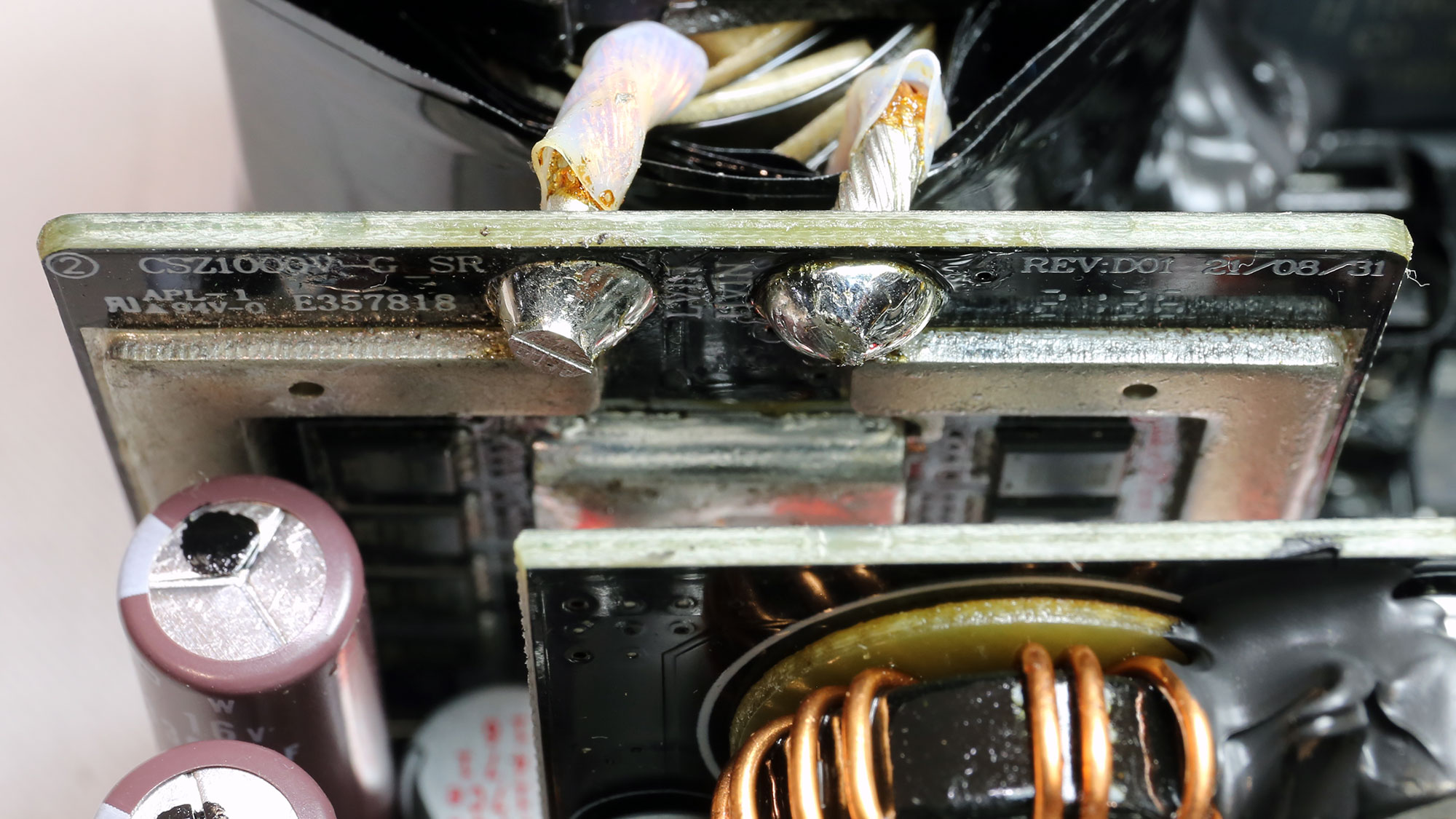
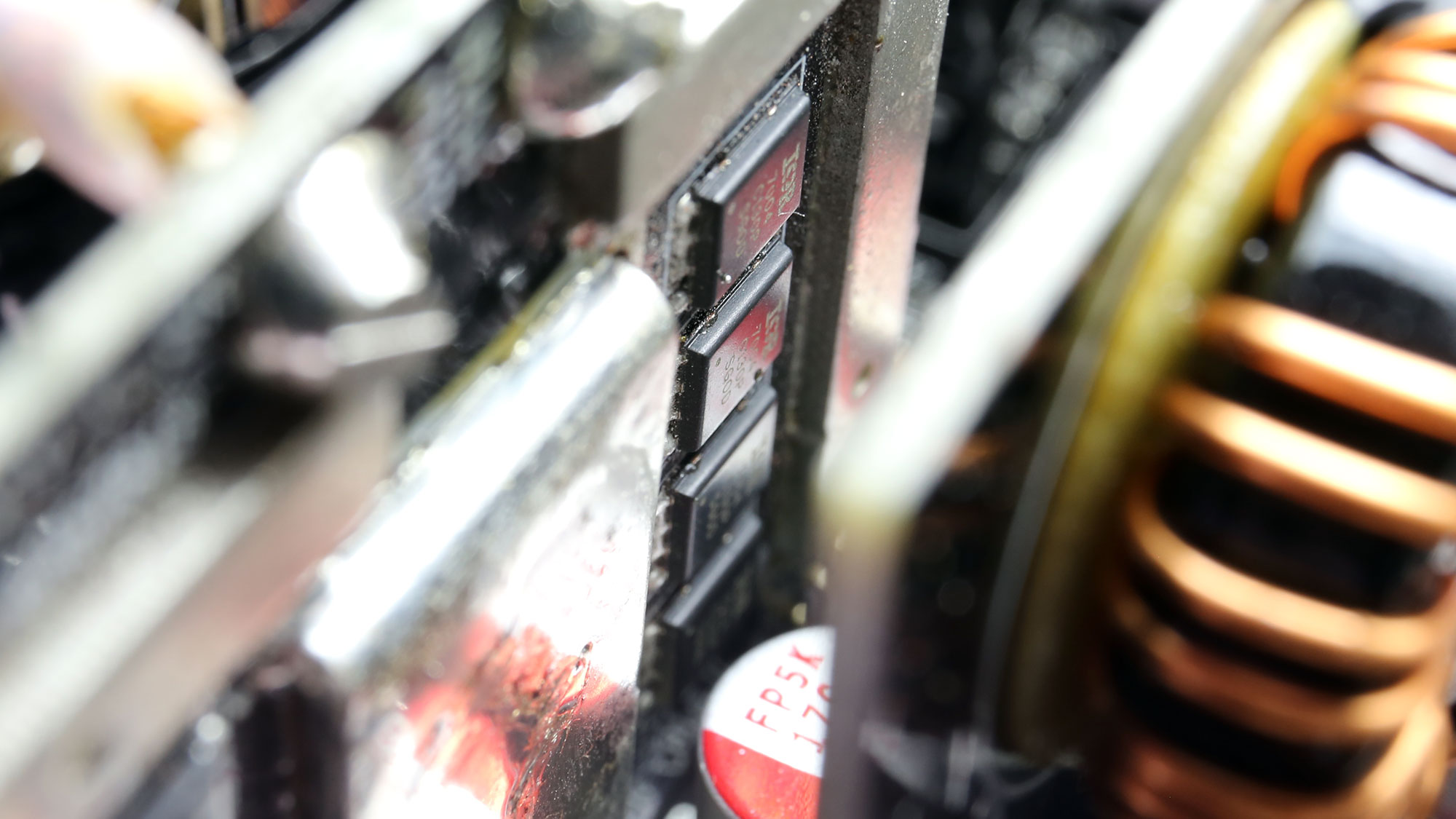
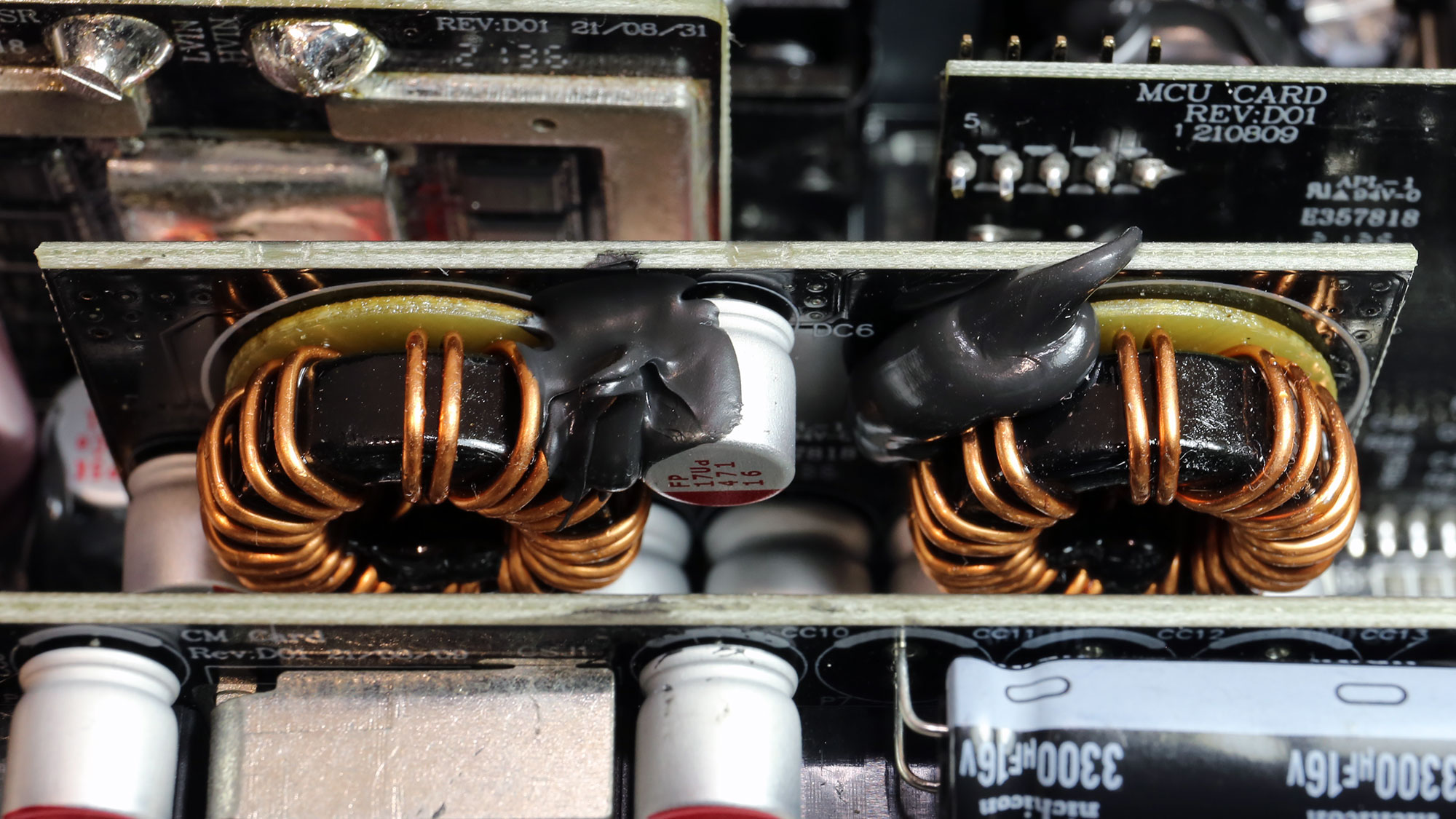
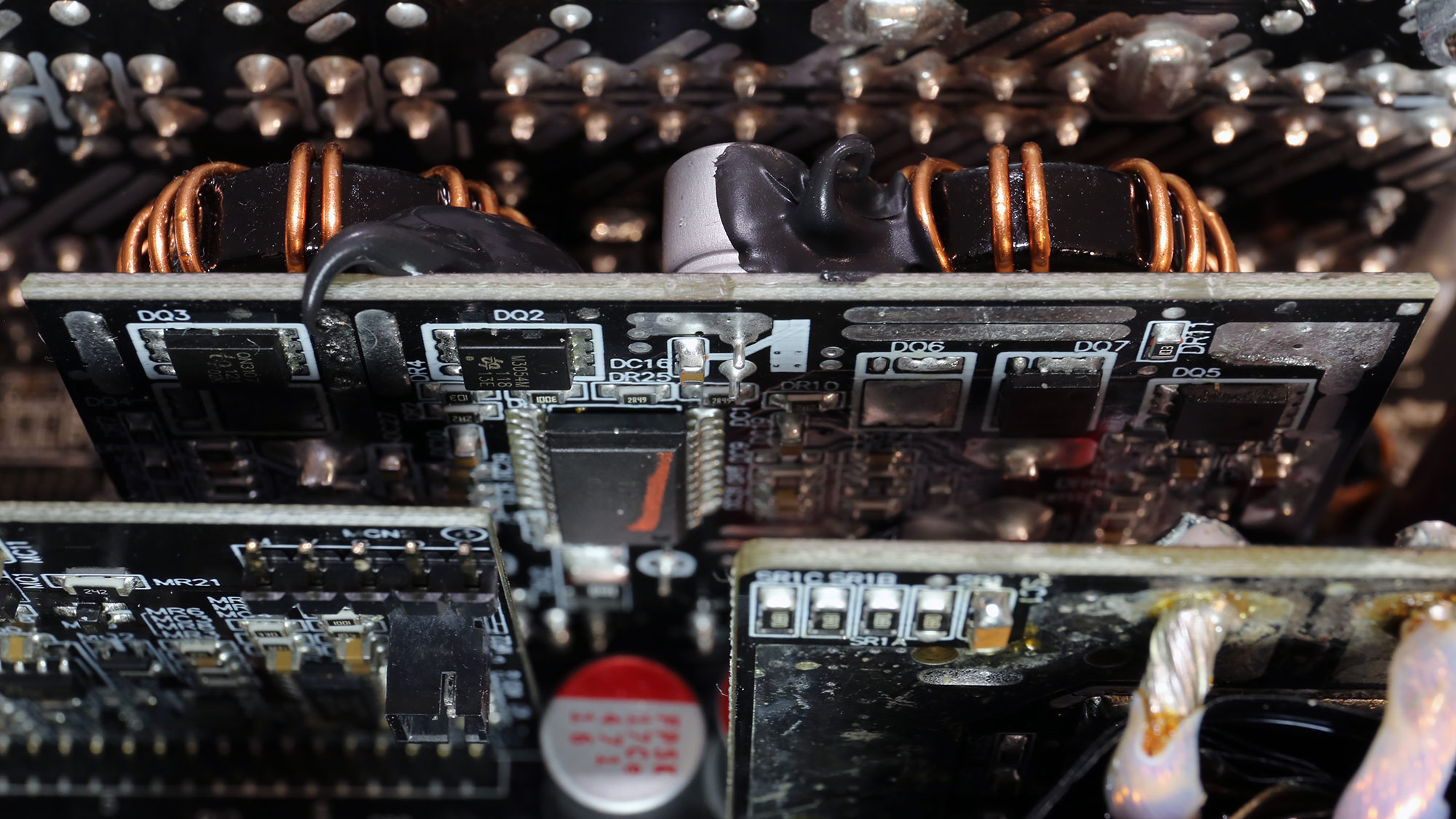
Eight FETs regulate the 12V rail, and the minor rails use four UBIQ FETs and have a common PWM controller.
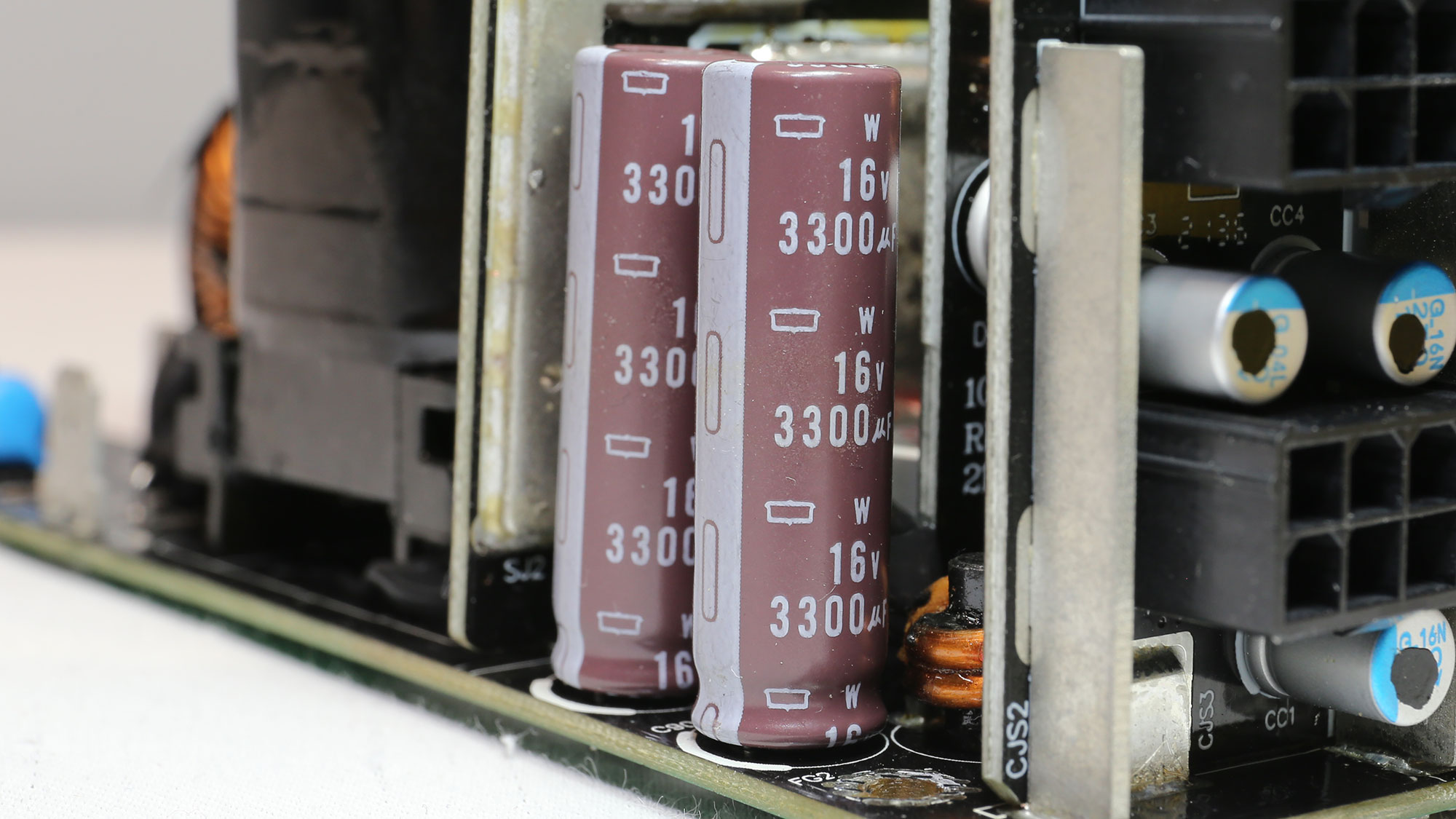
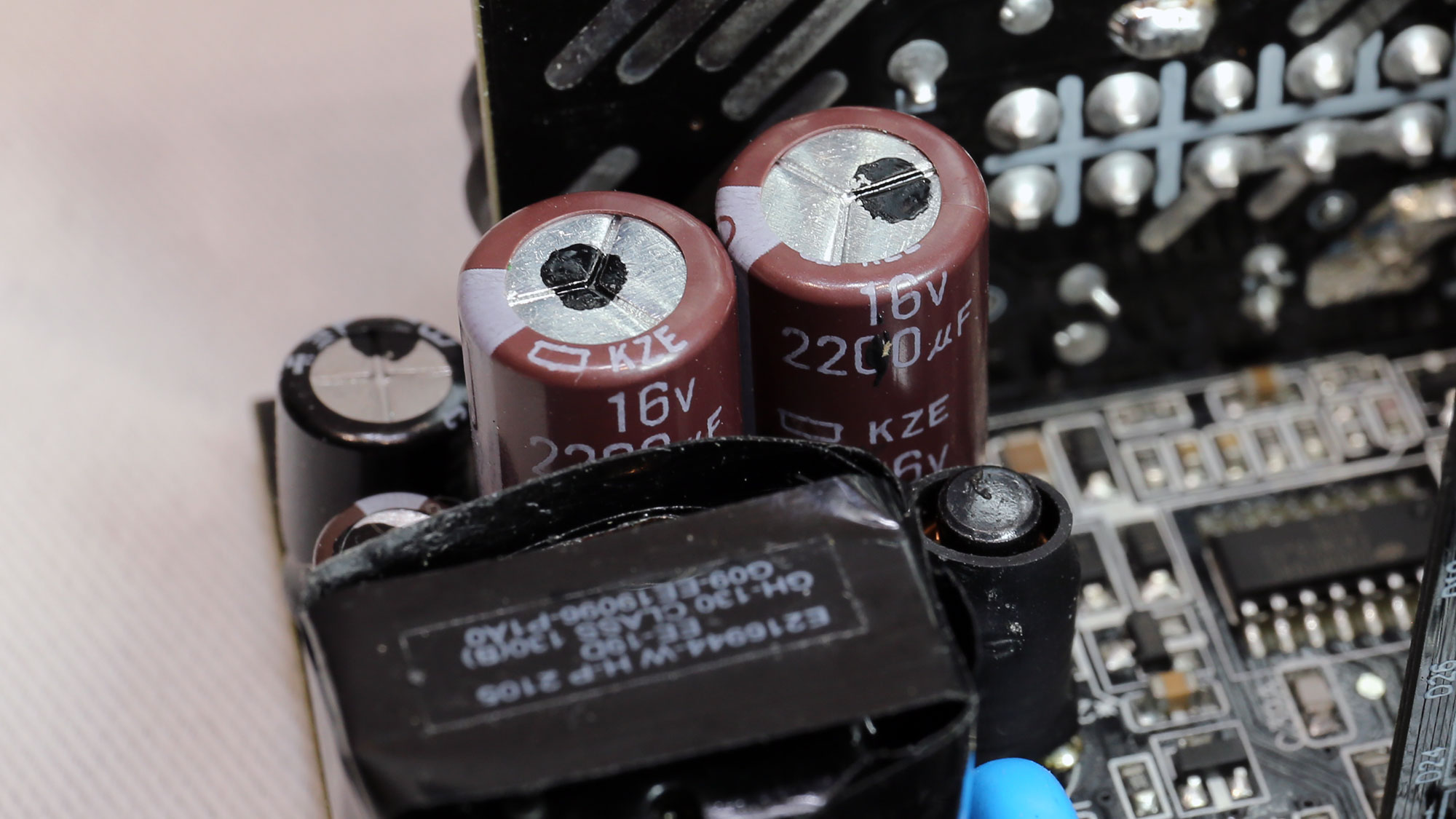
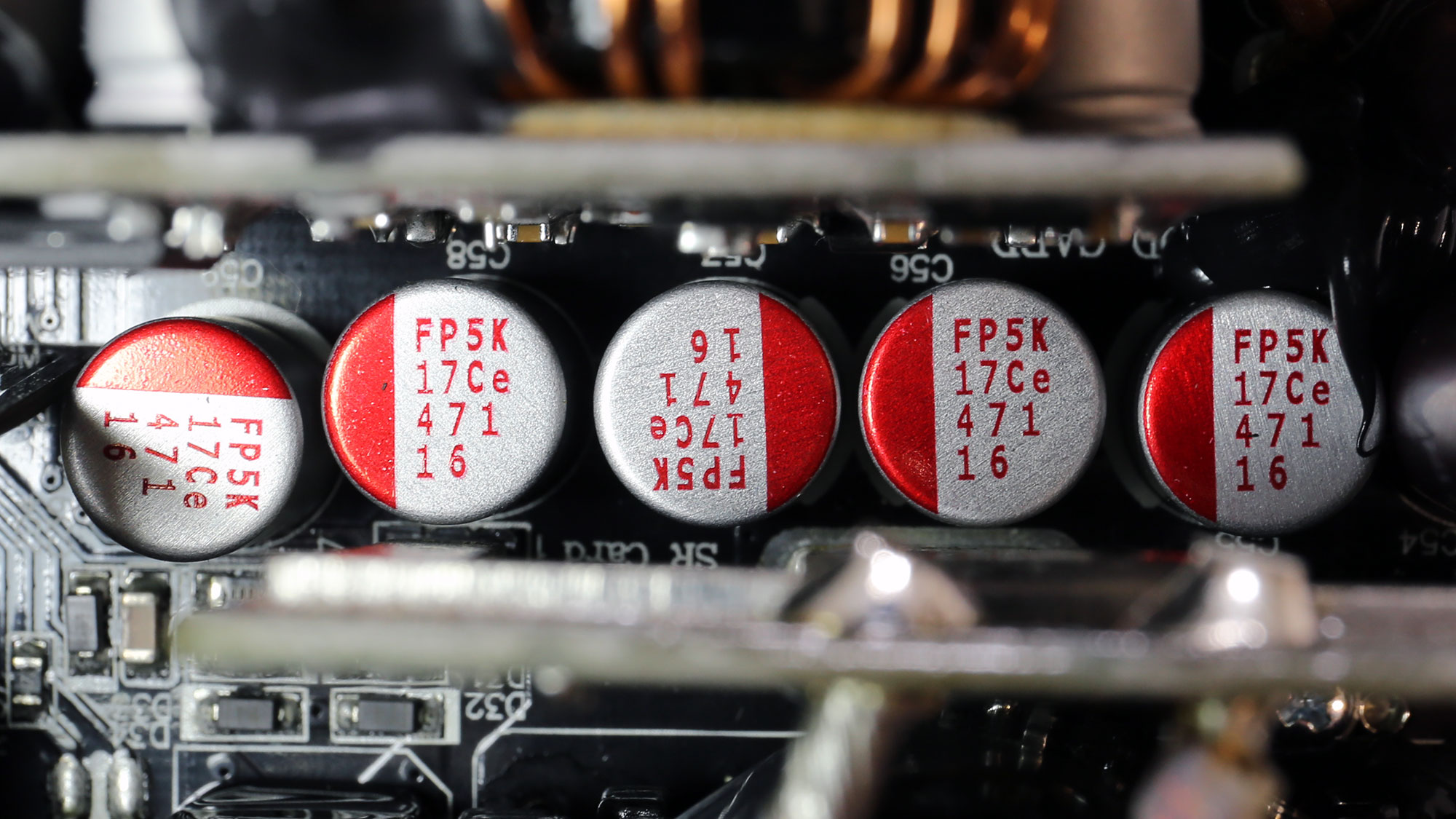
All filtering caps are of good quality. Besides electrolytic caps, many polymer ones are used for ripple filtering purposes.
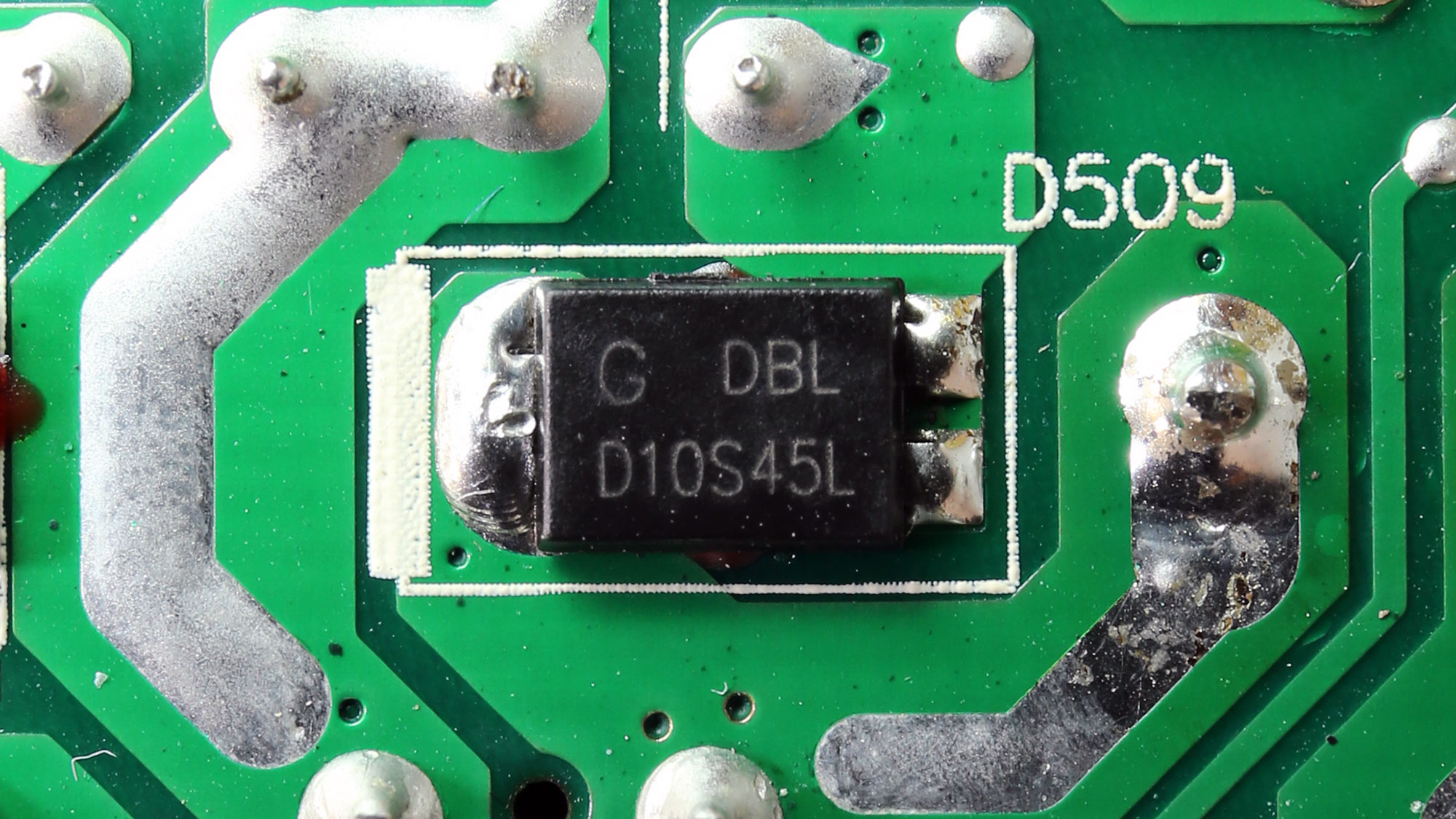
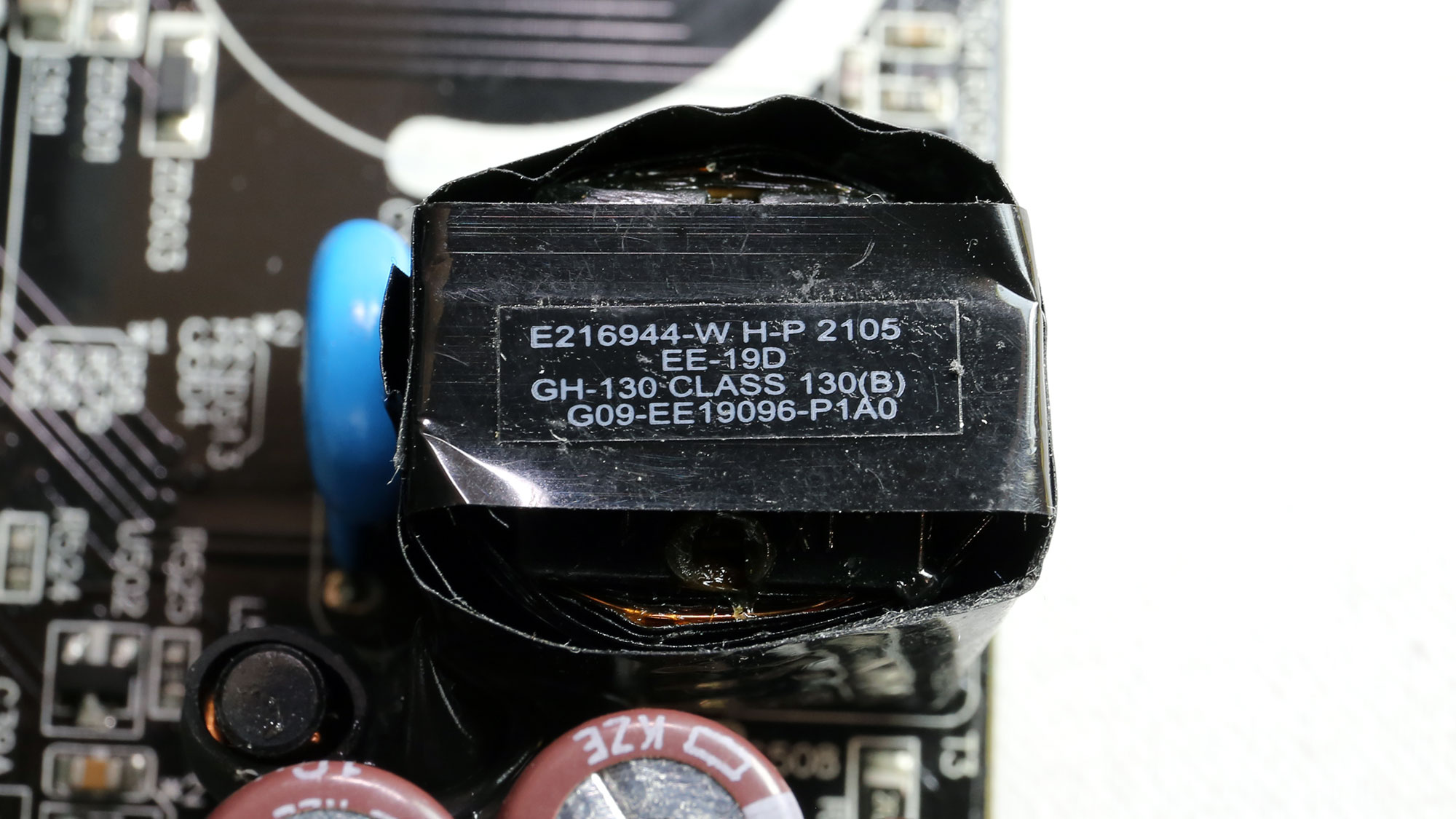
The standby PWM controller is an On Bright OB2365T IC, and the rectifier on the 5VSB circuit's secondary side is a D10PS45L SBR.
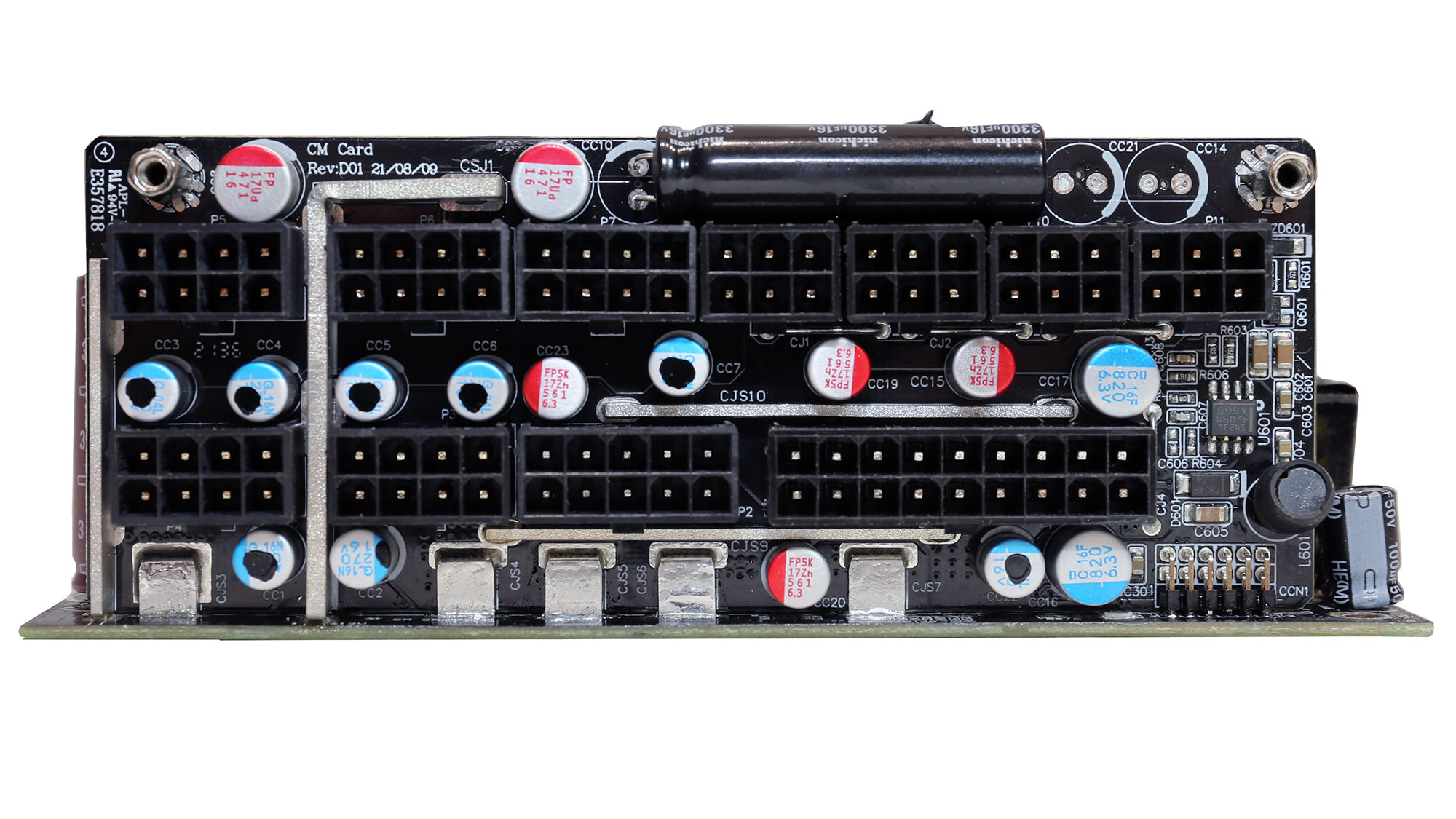
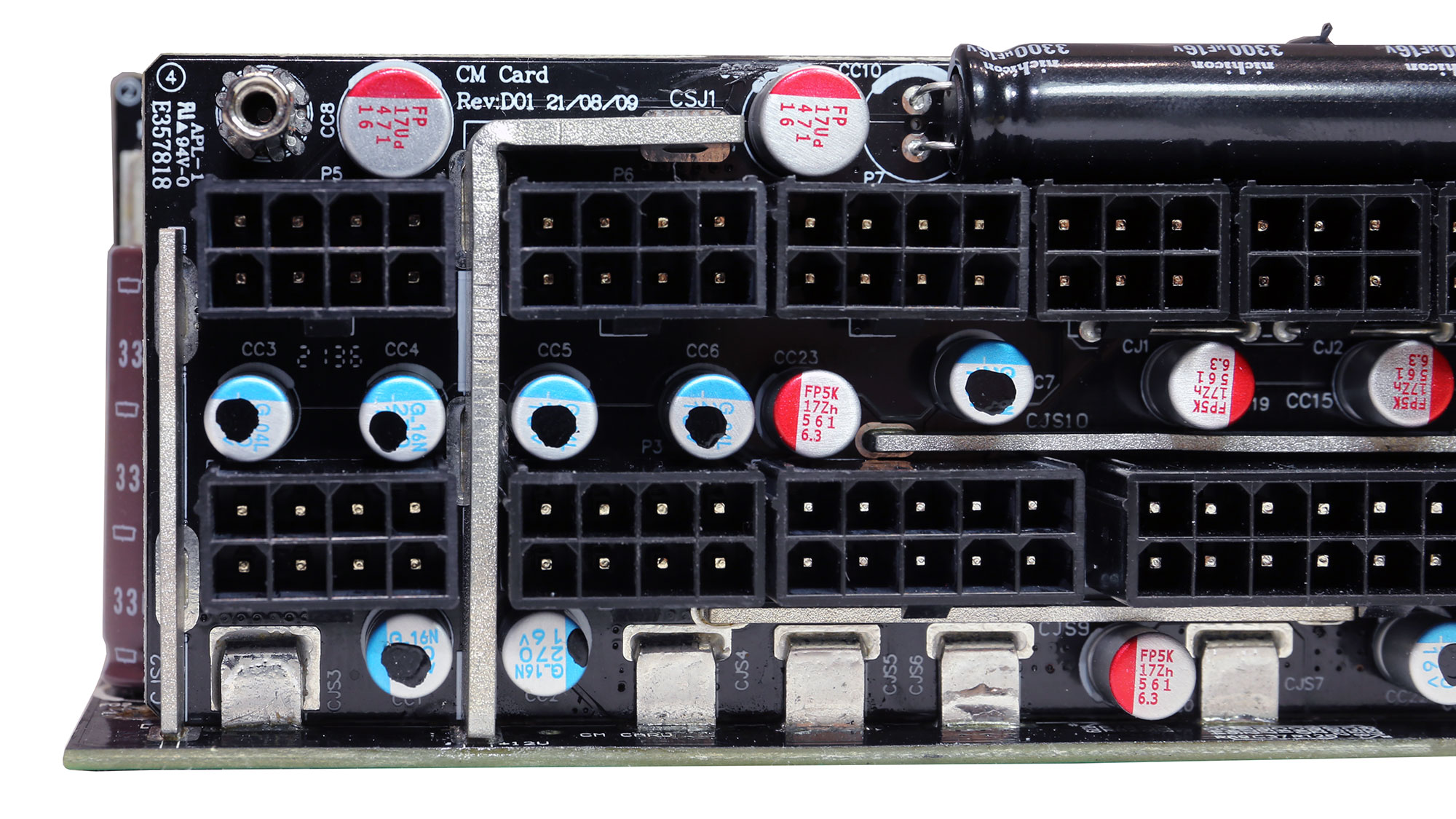
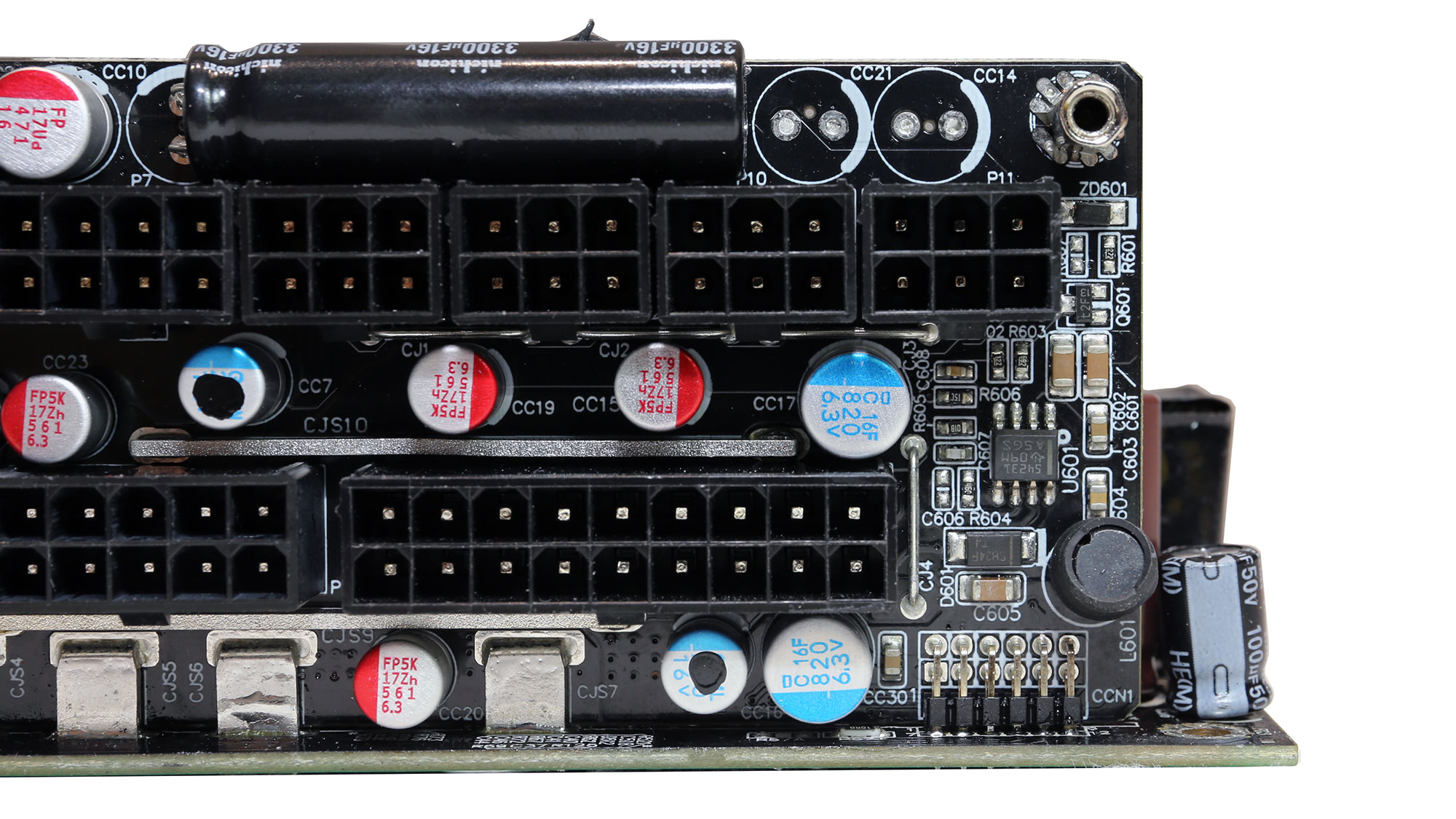
Several bus bars for power transfer on the modular board, along with a number of polymer caps and a large electrolytic.
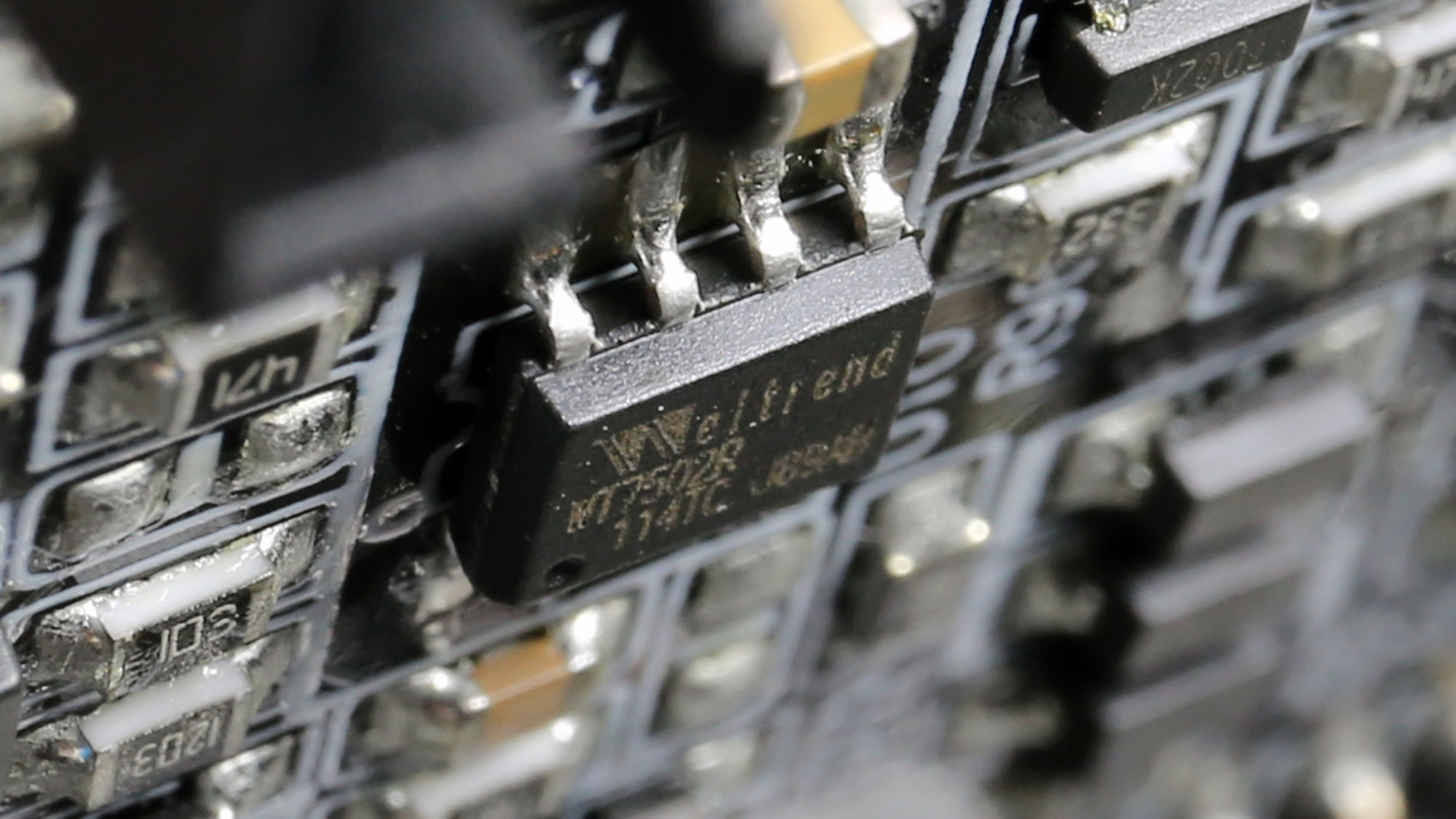
The main supervisor IC is a Weltrend WT7502R.
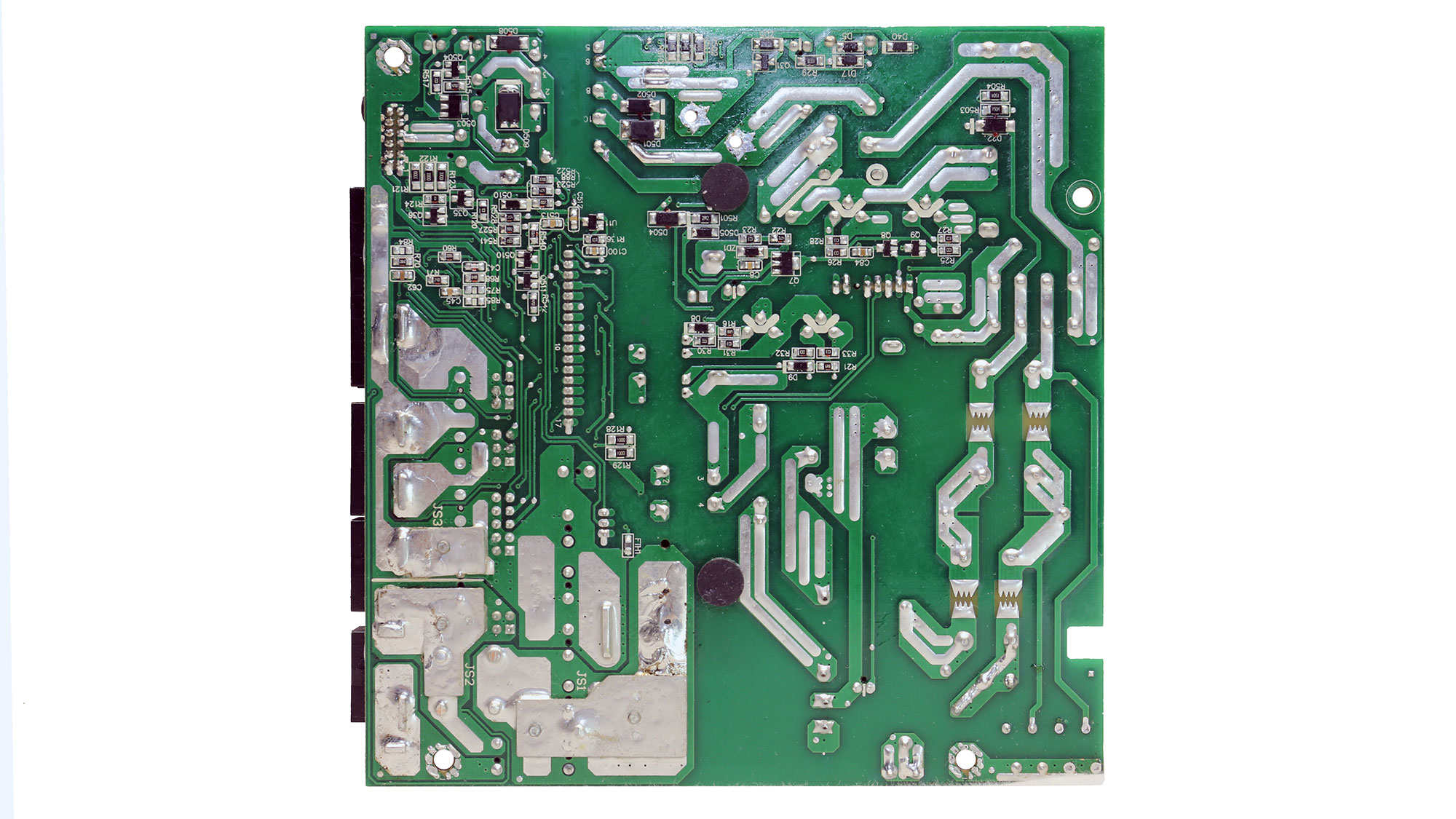
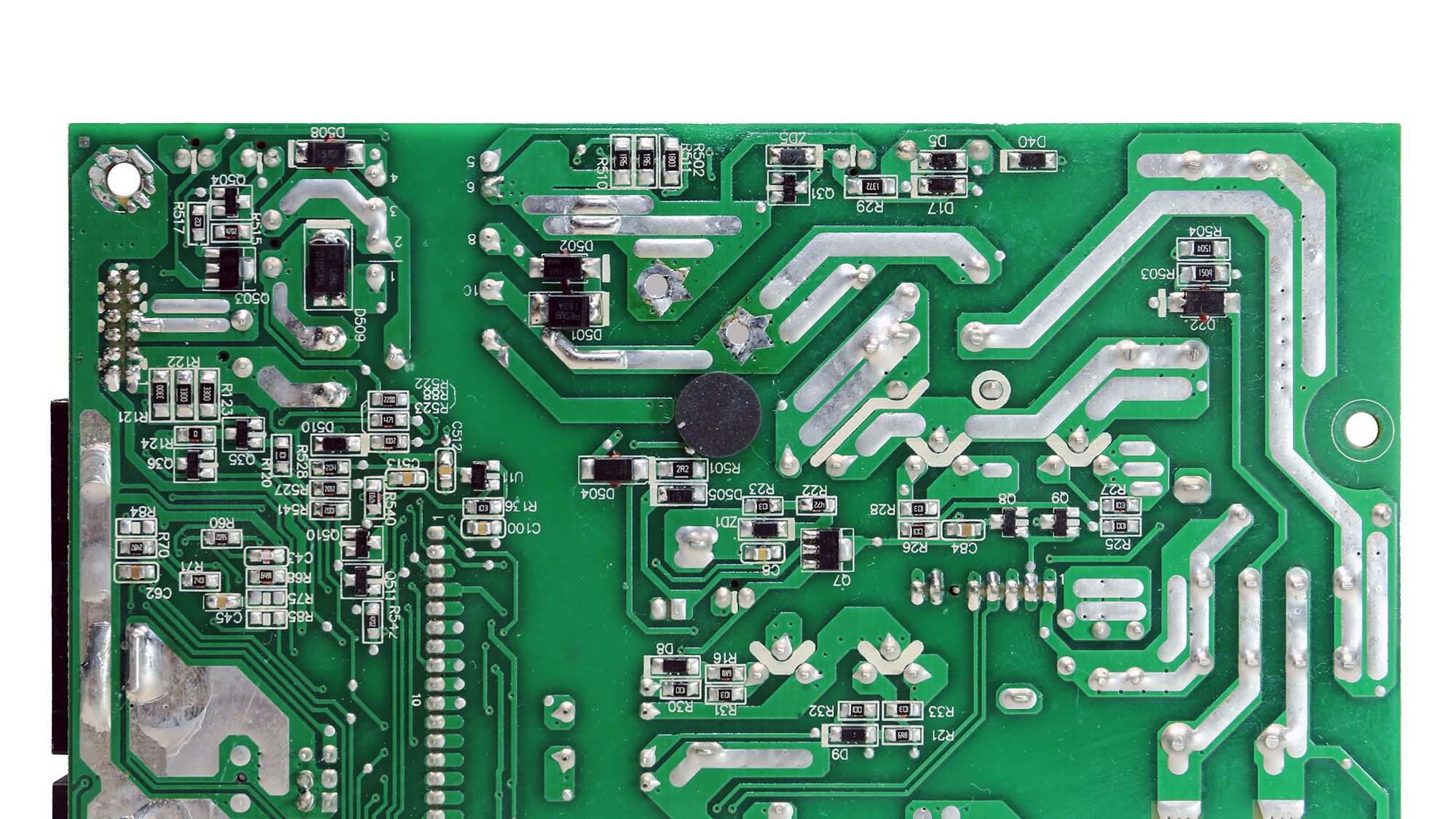
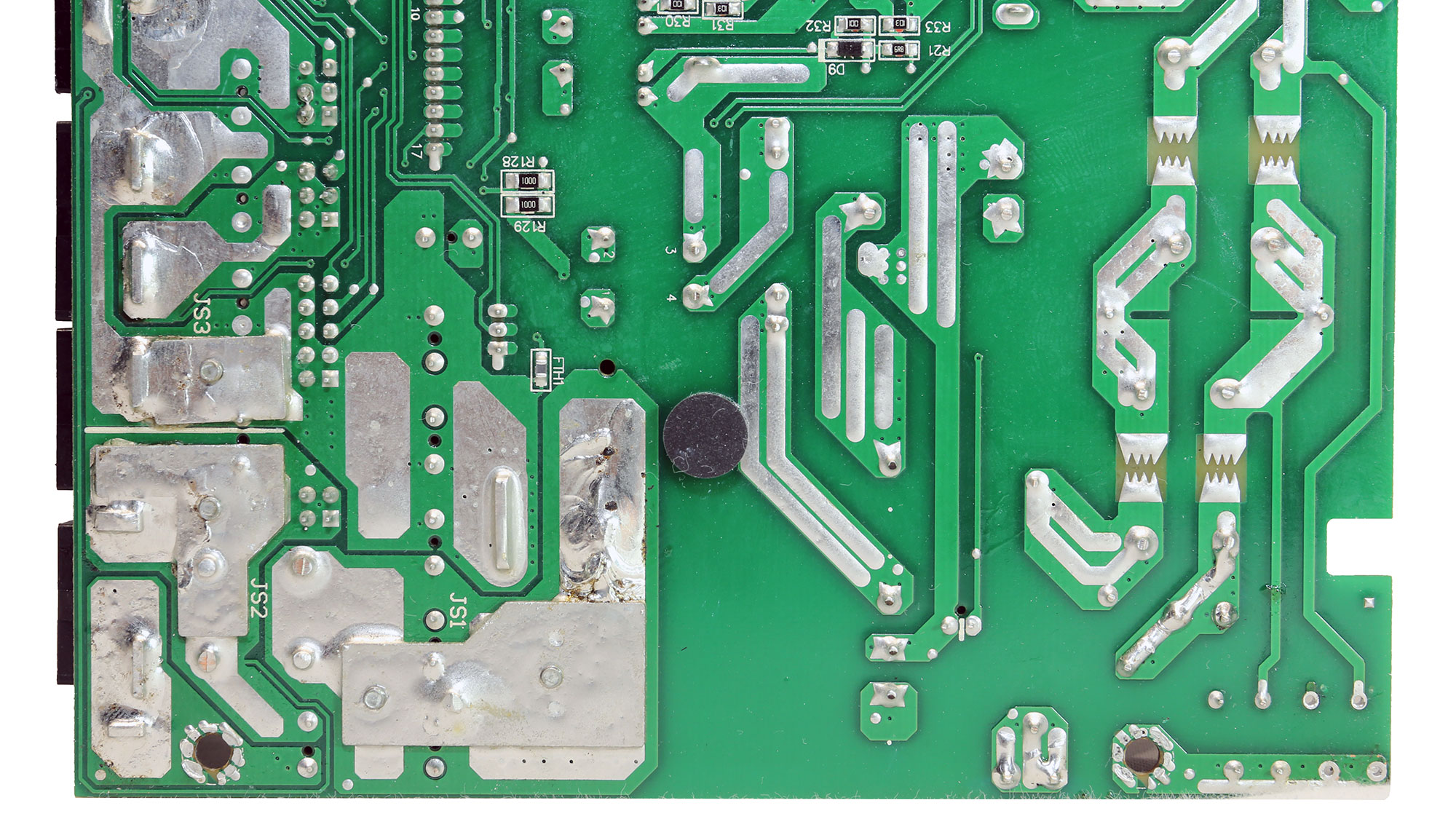
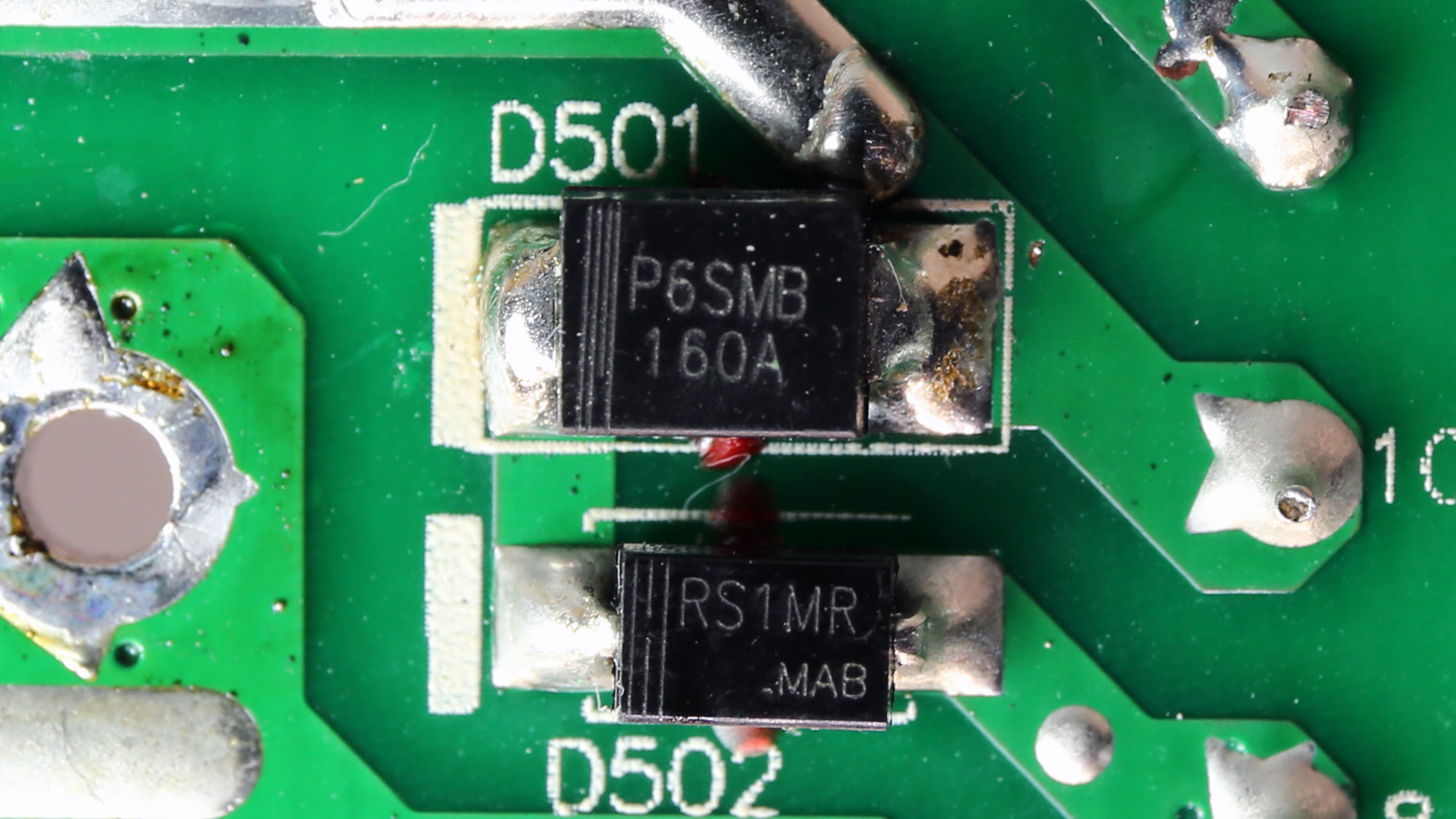
Soldering quality is good.
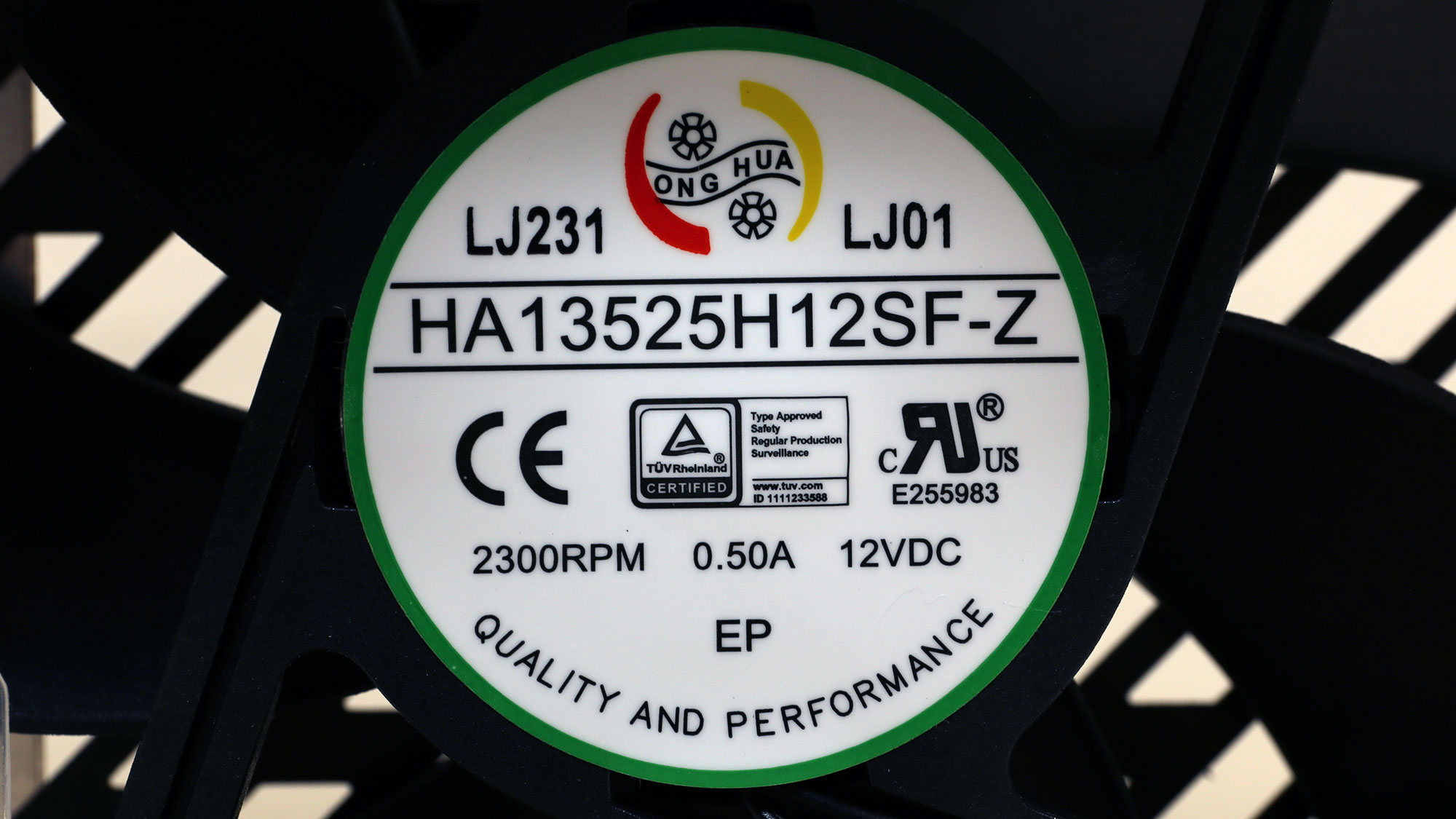
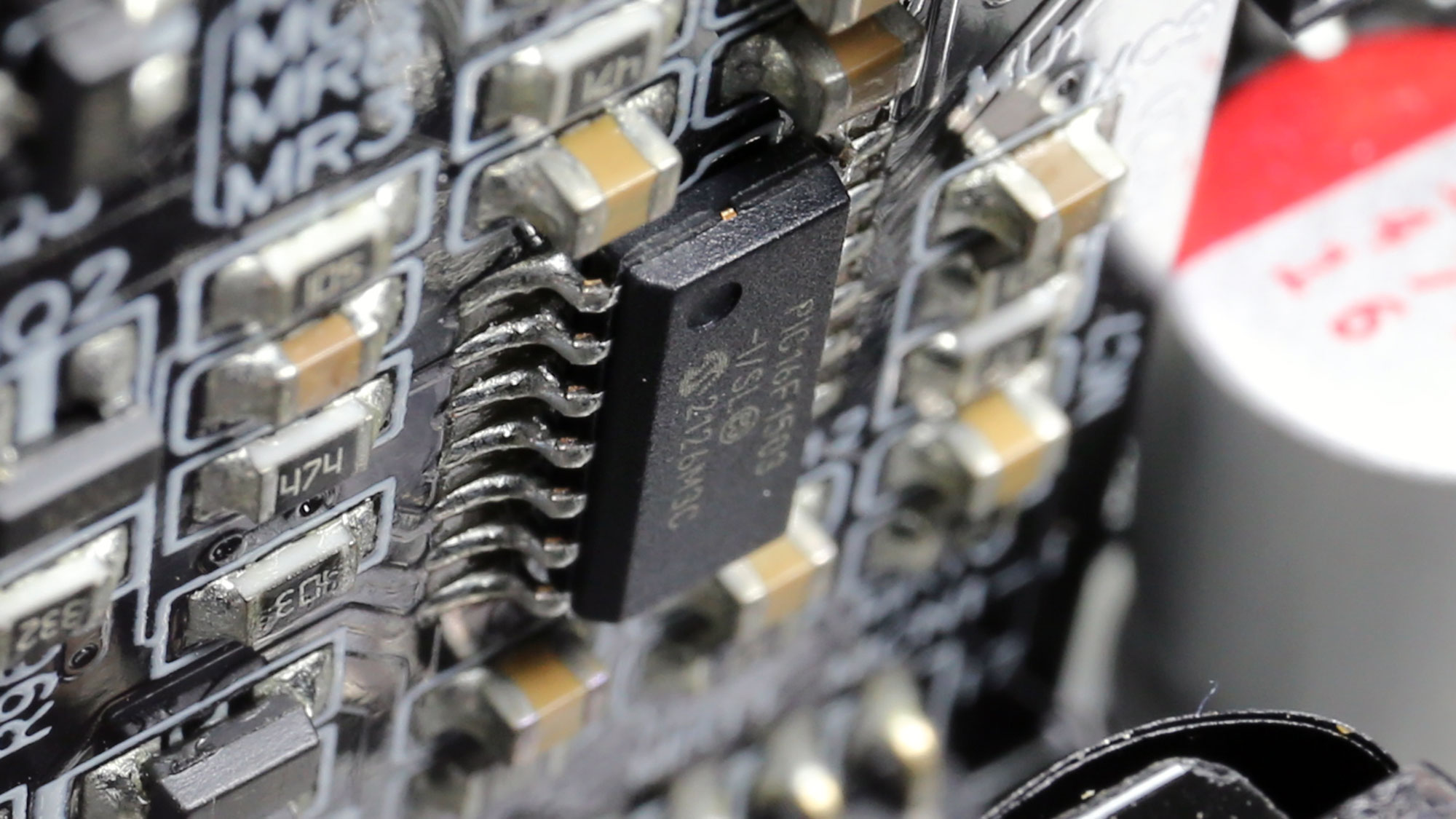
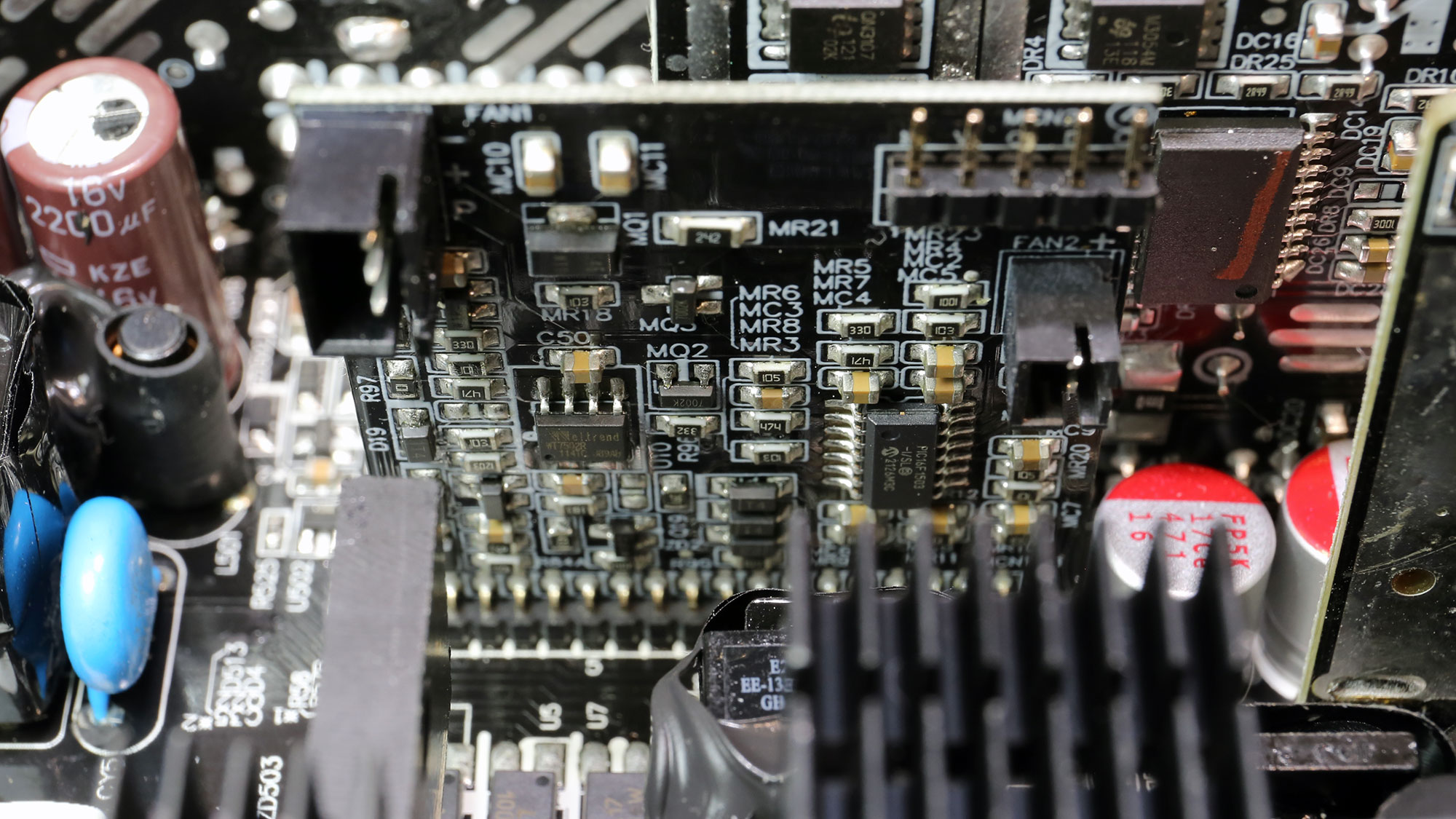
The cooling fan measures 135mm across and uses a fluid dynamic bearing. Hong Hua delivers good products at reasonable prices, and this is why it dominates the PSU market.
MORE: Best Power Supplies
MORE: How We Test Power Supplies
MORE: All Power Supply Content
Current page: Specifications and Part Analysis
Next Page Load Regulation, Hold-Up Time, Inrush & Leakage Current, Efficiency and Noise
Aris Mpitziopoulos is a contributing editor at Tom's Hardware, covering PSUs.
-
vinay2070 Would AIBs be using the 12 pin GPU connectors for Ada? Or is it just nvidia reference cards? I read that Radeon cards will stick to the existing 8 pin connectors.Reply -
dk382 Thank you for the review. I've been looking at ATX 3.0/PCIe 5.0 power supplies, and I assume this one is very similar to the A1000G version with the new PCIe 5 connector that's available for $200.Reply
I face palmed when I first saw the fan grill on that PSU, came here, and was completely unsurprised to find that it's a little noisy. How much quieter would it be if it just had a normal fan grill instead of all that metal that's currently blocking the fan? What's the point of such a stylized design if it's just gonna be face-down in a PSU shroud anyway? All it's doing is adding unnecessary impedence when combined with your case's own PSU fan grill and dust filter.